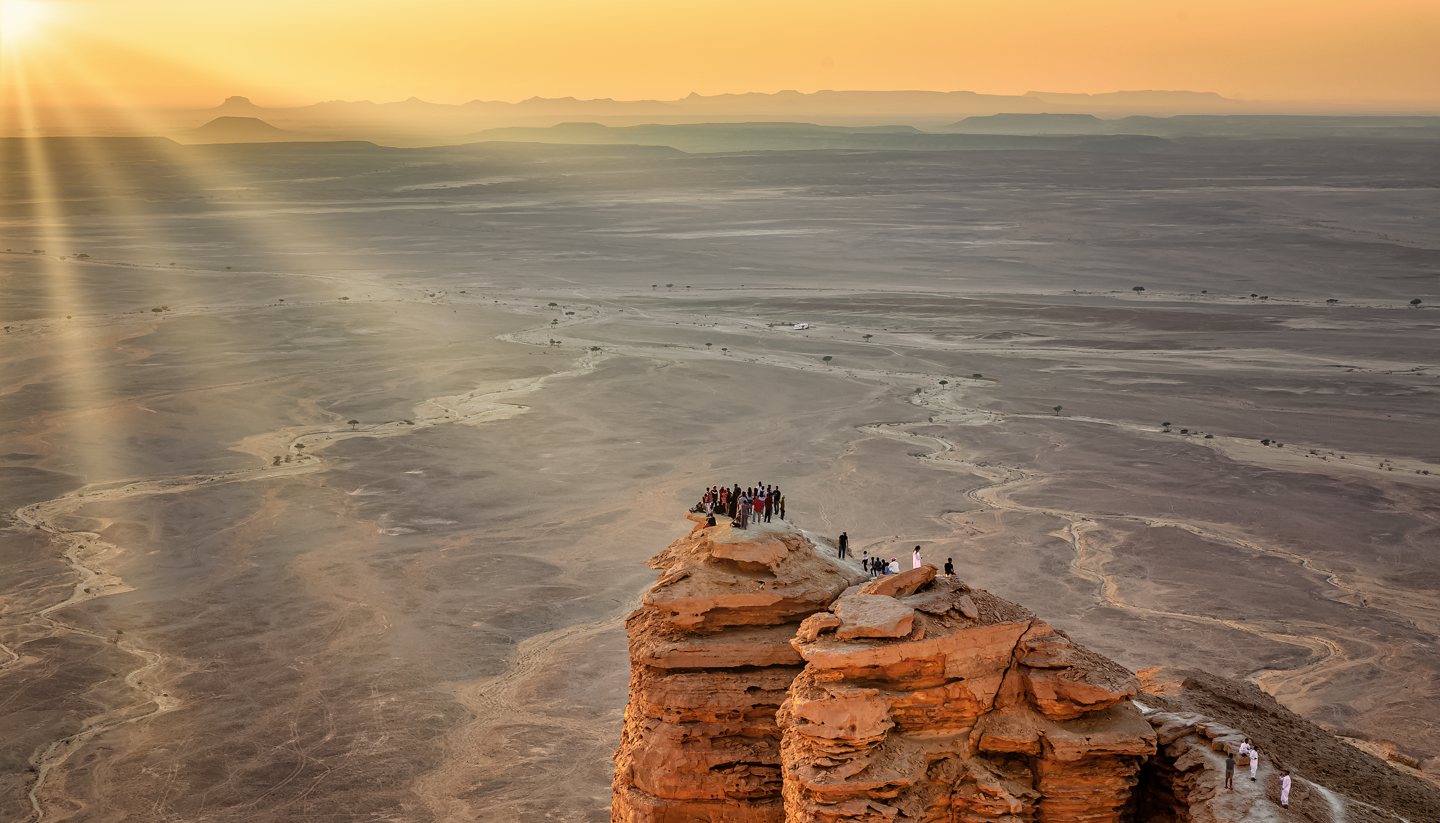

Introducing Saudi Arabia
About saudi arabia.
- Images of Saudi Arabia
- History, language & culture
- Weather & geography
- Doing business & staying in touch
Plan your trip
- Travel to Saudi Arabia
- Where to stay
While you’re there
- Things to see & do
- Shopping & nightlife
- Food & drink
- Getting around
Before you go
- Passport & visa
- Public Holidays
- Money & duty free
Book your flights
- Dammam King Fahd International Airport
- Jeddah King Abdulaziz International Airport
- Riyadh King Khaled International Airport
Saudi Arabia travel guide
No country in the world is as misunderstood as the Kingdom of Saudi Arabia, and perhaps no other country is worthy of a visit.
Saudi Arabia is an incredibly dynamic tourist destination, boasting seemingly endless sand dunes, palm-shaded oases, dramatic mountaintops and numerous marine reserves and wildlife sanctuaries.
In the west of the country you will find untamed stretches of coral-filled Red Sea coast and southwestern mountain towns such as Taif, famed for producing rose oil and rose water. The ancient history in the north is perhaps one of the country's greatest draws – the region of Al-Jouf is packed with ancient castle ruins and massive pillars carved from sandstone dating back thousands of years, while the city of AlUla is the gateway to the Hegra Archaeological Site, which features a collection of stone dwellings similar to Petra in Jordan.
A large part of the country is desert and the sands are wondrous. The Empty Quarter (Rub' al-Khali), a beautiful expanse of undulating dunes unlike anywhere in the world, is a must-see.
Then there are the cosmopolitan cities of Jeddah (on the Red Sea coast), Riyadh (the capital), and Dammam (on the Persian Gulf), all of which have undergone a remarkable cultural transformation, successfully blending ancient customs and ever-evolving lifestyles in the modern world. Here, visitors can also find world-class museums, fine-dining options, and fantastic shopping choices.
Saudi Arabia is also rich in culture and heritage. It is, after all, the birthplace of Prophet Muhammad and home to the two holiest sites in Islam: the Grand Mosque (Masjid al-Haram) in Makkah and the Prophet's Mosque (Al-Masjid an-Nabawi) in Medina; both of which draw millions of visitors each year. Understandably, the Saudis take pride in protecting the integrity of this holy land.
Saudi Arabia is perhaps an elusive and mysterious place, steeped in religion and cultural tradition to a novice visitor. But if you're willing to come for a visit, you'll discover a magnificent country with much to offer.
2,149,690 sq km (830,000 sq miles).
34.81 million (2020).
16 per sq km.
Absolute monarchy.
King and Prime Minister Salman bin Abdulaziz Al Saud since 2015.
Crown Prince and Prime Minister Muhammad ibn Salman since 2022.
Travel Advice
The Foreign, Commonwealth & Development Office ( FCDO ) provides advice about risks of travel to help British nationals make informed decisions. Find out more about FCDO travel advice .
Areas where FCDO advises against travel
Your travel insurance could be invalidated if you travel against FCDO advice.
Saudi Arabia-Yemen border
FCDO advises against:
- all travel to within 10km of the border with Yemen
- all but essential travel to areas between 10km and 80km from the border with Yemen
Abha International Airport
FCDO advises against all but essential travel to Abha International Airport in Asir province.
Find out more about why FCDO advises against travel .
Arriving in Saudi Arabia from Sudan
If you’re arriving in Saudi Arabia from Sudan, contact the Saudi authorities for the latest entry clearance procedures. See the latest Sudan travel advice for information about how to leave Port Sudan.
Before you travel
No travel can be guaranteed safe. Read all the advice in this guide and see support for British nationals abroad for information about specific travel topics.
Follow and contact FCDO travel on Twitter , Facebook and Instagram . You can also sign up to get email notifications when this advice is updated.
Travel insurance
If you choose to travel, research your destinations and get appropriate travel insurance . Insurance should cover your itinerary, planned activities and expenses in an emergency.
This advice reflects the UK government’s understanding of current rules for people travelling on a full ‘British citizen’ passport from the UK for the most common types of travel.
The authorities in Saudi Arabia set and enforce entry rules. If you’re not sure how these requirements apply to you, contact the Saudi Embassy in the UK .
COVID-19 rules
There are no COVID-19 testing or vaccination requirements for travellers entering Saudi Arabia.
Passport validity requirements
Your passport must have an ‘expiry date’ at least 6 months after the date you arrive.
Check with your travel provider that your passport and other travel documents meet requirements. Renew your passport if you need to.
You will be denied entry if you do not have a valid travel document or try to use a passport that has been reported lost or stolen.
Previous travel to Israel
You may not be allowed to enter Saudi Arabia if your passport shows that you have travelled to, or were born, in Israel.
Visa requirements
You must get an e-visa or an electronic visa waiver (EVW) either before you travel or on arrival at any of Saudi Arabia’s international airports. The type of e-visa or EVW you choose depends on your reason for travelling and how long you want to stay.
If you overstay your visa, you could face large fines, detention and deportation. You could be banned from returning to Saudi Arabia.
Applying for an e-visa
You can apply for an e-visa if you are a tourist. You must get an e-visa to perform Umrah.
E-visas are:
- valid for 365 days from the date of issue
- for visits of up to 90 days
- for multiple entries
Apply online or on arrival at any of Saudi Arabia’s international airports.
You will need a separate visa for Hajj. See guidance on the Umrah and Hajj application process .
Applying for an electronic visa waiver (EVW)
You can apply for an electronic visa waiver (EVW) if you’re travelling for:
- medical treatment
An EVW allows you to enter Saudi Arabia once and stay for up to 6 months.
Apply online for an EVW at least 48 hours before your flights, or up to 90 days in advance. You will need to give your flight details.
Travelling overland
Your visa may only allow you to enter Saudi Arabia by air. If you plan to travel to Saudi Arabia by the Bahrain causeway, check your visa before travelling. Ask your travel agent or the Saudi Embassy if you need help.
Travelling through Saudi Arabia
If you’re transferring through Saudi Arabia, you may need a transit visa if:
- you will pass through immigration control
- you will leave Saudi Arabia on a separate ticket to the one you arrive on
- the connecting time between your flights is more than 12 hours
Check with your airline or travel agency if you require a transit visa.
Exit, re-entry and final exit permits
If you live in Saudi Arabia, you must get an exit or re-entry permit from your sponsor to leave and re-enter the country. If you leave Saudi Arabia on a final exit permit, you must apply for a new visa to return to the country.
Wives and children of Saudi nationals
If you’re a woman married to a Saudi national, you must get a re-entry or final exit permit from your husband to leave Saudi Arabia. This also applies to children of Saudi nationals.
Flight restrictions around Hajj
If you plan to travel around the time of the Hajj pilgrimage, check with your airline for any flight restrictions.
The Saudi authorities have stopped visitors who are not performing Hajj from flying to Jeddah, Madinah and Taif. You may need a Hajj visa to board flights to these places during Hajj.
You will still be able to enter Saudi Arabia through other airports.
Vaccination requirements
At least 8 weeks before your trip, check the vaccinations and certificates you need in TravelHealthPro’s Saudi Arabia guide .
Depending on your circumstances, these may include:
- a yellow fever vaccination certificate
- meningococcal quadrivalent vaccine
Customs rules
There are strict rules about goods you can take into or out of Saudi Arabia. You must declare anything that may be prohibited or subject to tax or duty.
It is illegal to import:
- pork and pork products
- pornographic material
- distillery equipment
- re-treaded or used tyres
- used clothing except for personal use
certain sculptures such as religious symbols Other items may be examined, including:
- personal videos
- electronic devices
You may need to special approval to bring:
- agricultural seeds
- live animals
- religious books (except for personal use)
- chemicals and harmful materials
- some pharmaceutical products
- wireless equipment
- radio-controlled model airplanes
- archaeological artefacts
Using technical equipment
You may need a licence for:
- satellite phones
- listening or recording devices
- radio transmitters
- powerful cameras or binoculars
If you need information on customs rules, contact the Saudi Embassy .
Terrorism
There is a high threat of terrorist attack globally affecting UK interests and British nationals, including from groups and individuals who view the UK and British nationals as targets. You should remain vigilant at all times.
UK Counter Terrorism Policing has information and advice on staying safe abroad and what to do in the event of a terrorist attack. Find out how to reduce your risk from terrorism while abroad .
Terrorism in Saudi Arabia
Terrorist attacks in Saudi Arabia cannot be ruled out.
Attacks could be indiscriminate, including in places visited by foreign nationals. Stay aware of your surroundings, keep up to date with local media reports and follow the advice of local authorities.
Terrorists have threatened to carry out attacks in the Gulf region, including on:
- residential compounds
- military, oil, transport and aviation interests
- public places, including restaurants, hotels, beaches, shopping centres and mosques
Be aware of your surroundings, particularly during high-profile events, and avoid large demonstrations.
Military activity in the Red Sea area
Military activity is currently underway in response to attempts by Houthi militants to prevent movement of international shipping in the Red Sea. While the area of activity is limited to the Red Sea and Yemen, there is a possibility that Travel Advice for nearby countries could change at short notice. You should continue to monitor Travel Advice and follow any relevant instructions from local authorities.
Political situation
Public demonstrations are illegal. Avoid any protest or demonstration and follow the advice of local authorities.
The crime rate in Saudi Arabia is low, but there is petty crime. There have also been more serious crimes, including crimes against women. Take care when travelling outside towns and cities.
Laws and cultural differences
Saudi Arabia is a Muslim country and Islamic law is strictly enforced. Respect local traditions, customs, laws and religion so you do not cause offence. There may be serious penalties for doing something that might not be illegal in the UK.
You should avoid:
- showing affection in public
- swearing and rude gestures
- playing loud music
Penalties include fines, imprisonment and deportation. See Visit Saudi for information on behaviour.
Personal ID
You must always carry ID. You can get a fine or prison sentence if you do not have any.
If you’re a tourist, carry a copy of your passport and visa.
If you live in Saudi Arabia, carry your residency card (‘Iqama’). Police also accept an electronic version of the Iqama on the Tawakkalna App.
Ramadan is a holy month for Muslims. The dates vary by year and country. Ramadan in Saudi Arabia will start around 10 March in 2024 and last for 30 days. During this time, do not:
- eat, drink, smoke or chew gum in public in the daytime, including in your car
- play loud music or dance
- swear in public
Get more advice when you arrive from your tour guide, hotel or business contacts.
You should also:
- check opening hours of shops and restaurants
- be aware that if hotels and restaurants are providing food or drink in fasting hours, they may separate you from Islamic guests, for example with screens
- follow local dress codes – clothing that does not meet local dress codes may cause more offence at this time
- be patient and show tolerance
Dress code
Men and women must wear loose-fitting clothing that covers the elbow and below the knees. You should also:
- avoid tight-fitting clothing
- avoid clothes with profane slogans or images
- not wear clothing with symbols or slogans that could be viewed as political and lead to arrest
Female travellers do not have to wear the traditional robe (‘abaya’) or cover their hair. See Visit Saudi for more information on dress codes.
It is illegal to practise any religion other than Islam. However, the Saudi authorities accept private practice of other religions.
It is illegal to try and convert people to another religion. You can bring other religious books for personal use. However, you may be prosecuted if you try to import large numbers of religious books.
Alcohol laws and bans
Do not bring alcohol into Saudi Arabia or arrive under the influence of alcohol.
It is illegal to drink alcohol or be drunk in public. British nationals have been arrested for disorderly or offensive behaviour when drinking. You can face severe penalties, including prison, for possession or trade of alcohol.
Illegal drugs penalties
There is zero tolerance for drug offences in Saudi Arabia, and the penalties are severe. If you’re arrested for drug offences, you may have a long period of detention before trial. You can get a prison sentence of up to 5 years and a fine of 30,000 Saudi riyals for possessing even small amounts. Drug dealing and smuggling can result in a death sentence.
Sexual relations outside of marriage
Sex outside of marriage and adultery is illegal, including for tourists. In the most serious circumstances (for example, those involving Saudi nationals) the penalties could include custodial sentences or deportation. There are special arrangements for visitors and unmarried tourists may share hotel rooms.
Pregnancy outside of marriage
If you or your partner becomes pregnant outside marriage in Saudi Arabia, you could both face penalties including imprisonment and deportation. However, in practice legal action is uncommon.
Doctors may ask for proof of marriage during antenatal checks.
To get a birth certificate from the Saudi authorities, you must provide a marriage certificate. The authorities may compare the date of the marriage against the estimated date of conception.
If you’re an unmarried woman who gives birth in Saudi Arabia, you may have difficulties registering the birth of a child in Saudi Arabia. You could be arrested, imprisoned or deported.
Filming, photography and other media restrictions
It is illegal to film or photograph government buildings, military installations and palaces.
If you produce, transmit or distribute printed, digital, audio or video information, you must get permission from the General Authority of Media Regulation (GCAM) in advance. If you do not, you could get a large fine and a prison sentence.
Only photograph local people if you have their consent.
Criticising Saudi Arabia and Islam
It is illegal to post anything online that could be seen to criticise, insult or ridicule the:
- Saudi government or authorities
- King, Crown Prince or Royal Family
- country’s culture and beliefs
You could get a long prison sentence, even for posts published outside Saudi Arabia many years ago.
You’re likely come under more scrutiny if you’re a British national who also:
- carries Saudi citizenship
- has close Saudi relatives
Carrying 2 passports
It is illegal to have 2 passports in your name in Saudi Arabia. Immigration authorities will take additional passports. You must leave Saudi Arabia using the passport you entered on.
Legal system and due process
The Saudi legal system differs from the UK, for example:
- suspects can be held without charge during an investigation
- suspects are not always allowed quick access to legal representation
If you’re detained and need consular assistance, British Embassy staff will visit once they know about your case. In some cases, British Embassy staff have not been allowed to visit immediately or have had limited access.
There is no legal aid in Saudi Arabia. You may want to hire a translator if you need to attend a criminal proceeding. Find a translator or interpreter in Saudi Arabia .
Unpaid debts and other financial crimes
You can get a fine, prison sentence, travel ban or deportation for financial crimes, including:
- writing a cheque which bounces (including post-dated and ‘security cheques’)
- not paying bills (for example hotel bills or car hire)
- embezzlement
The Saudi authorities can also freeze your bank account or other assets. You may be liable for cheques you signed on behalf of a company.
If you have unpaid loans or financial commitments, the Saudi authorities may:
- prevent you from cancelling your residence permit
- stop you leaving the country
- block your government services
- not allow you to renew your residency card, re-entry visa or exit permits
- stop you transferring to a new sponsor (employer)
- use your end-of-service benefits to pay outstanding debts
Travel bans
The Saudi authorities may place a travel ban on you if you have outstanding debts or if you’re involved in:
- ongoing commercial, financial or labour disputes
- legal cases
- investigations
If you’re under a travel ban, you cannot leave the country, even if you’re a British national or dual British-Saudi national. The authorities enforce bans, and they take years to resolve. Get legal advice if you’re placed under a travel ban.
If you’re in a commercial dispute with a Saudi company, you may not be allowed to leave the country until it is resolved. Government bodies often keep passports for official purposes. Employers (sponsors) may try to hold onto your passport, but this is illegal.
Deportation
If you’re found guilty of an offence and sentenced to over 3 months in prison, the Saudi authorities can deport you. Sometimes the authorities deport people with shorter sentences, regardless of whether the judgement included deportation. If you’re employed in Saudi Arabia, deportation will impact your employment and may affect your ability to return to Saudi Arabia in the future.
LGBT+ travellers
Same-sex relations are illegal, although legal action is uncommon. All couples should be aware of local customs and avoid showing affection in public.
Visit Saudi says all visitors are welcome, are not required to disclose their personal information, and will have their right to privacy respected.
Being transgender is not recognised in Saudi Arabia. Transgender people could also face difficulties with dress code and access to medical care.
Read more advice for LGBT+ travellers .
Transport risks
Road travel .
If you’re planning to drive in Saudi Arabia, see information on driving abroad .
You can use a UK photocard driving licence for the first 3 months after you arrive in Saudi Arabia. After that, you must apply for a local licence. Hire care companies may require an international driving permit ( IDP ) .
Standards of driving are poor and there are a high number of serious accidents on the roads. You should:
- always wear seatbelts
- keep to major roads if possible
- travel in convoy and in daylight in rural areas
Some cities have an automated traffic system. Anyone caught speeding or committing other traffic offences will be notified by text of their fine. Fines are recorded on the Absher system, which is linked to your passport, residency or ID card. You must pay any outstanding fines through the system before leaving the country. You can pay at the airport but only during Saudi office hours.
Sea travel
Vessels operating in the Gulf of Oman, Northern Arabian Sea, Gulf of Aden and Bab El Mandeb areas may be at increased risk of attack by pirates. See piracy and armed robbery at sea .
Extreme weather and natural disasters
Heavy rains from November to February can cause flooding. Check weather forecasts in the Arab News and Saudi Gazette (English language newspapers). In a flood, follow Civil Defence advice or call them on 998.
This section has safety advice for regions of Saudi Arabia. It only covers regions where FCDO has specific advice.
You should also read FCDO ’s overall travel advice and safety and security advice .
Saudi Arabia has been leading air strikes against Yemen since 2015. While these have decreased, there are still military clashes along the border with military and civilian casualties.
Yemen has launched missiles, drones and waterborne improvised explosive devices (IEDs) into Saudi Arabia. These are targeted at critical national infrastructure, including aviation and oil infrastructure. Most of these weapons are intercepted and destroyed by Saudi air defence systems.
The authorities can temporarily close airports near the Saudi Arabia-Yemen border. Check with your airline before travelling to airports near the border.
Attacks against critical national infrastructure are likely. Attacks have also been made on other locations in Saudi Arabia, including Riyadh and Jeddah, and along the Red Sea coast. There were 11 intercepted missile attacks over Riyadh since the first missile attack in November 2017, the most recent in December 2021. In a missile attack, you should:
- stay indoors
- monitor local media reports
- follow the advice of the local authorities
FCDO advises against all but essential travel to Abha International Airport in Asir Province.
Since 2022, Abha International Airport has been the target of a number of attacks, resulting in multiple civilian injuries and one death.
Qatif region
British Embassy staff only travel to the Qatif region of Eastern Province in daylight hours due to ongoing security operations in that area.
Military zones and border posts
The Saudi Tourism Authority has banned tourist trips to military zones and border posts.
Many British nationals travel to Saudi Arabia each year for Umrah or Hajj pilgrimage.
Entry requirements for pilgrimage
You should also read the main section on entry requirements .
You must apply online for an e-visa to perform Umrah . Select ‘Umrah’ in the dropdown menu when you’re asked the purpose of your visit, otherwise you will not be prioritised for Umrah.
Booking for Hajj 2024 is not yet open. See the official Ministry of Hajj Twitter and the Nusuk Hajj platform for more information on Hajj 2024.
You must have a valid certificate of vaccination against the ACWY strains of meningitis 10 days before arriving for Hajj and Umrah. See the TravelHealthPro Hajj and Umrah guide .
UK-based organised crime groups target people planning Hajj or Umrah trips. Criminals pick people of any age, gender or location for their scams. Many victims are over the age of 65.
To avoid scams:
- be aware you can only book a Hajj place on the Nusuk Hajj platform
- check Saudi Ministry of Hajj information for the procedures you must follow
- make sure your travel agent or operator is ATOL protected when booking Umrah
- research the travel company before you book, even if family or friends recommended it
- be wary of offers too good to be true – criminals advertise fraudulent deals through licensed travel companies
Paying for trips
When paying for your Hajj or Umrah visit:
- use a credit card where possible
- have an audit trail and keep a record of any transactions
- get everything confirmed in writing
- always ask for written terms and conditions
Reporting fraud
If you have been a victim of Hajj fraud in the UK, contact:
- your local police
- City of London Police Fraud Desk
- Action Fraud
Further information and help
To plan your visit and keep updated when travelling, see the:
- Ministry of Hajj and Umrah on Twitter and Nusuk Hajj on Twitter
- British Embassy in Saudi Arabia on Twitter and Facebook
- Saudi Embassy in the UK
Consular assistance
If you require consular assistance that is not related to your Nusuk travel package, contact:
- the British Consulate General in Jeddah on +9661 1481 9100
- the FCDO in the UK on +44 207 008 5000
Before you travel check that:
- your destination can provide the healthcare you may need
- you have appropriate travel insurance for local treatment or unexpected medical evacuation
This is particularly important if you have a health condition or are pregnant.
Emergency medical number
Call 911 and ask for an ambulance.
Contact your insurance company promptly if you’re referred to a medical facility for treatment.
Vaccinations and health risks
At least 8 weeks before your trip check:
- the latest information on vaccination recommendations and health risks in TravelHealthPro’s Saudi Arabia guide
- where to get vaccines and whether you have to pay on the NHS travel vaccinations page
Other health risks
Contagious diseases spread quickly, particularly during Hajj and Ramadan. There is an increased risk of heat stroke and dehydration during the summer months. Bring basic medicines with you and consume adequate liquids and salts.
Medication
The legal status and regulation of some medicines prescribed or bought in the UK can be different in other countries. Some prescribed or over-the-counter medicines are controlled substances in Saudi Arabia. You may need approval from the Saudi authorities to bring some prescription drugs. See rules on bringing prescription drugs to Saudi Arabia .
If you need to bring controlled or prescription medication, make sure you have an official prescription, hospital note or a letter from your GP, which includes:
- the amount prescribed
- details of the drug and dosage
- your doctor’s signature
- a stamp from the clinic or hospital
See narcotics and psychotropic substances information from the Saudi government .
Pharmacies are common and can be found easily, particularly in the big cities. All hospitals will have a dispensing pharmacy and international brands can be found in shopping malls and plazas. UK prescriptions are not honoured in Saudi Arabia. Prescriptions must be issued by a doctor registered and licensed by the Saudi Commission for Health Specialities.
Read best practice when travelling with medicines on TravelHealthPro .
The NHS has information on whether you can take your medicine abroad .
Healthcare facilities in Saudi Arabia
FCDO has a list of English-speaking doctors in Saudi Arabia.
Healthcare facilities in major cities are of a high standard. Most towns have a health centre or basic hospital. Serious cases may be transferred by ambulance or air to a hospital in a major city, which might be some distance away.
Travel and mental health
Read FCDO guidance on travel and mental health . There is also mental health guidance on TravelHealthPro .
The Foreign, Commonwealth & Development Office ( FCDO ) cannot provide tailored advice for individual trips. Read this travel advice and carry out your own research before deciding whether to travel.
Emergency services in Saudi Arabia
Telephone: 911 (ambulance, fire, police)
If you do not have a Saudi SIM card, call 112 in an emergency.
Contact your travel provider and insurer
Contact your travel provider and your insurer if you’re involved in a serious incident or emergency abroad. They will tell you if they can help and what you need to do.
Refunds and changes to travel
For refunds or changes to travel, contact your travel provider. You may also be able to make a claim through insurance. However, insurers usually require you to talk to your travel provider first.
Find out more about changing or cancelling travel plans , including:
- where to get advice if you’re in a dispute with a provider
- how to access previous versions of travel advice to support a claim
Support from FCDO
FCDO has guidance on staying safe and what to do if you need help or support abroad, including:
- finding English-speaking lawyers , funeral directors and translators and interpreters in Saudi Arabia
- dealing with a death in Saudi Arabia
- being arrested or imprisoned in Saudi Arabia
- getting help if you’re a victim of crime
- what to do if you’re in hospital
- if you’re affected by a crisis , such as a terrorist attack
Contacting FCDO
Follow and contact FCDO travel on Twitter , Facebook and Instagram . You can also sign up to get email notifications when this travel advice is updated.
You can also contact FCDO online .
Help abroad in an emergency
If you’re in Saudi Arabia and you need emergency help from the UK government, contact the British Embassy in Riyadh or your nearest consulate .
FCDO in London
You can call FCDO in London if you need urgent help because something has happened to a friend or relative abroad.
Telephone: 020 7008 5000 (24 hours)
Find out about call charges
Risk information for British companies
The Overseas Business Risk service offers information and advice for British companies operating overseas on how to manage political, economic, and business security-related risks.

Related Articles
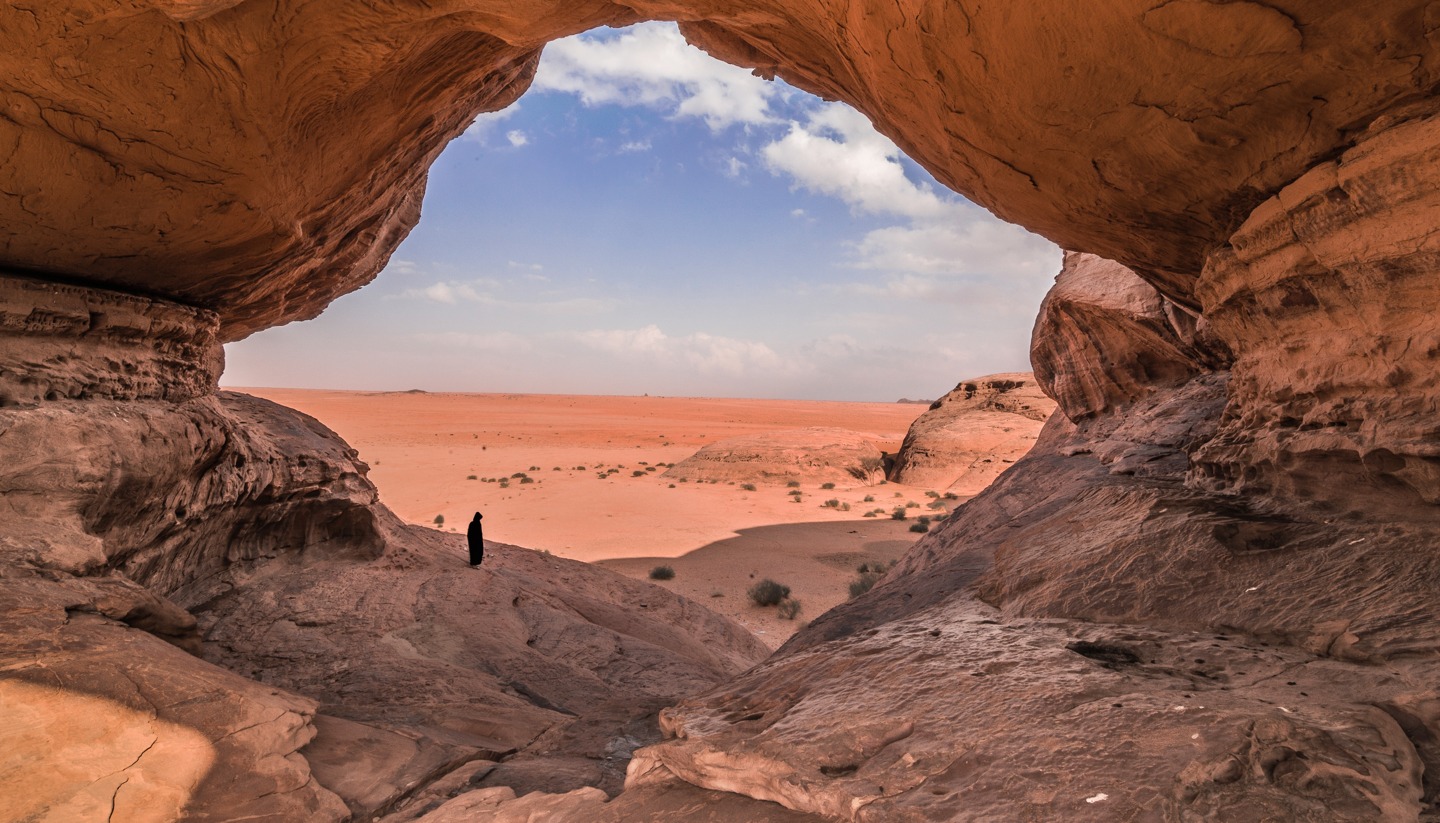
Saudi Arabia – redefining a nation through tourism
Saudi Arabia is on a mission to transform itself into one of the world's top tourist destinations by 2030
Book a Hotel
© Columbus Travel Media Ltd. All rights reserved 2024
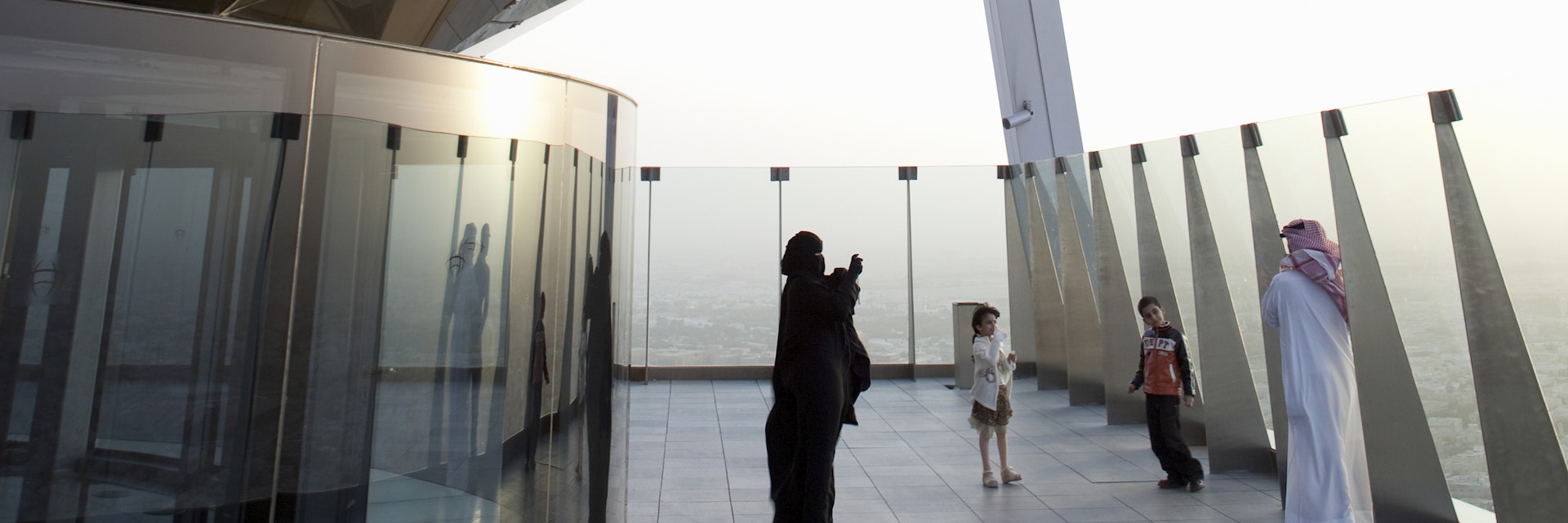
Getty Images
Saudi Arabia
If there is a final frontier of tourism left, it's Saudi Arabia. The birthplace and spiritual home of Islam, Saudi Arabia is rich in attractions and stirring symbolism. For Muslims, the cities of Mecca and Medina, rich in Prophetic significance, have no equal, while the carved temples of Madain Saleh, known as the second Petra, and the sophisticated rock art at Jubbah are the Kingdom's greatest pre-Islamic treasures.
Your next trip starts here
Go from dreaming to planning with trip planning options made to help you craft your ideal itinerary.
Attractions
Must-see attractions.

Prophet’s Mosque
One of only two mosques in the world that can accommodate a million people, the Prophet’s Mosque holds deep significance for Muslims all over the world…

Al Masjid Al Haram
The focal point for every Muslim and the biggest mosque in the world, Al Masjid Al Haram is able to host a million worshippers and covers an area of 356…

Jubbah Rock Carvings
This is arguably the Kingdom's premier pre-Islamic site and open-air art gallery. Covering an area measuring 39 sq km are some of the most impressive…
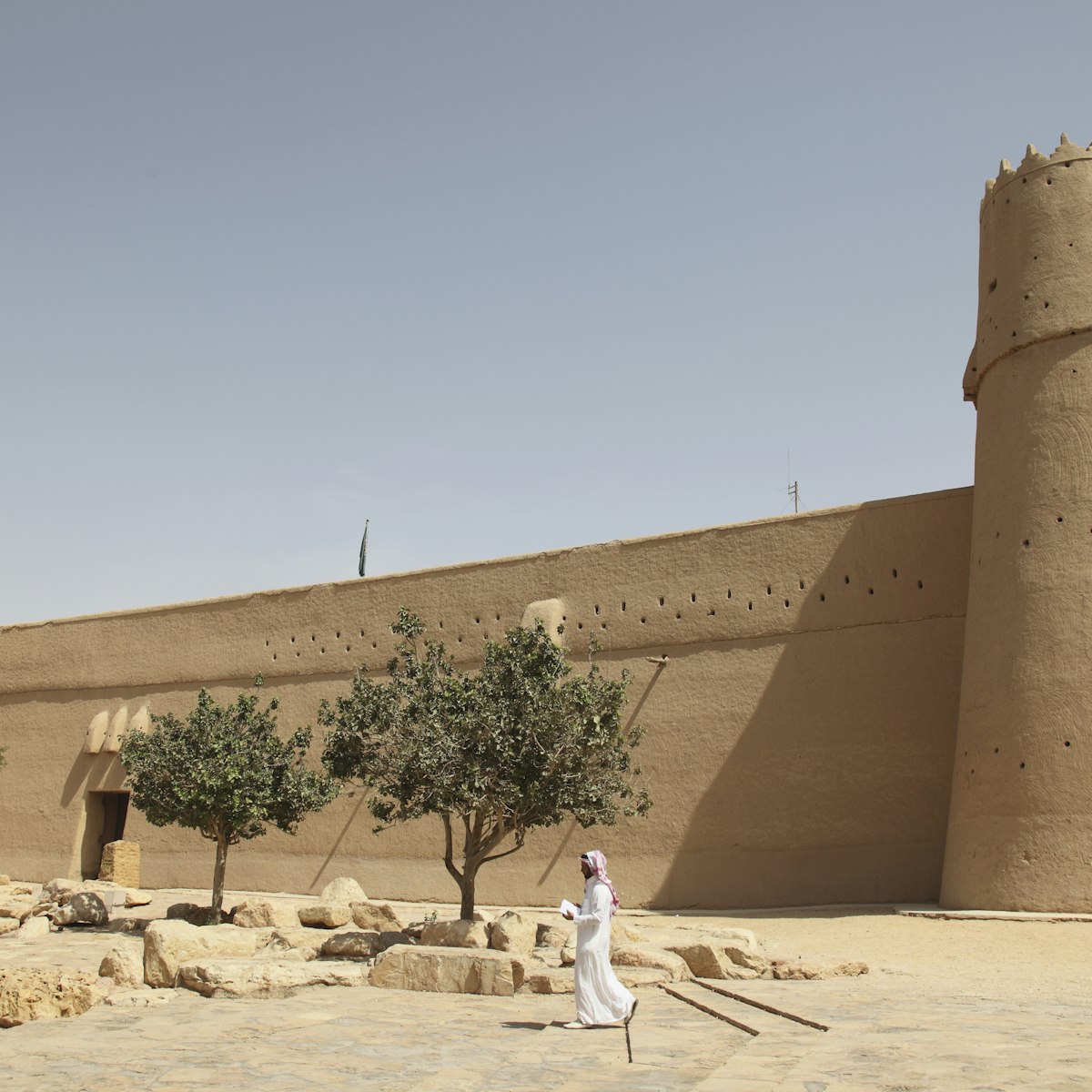
Masmak Fortress
Surrounded by sand, this squat fortification was built around 1865 and is like a scene out of the movies: a big fortress representing an empire. It was…

Pearl Merchants' Neighbourhood
Staring at the mesmerising geometric and floral designs of the carved patterns that adorn the houses and arched gateways of Farasan's former pearl…
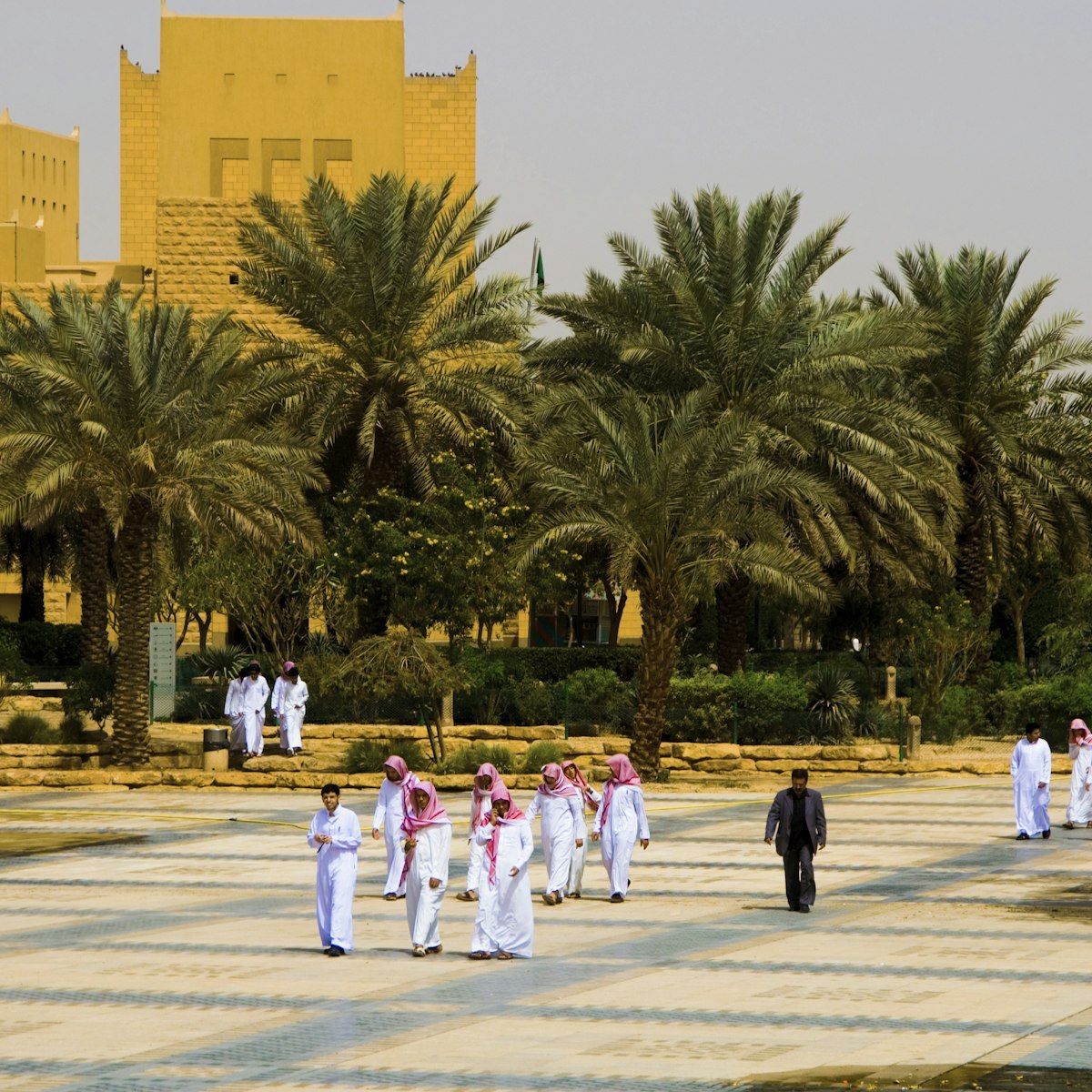
National Museum
This state-of-the-art museum is one of the finest in the Middle East. Encased within modernist architecture, its two floors contain eight well-designed…

Empty Quarter
The 'Abode of Silence', or the Empty Quarter, covers almost 655,000 sq km and evokes all that was romantic and forbidden for European adventurers, such as…

Al Ula Viewpoint
The views as you wind your way up to this gem of a spot offer glimpses of what's to come. At the top, the road plateaus through a windswept, lunar…
Latest stories from Saudi Arabia
Filter by interest:
- All Interests
- Adventure Travel
- Art & Culture
- Beaches, Coasts & Islands
- Food & Drink
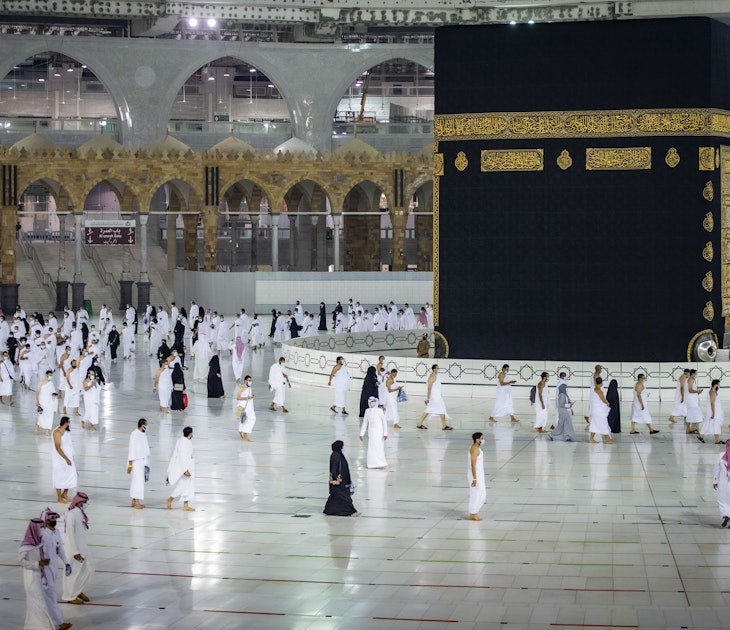
Jan 25, 2021 • 3 min read
With strict COVID protocols for 2021, here's what you need to know about the Hajj, Islam's most important religious pilgrimage.
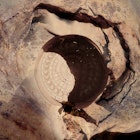
Nov 20, 2020 • 2 min read
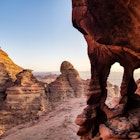
Nov 1, 2019 • 2 min read
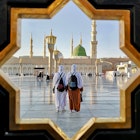
Sep 24, 2019 • 6 min read

Sep 20, 2019 • 6 min read
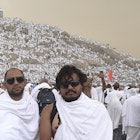
Sep 6, 2019 • 5 min read
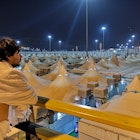
Aug 26, 2019 • 6 min read
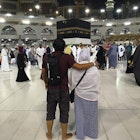
Aug 9, 2019 • 5 min read
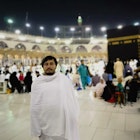
Aug 6, 2019 • 4 min read

Feb 28, 2019 • 2 min read
in partnership with getyourguide
Book popular activities in Saudi Arabia
Purchase our award-winning guidebooks.
Get to the heart of Saudi Arabia with one of our in-depth, award-winning guidebooks, covering maps, itineraries, and expert guidance.
Saudi Arabia and beyond
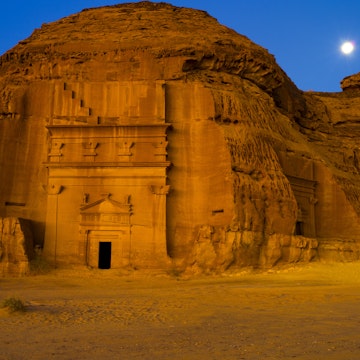
Solo female travel anywhere and everywhere.
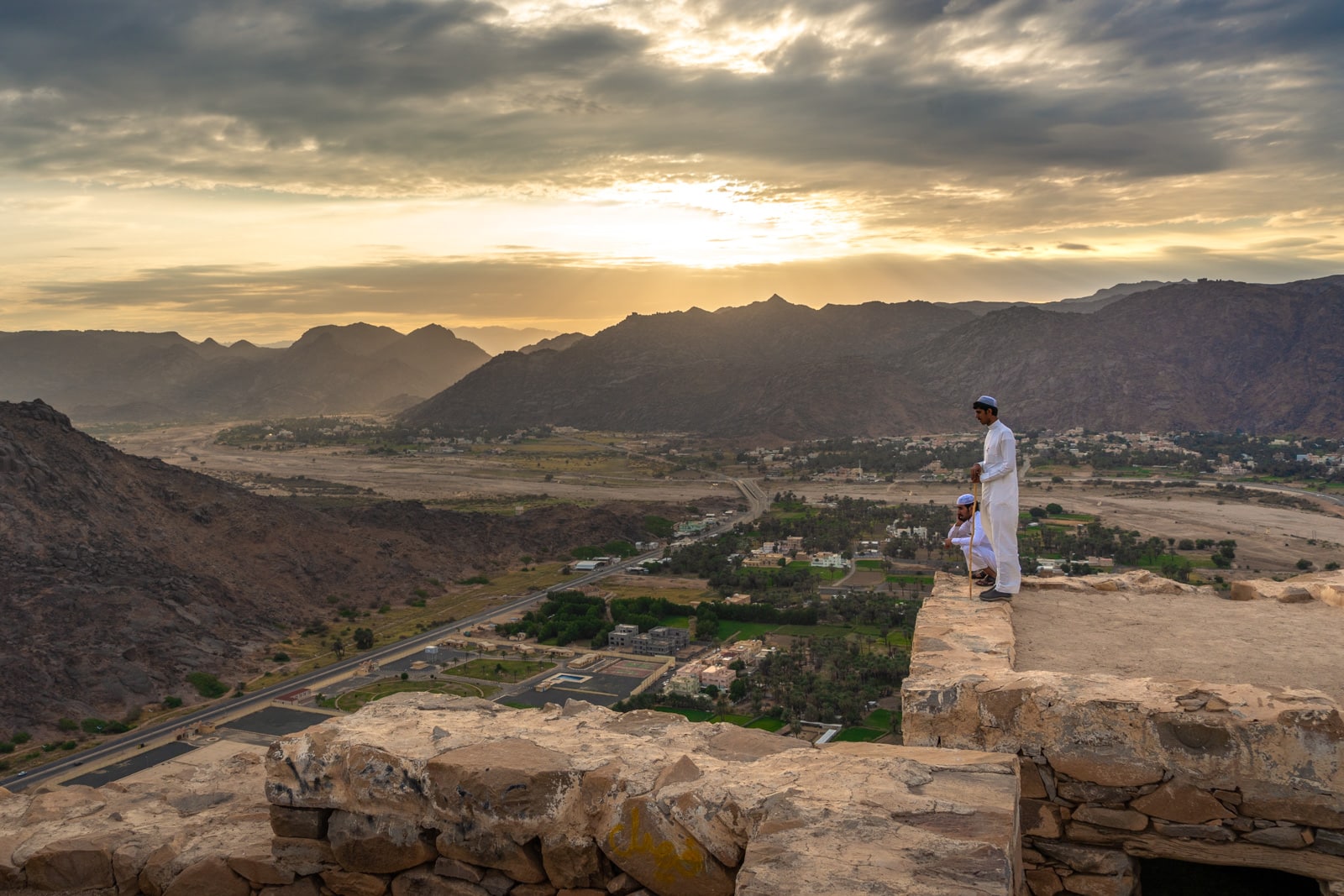
A massive guide to travel in Saudi Arabia
Planning a trip to Saudi Arabia? Here’s what you need to know to travel to Saudi Arabia, from costs to what to wear to safety and cultural deets. Happy planning!
Saudi Arabia has long been closed off for most travelers. Restrictive visa policies meant only Muslims—or oil industry workers—could visit. Even then, they could only visit a few places in the country.
Then everything changed in 2019. *Cue Avatar: The Last Airbender theme*
Saudi Arabia is currently making a big push to rebrand itself as a premier holiday destination in the Middle East. Part of that push involves a more open e-visa policy. This new visa regime makes it significantly easier for many nationalities to visit the country. It also allows pilgrims on Hajj and Umrah to travel beyond Mecca and Medina.
Whether or not Saudi Arabia is a top travel destination is another matter, but if you plan on visiting Saudi Arabia, you definitely need to come prepared to avoid offense. Read on to learn all the things I wish I’d known before traveling to Saudi Arabia!
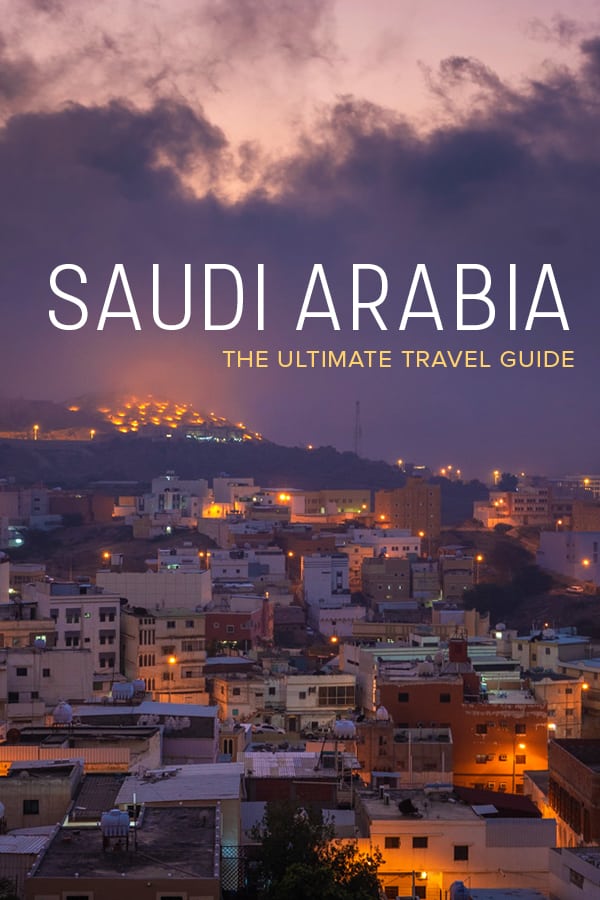
Saudi Arabia travel guide: here’s what you need to know
Saudi arabia basics.
- Best time to visit Saudi Arabia
- Visa for Saudi Arabia
- What to pack
Language in Saudi Arabia
Religion in saudi arabia.
- Clothes and what to wear
- Gender and how to act
- Hospitality and gift giving
Female travel in Saudi Arabia
- Eating customs
- Traveling as a vegetarian/vegan
- Money and payments
- Transportation
Safety in Saudi Arabia
- Mobiles and connectivity
- Travel resources
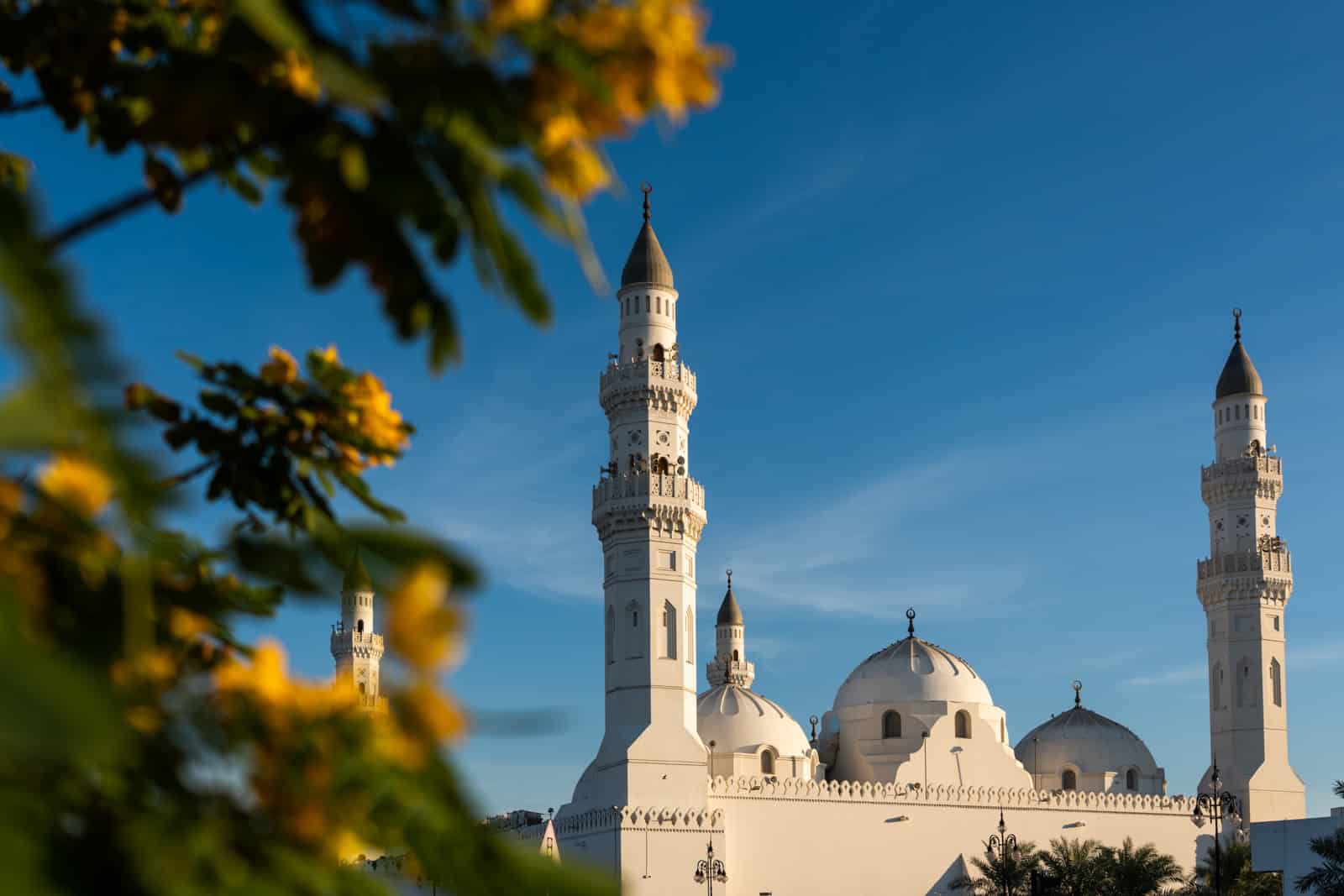
Quba mosque in Medina, said to be the first mosque ever built.
- Official name: Kingdom of Saudi Arabia (KSA)
- Capital: Riyadh
- Population: 34 million
Saudi Arabia is the 12th largest country in the world by landmass. Its population is youthful; of the approximately 34 million people living in the country, 50% are younger than 25.
Expats (foreigners) make up a significant part of its population—more than 30% of people living in KSA are foreign nationals. Interestingly enough, this foreign minority makes up more than 70% of Saudi’s workforce . Interpret that how you will.
The kingdom in its current form was founded in 1932 as an absolute monarchy. This means most of the power in Saudi Arabia lies in the hands of the royal family, the House of Saud, who rule the kingdom to this day. The current monarch is King Salman… but his son, Mohammed bin Salman (also known as MBS), more or less runs the kingdom. MBS is also responsible for the Vision 2030 program that spurred the recent tourism developments.
The Arabian peninsula is the founding place of Islam, one of the world’s largest religions. Its two holiest cities, Medina and Mecca, are both in Saudi Arabia. They are the main destinations of the Hajj and Umrah pilgrimages that millions of Muslims from around the world undertake every year. Religion is critical in Saudi Arabia; for more on religion in Saudi Arabia, see the religion section .
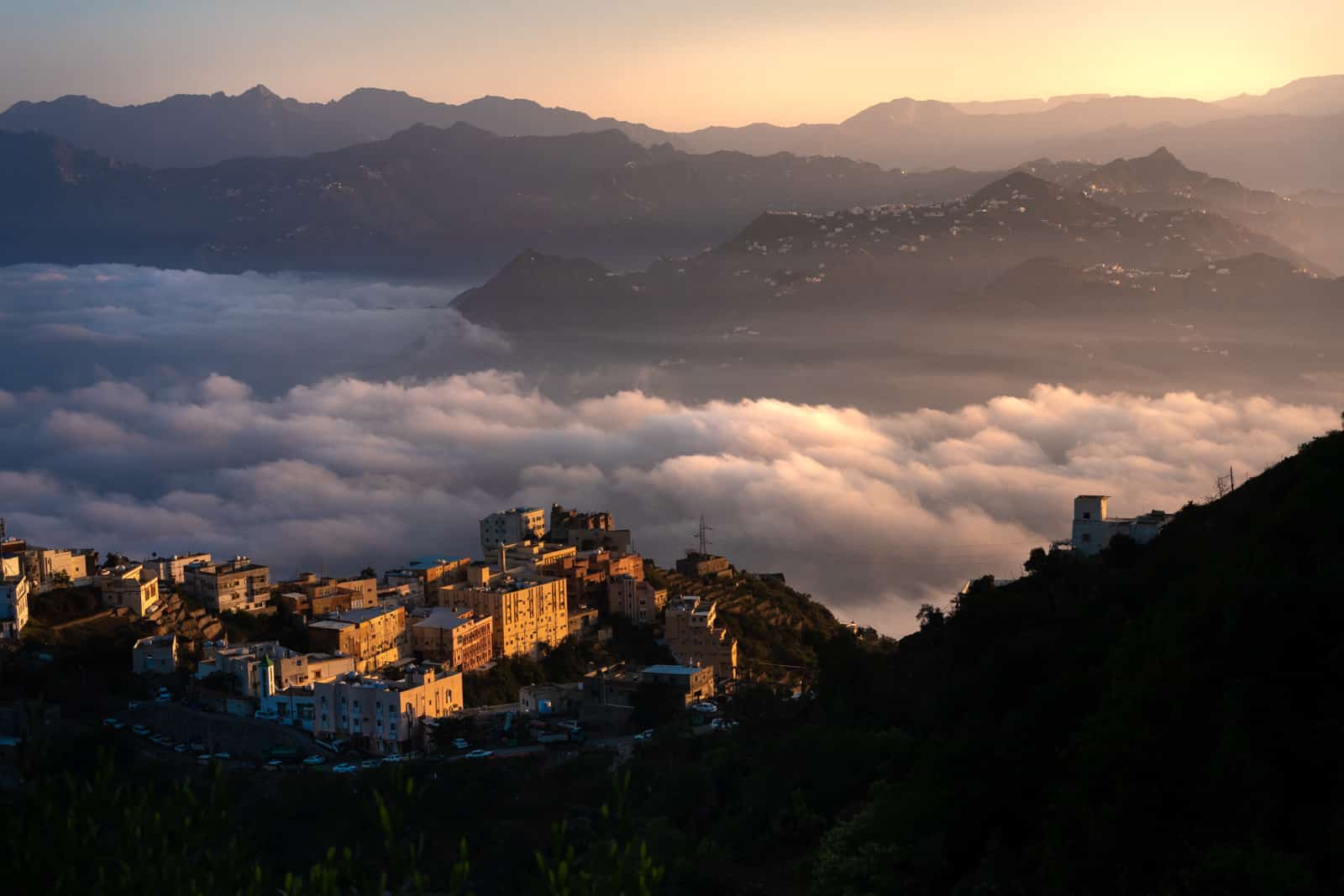
Sunrise above the clouds in Fayfa. Not bad, eh?
When’s the best time to visit Saudi Arabia?
Definitely do not visit Saudi Arabia in summer.
Summers in Saudi can be boiling hot, with temperatures exceeding 40 °C. Unless you’re a masochist, it’s best to avoid traveling to Saudi in summer. The mountains of Asir province are one notable exception to the summer rule; though temperatures can still be high, the cloudy, mountainous terrain is generally quite pleasant during summer.
The best time to visit Saudi Arabia is in winter , roughly between October and March. Temperatures are at their most pleasant between November and February. Temperatures typically begin rising from the end of February or beginning of March, though one can never be quite certain thanks to climate change. Winter temperatures hover around 25 °C – 30 °C , depending on where in the country you are.
Read: My one-month essential Saudi Arabia itinerary
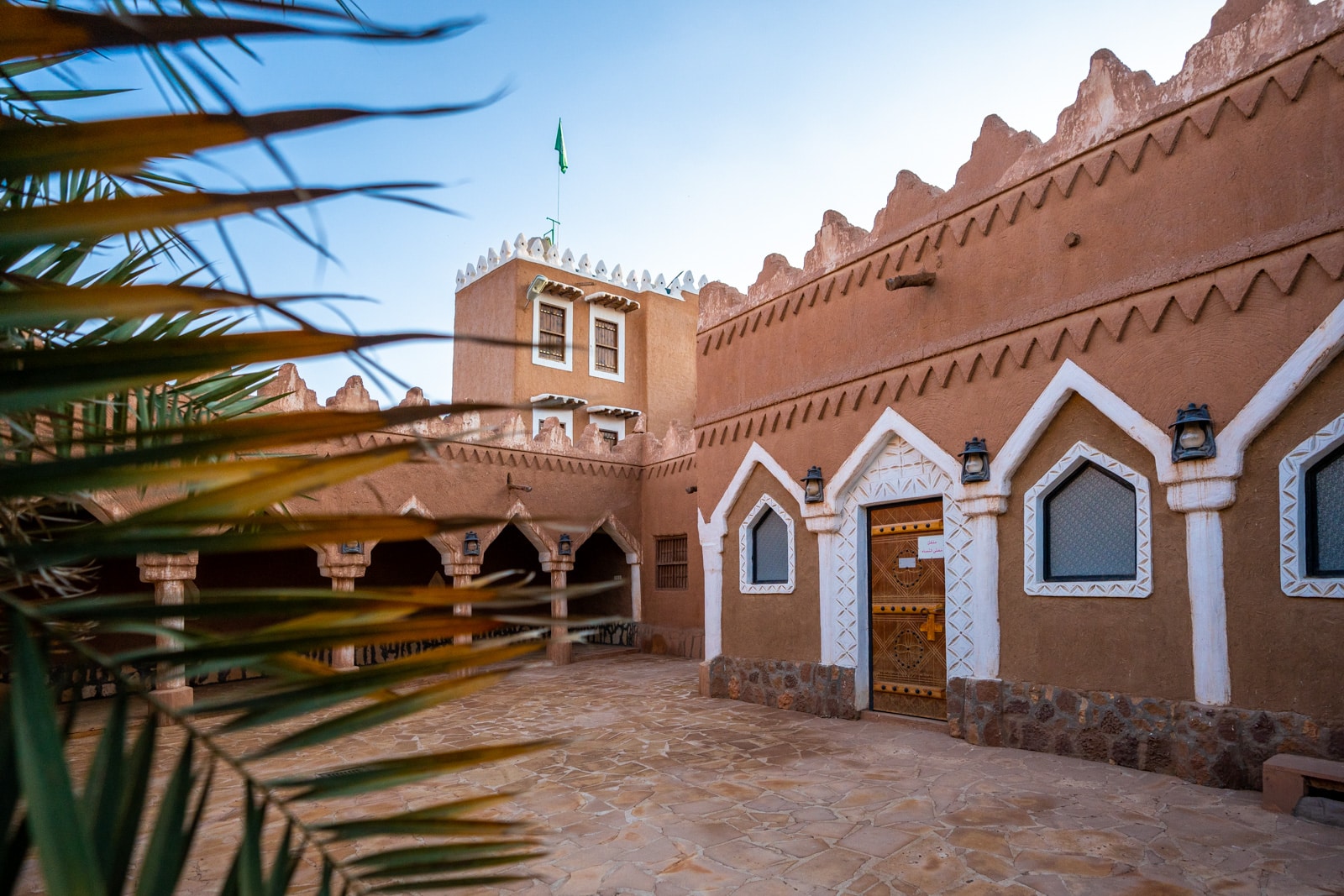
A historic sandstone mosque in Ushaiger village
Visas for Saudi Arabia
It used to be a real pain to get a Saudi Arabia visa. Unless you were a Muslim going on a pilgrimage or an exec visiting/working for business, it was nearly impossible to go to Saudi Arabia.
Before 2019, some travelers managed to get in via “business” trips booked by tour companies. Saudi Arabia began issuing tourist visas specifically for ticketed events in 2018. However, for the most part, Saudi Arabia was a non-option for the average tourist.
In 2019, everything changed with the introduction of the new e-visa system. The new Saudi Arabia e-visa system is surprisingly easy. I was legitimately taken aback when I applied—It took me less than 15 minutes to apply for my visa, I stood up to go to the bathroom after finishing the application, and by the time I returned to my computer 5 minutes later I had a Saudi Arabia e-visa PDF waiting in my Whatsapp inbox. Crazy, right?
Who’s eligible for a Saudi Arabia e-visa?
As of 2020, citizens of the following countries are eligible for a Saudi Arabia tourist e-visa:
Australia, Austria, Andorra, Belgium, Bulgaria, Brunei, Canada, China, Cyprus, Croatia, Czech Republic, Denmark, Estonia, Finland, France, Germany, Greece, Hong Kong, Hungary, Iceland, Italy, Ireland, Japan, Kazakhstan, Latvia, Liechtenstein, Lithuania, Luxembourg, Macau, Malaysia, Malta, Monaco, Montenegro, Netherlands, New Zealand, Norway, Poland, Portugal, Romania, Russia, San Marino, Singapore, Slovakia, Slovenia, South Korea, Spain, Sweden, Switzerland, Ukraine, United Kingdom.
For more detailed and up-to-date information on visa eligibility, how much the visa costs, and to apply for Saudi’s e-visa, check out the official Saudi Arabia e-visa website .
Important note : Several fake e-visa websites have popped up. Do not use any website except the official Saudi Arabia e-visa site to apply for your visa.
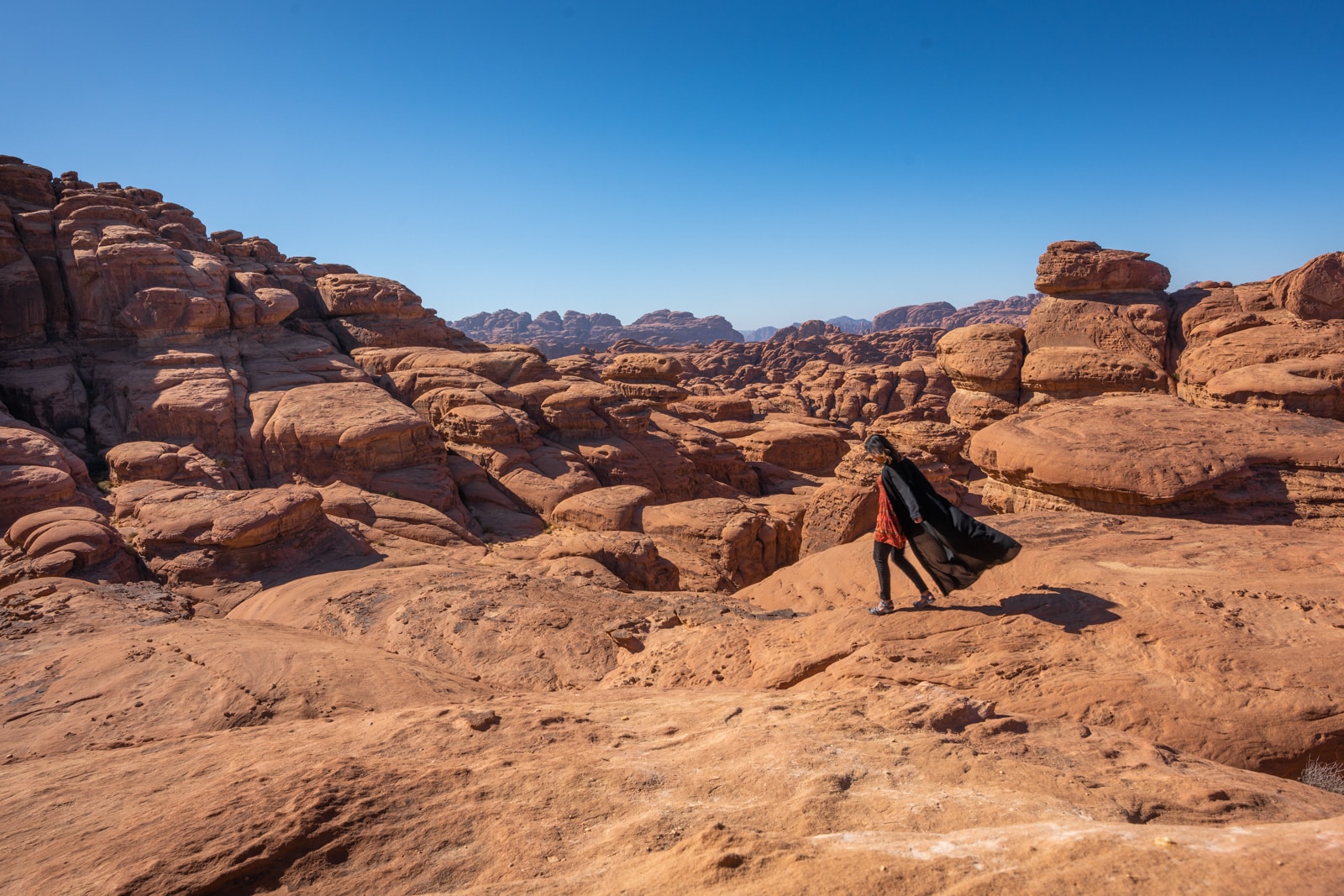
Scrambling around in the northern Tabuk region.
What to pack for travel in Saudi Arabia
Everyone has different needs, but there are a few items I strongly recommend you pack when traveling in Saudi Arabia:
- Modest clothes. This one is a given—Saudi is an Islamic country, after all—but men and women alike need to make an effort to stay covered up.
- Travel adapter. Saudi uses the same G-type plugs (3 rectangular holes) that you find in the UK. If you’re coming from Europe or the US, you’ll need a travel adapter for Saudi Arabia. I always travel with several of these adapters since they also have USB outlets.
- Reusable water bottle. Plastic waste is a huge issue in Saudi Arabia, and people love to buy painfully tiny plastic bottles of water. Do your part for the planet—bring your own water bottle. Tap water is generally safe to drink, and water filters are common in metro areas. I love and recommend my Hydroflask insulated water bottle . It also kept water cold when it was boiling hot!
- Reusable cup for coffee/tea/cold drinks. Same environmental logic applies. They’re seriously useful if you’re road tripping across Saudi Arabia—you’ll be drinking a lot of tea and coffee from rest stops along the highways! These travel mugs are great , and insulate both hot and cold drinks.
- Good sunscreen. Saudi sun is fierce, and the dry heat combined with sun can be seriously hard on your skin. Plus you’re going to get some freaky tan lines from all your modest clothing! I always travel with this specific sunscreen because it doesn’t feel slimy or sticky in the slightest.
- Arabic phrasebook. English isn’t very common, especially outside cities. I used Google Translate often… but no one understood me, and it was total crap at translating Saudi’s Arabic dialect. I highly recommend this Arabic phrasebook —it’s specific to one of the major dialects in KSA.

Typical roadside decor in Saudi.
The official language of Saudi Arabia is—yep, you guessed it—Arabic.
However, Arabic is more nuanced than non-Arabic speakers might realize. Arabic spoken in, say, Morocco, is far different from the Arabic you’ll hear in Saudi Arabia.
The three main variants of Arabic spoken in Saudi are:
- Najdi Arabic
- Hejazi Arabic
- Gulf Arabic
It’s both useful and respectful to pick up some basic Arabic or have a phrasebook on hand for short interactions. Careful, as most Arabic phrasebooks are written for Moroccan or Egyptian Arabic; I specifically recommend using this Hejazi Arabic phrasebook , which covers one of the main dialects you’ll encounter in Saudi Arabia. Never fear, it doesn’t require any struggling with the Arabic alphabet—all the phrases are written in the Roman alphabet.
English in Saudi Arabia? English isn’t widely spoken in Saudi, though people in the tourism sector will often speak some English. More and more young Saudis speak English, as many study abroad for university. Most road signs on main roads are written with both Arabic and Roman alphabets, though speed limit signs are Arabic-only once you get away from Jeddah and Riyadh.
Due to the large number of foreigners living in Saudi—roughly 30% of Saudi’s population comes from abroad—it’s also common to hear people speak Tagalog, Urdu, and Hindi, among other languages. Many of the labor or customer service workers you’ll run into in Saudi are from India, Pakistan, and the Philippines; you can easily travel in many places without Arabic if you speak some Hindi/Urdu. Speaking from experience.
The Arabic alphabet
The Arabic alphabet is written from right to left, and, in my humble opinion, complicated AF. Many letters are drastically different depending on where in the word they fall (beginning/middle/end) and a single dot can change the entire sound of a letter.
Despite its complexity, learning just a handful of letters can be immensely helpful for figuring out signs and differentiating between options. I used the free app Duolingo to learn the Arabic alphabet while traveling in Saudi Arabia. And by learn, I mostly mean shouting exasperatedly at my phone as it asked me to make guttural noises and read incomprehensible squiggles, neither of which I could never dream of reproducing.
Even if you aren’t linguistically inclined, I recommend learning Arabic numerals . They are not as difficult (there are only 10 of them, after all) and you’ll need to know them to read things like prices and speed limit signs if traveling Saudi Arabia by car .
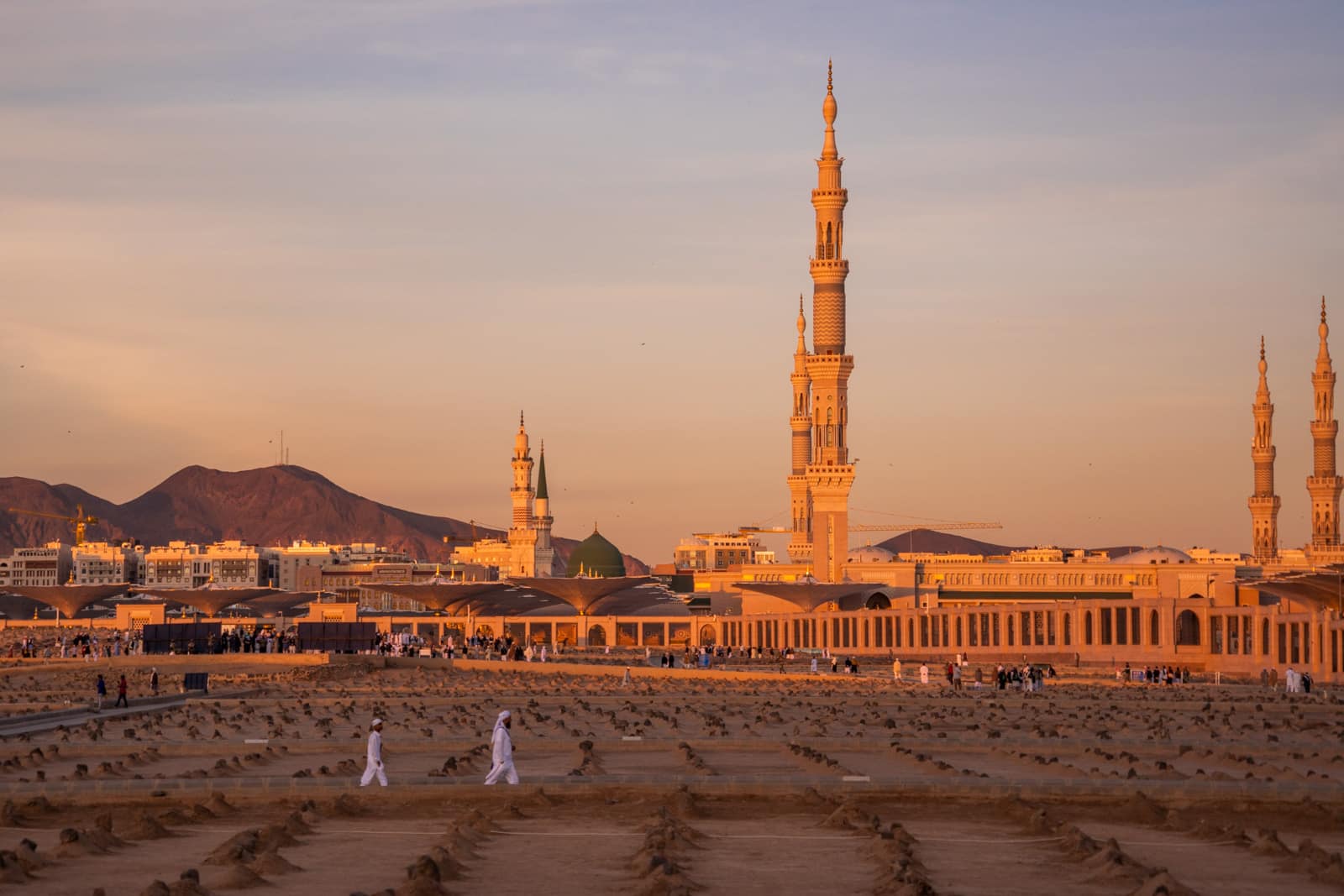
Men walking through the Al Baqi cemetery in the Haram center of Medina, one of Saudi’s holiest cities. Some of the Prophet’s family are buried in this cemetery.
Religion influences every part of Saudi life. Saudi citizens have to be Muslim, and publicly practicing any religion other than Islam is forbidden.
Everything shuts down during namaz , prayer times. In Sunni Islam, there are five prayer times every day: fajr, duhr, asr, maghrib, and isha . The timings change slightly each day— here are today’s prayer times .
Shops, restaurants, cafes—basically everything except for fancier places hidden from sight—will close for around 15 minutes to half an hour during prayer times. Previously, religious police would hound anyone seen not praying during prayer times, but those times are over.
The vast majority of Saudi’s Muslim population is Sunni. There is a Shia minority, which suffers from regular discrimination .
Though there are a few schools of Islamic thought in Saudi Arabia; Wahabis and Salafis make up a significant part of the Sunni population. Both involve relatively strict and traditional interpretations of the Quran.
Minority religions in Saudi Arabia
Because Saudi has such a large immigrant population, notably from places like the Philippines and the Indian Subcontinent, there are also pockets of Christians, Hindus, Sikhs, and Buddhists in Saudi. However, they are not allowed to openly worship or practice their faith.
Proselytizing is strictly forbidden, and can come in many forms—distributing non-Islamic materials such as Bibles is considered proselytizing and is highly illegal.
You are allowed to practice your religion in private as a non-Muslim traveling to Saudi. However, try to be discreet. Under no circumstances should you try to argue with Saudis about their religion.
Atheism in Saudi Arabia? As with any country, there are always outliers. Atheists do exist in Saudi Arabia, but they must be very secretive about their beliefs—atheism is not welcome in Saudi. Even if you don’t have religious beliefs, I recommend saying you have a religion when traveling in Saudi Arabia .
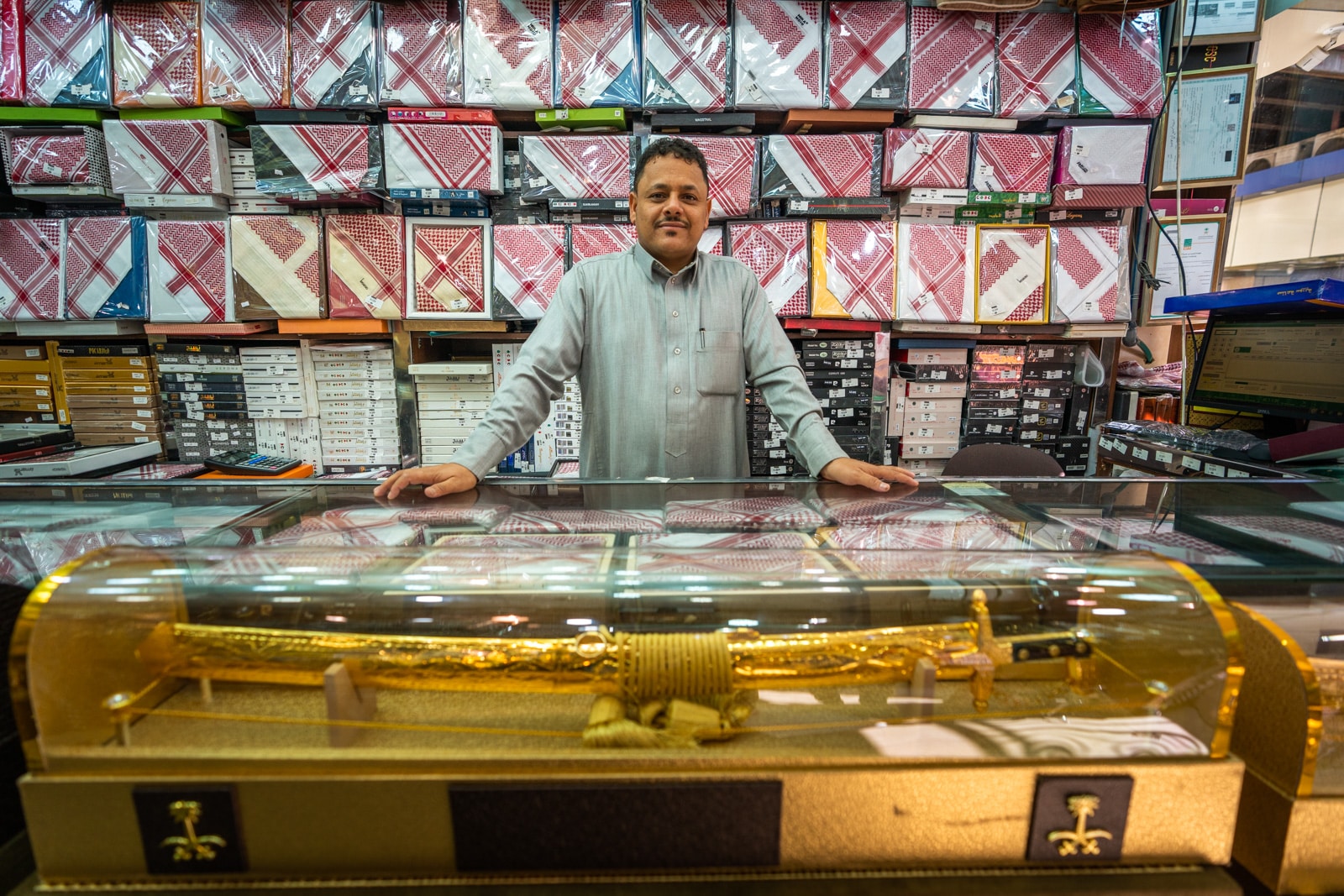
A man selling Saudi ghutra (men’s head coverings) and swords in a bazaar in Khamis Mushait. Nothing like a good sword and robe set as a souvenir for your family back home, eh eh?
Culture in Saudi Arabia
Saudi culture is heavily influenced by several major pillars: Islam, its historic role as a major trade center, and Bedouin (nomadic desert tribes) roots. Generally, Saudi culture is deeply religious, family-oriented, protectively traditional, and socially conservative.
Clothes and what to wear in Saudi Arabia
One of the first things any visitor to Saudi will notice is how many people wear traditional clothes.
Even in major cities like Riyadh and Jeddah most men still wear thobe , the long, loose robes coming to the ankles. The vast majority of women in Saudi Arabia are completely covered in black abayas, long, loose robes for women, and hijab head coverings. Most women cover their faces when out in public.
As a tourist visiting Saudi Arabia, it’s required by law to dress modestly. You don’t have to go out and buy a thob ASAP, but there are some basic requirements to keep in mind.
Men: Men should avoid tank tops or walking around shirtless—t-shirts at the very minimum—and long pants are strongly recommended. Islam requires men’s knees to be covered, and you will stick out like a sore thumb if you walk around in shorts and a wife beater tank.
Women: Though foreign women are no longer required to wear abayas , I still strongly recommend female travelers wear them in public in cities and towns. Unless you’re hanging out with elites or in someone’s home, you will be the only woman not wearing one 99% of the time. You can wear whatever you’d like underneath—I often wore a t-shirt and jeans—but an abaya is ideal. Headscarves are not mandatory, though in many areas I wore one to avoid people’s stares.
Smells in Saudi: Scents and smelling good are highly prioritized in Saudi Arabia. Men and women alike wear scents, cars must smell good, and greeting guests with bukhoor (a sort of goblet-shaped incense holder, usually to burn oud wood) is common. You don’t have to smell like a perfume shop all the time, but know people will be very aware of how you smell. A bit of an embarrassing issue for me, an often-smelly backpacker.
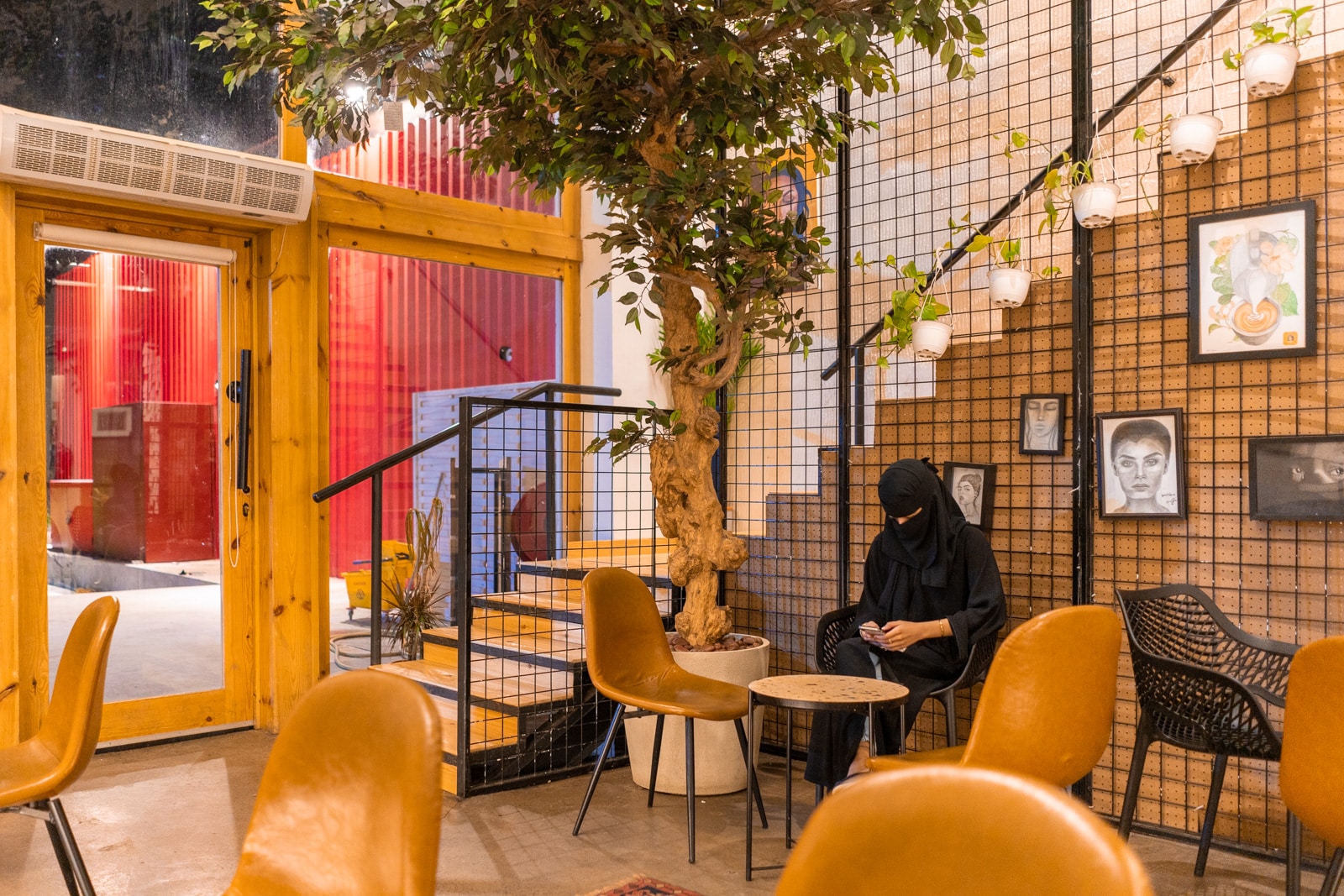
Gender divides and how to act in Saudi Arabia
Saudi Arabia is heavily segregated by gender. Men operate in one sphere, women in another.
Even within families, it is common for women to stay out of sight or hidden from men. I met many men who do not know what their extended female family look like, and women who would cover themselves in front of their husband’s brothers. Just to give you an example of how extreme the segregation can be.
Practically, for travelers the gender divide is most noticeable when it comes to eating. It is no longer required by law, but many restaurants are still divided into men and women/family sections. Some restaurants do not allow women at all. Men cannot sit in the women’s section unless accompanied by women; women usually cannot sit in the men’s sections, though sometimes more progressive restaurant owners will be flexible about the rule if the restaurant is mostly empty.
The extremity of segregation varies around the country. In small towns, you likely won’t see women at all. In Jeddah and wealthy parts of Riyadh, you’ll see more men and women mixing these days.
How to act around the opposite gender is something that varies from person to person. Here are some general tips to keep in mind:
- Do not touch the opposite gender. This includes handshakes; only shake hands if the local offers first, though they probably won’t.
- Try to avoid making unnecessary eye contact with strangers of the opposite gender if you’re not interacting with them, especially as a man. Men can get defensive if you stare at their wives/sisters.
- Don’t sit next to the opposite gender unless you’re with them or related to them.
- No PDAs you traveling couples. Though you’ll see married couples holding hands sometimes, anything beyond that is inappropriate and a punishable offense.

Hospitality and gift giving in Saudi Arabia
Hospitality is another core element of culture in Saudi Arabia.
As in many Islamic societies, guests are seen as a gift from God. Taking care of guests is an opportunity to do good and win favor in the eyes of Allah. When traveling in Saudi Arabia, don’t be surprised if you’re given gifts, taken out to dinner, or shown around for an entire day “because you’re our guest.” Let it be noted that the whiter you are, the more likely this will occur.
You might be tempted to give your hosts a gift as thanks, but you probably shouldn’t. Though they’ll happily shower you with gifts, many Saudis will take offense to gifts given to them by new acquaintances/non-relations. Proper gifts are usually quite expensive—think fancy carpets or expensive scents—so unless you’re visiting a family or long-time friend, don’t feel pressured to bring gifts. Just appreciation.
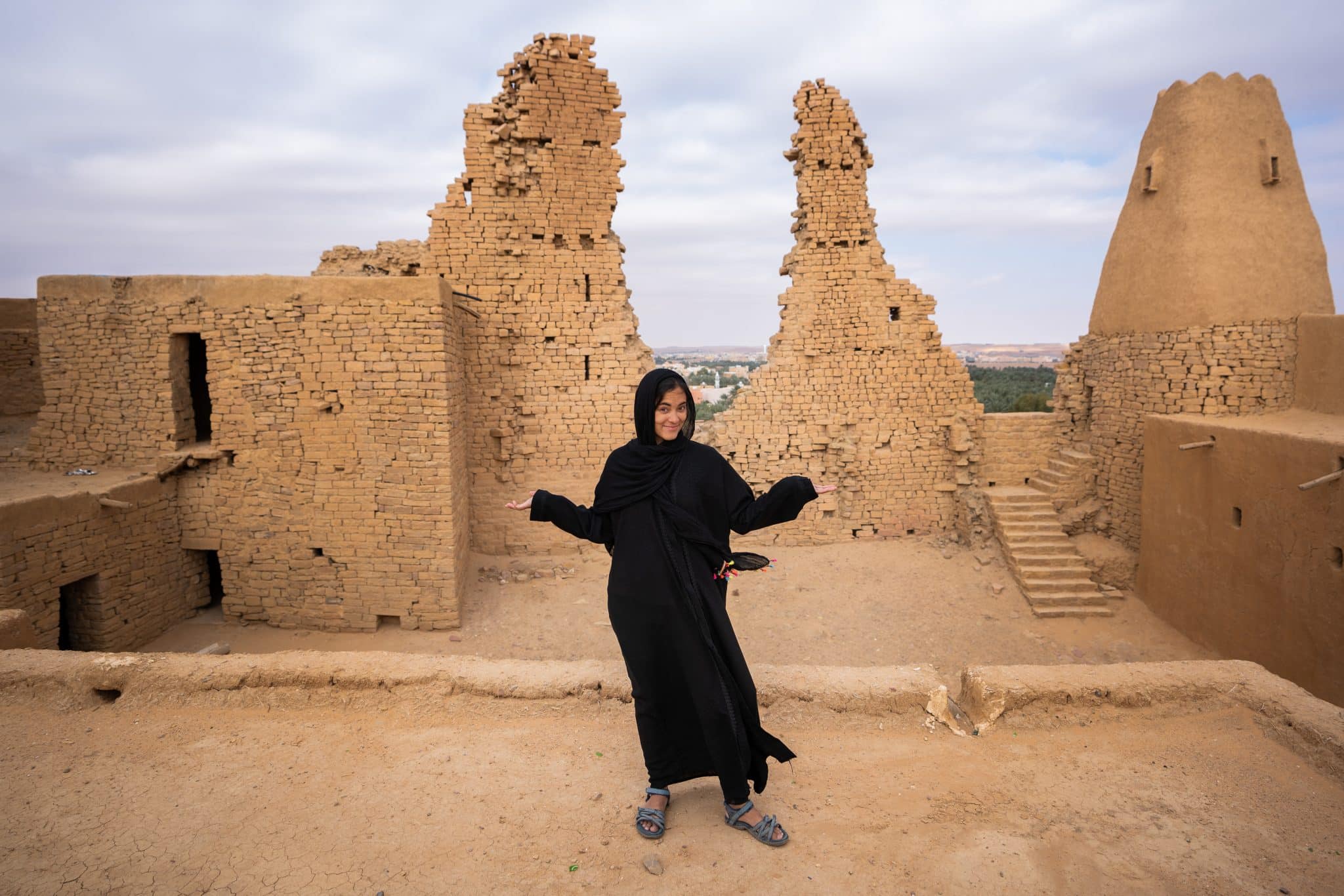
My daily outfit in Saudi: black abaya, headscarf, and whatever clothes were least dirty underneath.
Traveling as a woman in Saudi Arabia is worlds apart from traveling as a man.
Even if you’re a female traveler traveling with a man, people will treat you very differently from male travelers. Women are treated with great respect in Saudi Arabia, though “respect” in Saudi Arabia might be viewed as restriction by others.
The status of women in Saudi Arabia is complex—one I’m not exactly qualified to discuss—so let’s stick to practical travel matters. Because genders are so segregated in Saudi, it can be hard to find women to interact with outside of the big cities. You need to be far more attentive to your clothing than men. Finding places to eat that allow women can be a bit of a nightmare in small towns—you’ll have to get used to takeaway meals.
On the “bright” side, because the punishment for harassment is so severe—and official harassment can be something as simple as a man staring at you for too long—female travelers are generally not at risk of more severe assault. I encountered some verbal harassment and men following me, and a few solo female travelers I spoke to were propositioned for sex, but harassment should not be a major concern for female travelers.
In my personal experience, both solo and traveling with men, I often found traveling in Saudi Arabia as a woman to be isolating more than anything else. As a disclaimer, part of that could be attributed to my appearance—most people thought I was either Arab or Indian/Pakistani—as I heard more glowing stories from white women.
I could go on for a long while on female travel in Saudi Arabia, but I’ll stop here. For a more in-depth discussion, check out my guide to female travel in Saudi Arabia .

The Yemeni-influenced food in Jazan was 100% my favorite in all of Saudi Arabia. I’m drooling just looking at this.
Food in Saudi Arabia
If you love food, prepare to put on a few pounds in Saudi Arabia. I know I did.
Saudi Arabia has long been a crossroads of cultures. Traders came in by horse and camel from the north, while others came by sea. Muslim pilgrims from all over the world have traveled to Mecca for centuries.
As a result, Saudi cuisine draws on many different influences, and many common dishes in Saudi Arabia actually have origins elsewhere. Fu ul (beans), falafel, and shawarma are diet staples, though not traditionally Saudi.
Some traditional Saudi dishes to look out for include:
- Kabsa – Roast chicken and rice found everywhere
- Dates – Saudi Arabia has some of the best dates in the world, and they come in all different types and flavors. The Qassim region is considered to have the best dates in the country.
- Jareesh – Crushed wheat porridge, topped with savory onions and dried limes
- Murtabak – Stuffed pancake
- Tharid – Spicy lamb stew served with bread
- Laban – Creamy yogurt drink
- Mamuul – Stuffed date cookies
- Arabic coffee – Not at all like “normal” coffee, it’s yellow, bitter, and flavored with cardamom
Meals in Saudi Arabia are rich, spiced, and usually accompanied by a mound of rice or bread, as well as thick, creamy laban (a strained kind of yogurt that can also stand alone as a drink—it’s delicious!). Meat is an essential part of main meals, and sweet tea often follows.
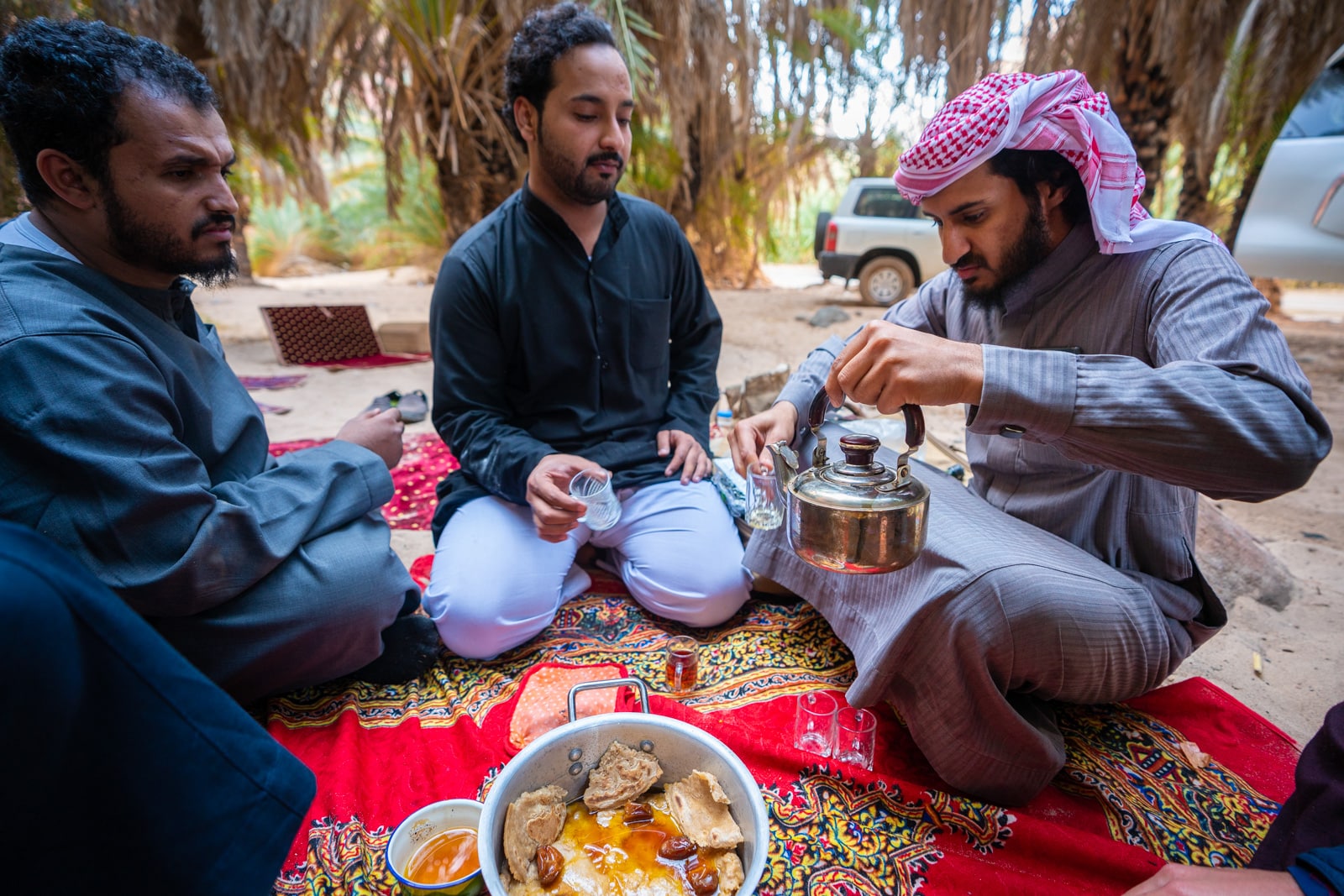
Eating customs in Saudi Arabia
There is definitely a right and wrong way to eat in Saudi Arabia! Though you’ll probably be forgiven for any culinary cultural faux pas as a foreign visitor, it’s still good to respect norms.
Traditionally, meals are eaten on a mat on the ground , and everyone eats from a large, central plate. Usually, there are boxy pillows on the ground you can lean up against for support.
Food is eaten by hand. Don’t worry, washing hands before and after all meals is customary. Eat with your right hand only (left hands are for dirty business), unless doing something more complicated like picking a chicken bone apart. Only pass food with your right hand , even if it’s dirty.
When sitting on the ground, try to keep your legs crossed or knees bent . It’s considered rude to extend your feet in front of people you respect, especially if your feet are pointing towards them.
Saudis will usually press you to eat more, and refill your cup whenever your coffee or tea is finished. It’s expected to let them refill your cup at least once. As for eating, it’s best to start saying you’re full well before you’re stuffed to the brim… else you might be stuffed beyond the brim.
Confused about how to eat? Here’s a video on eating customs in the Middle East to give you an idea of how and why people eat the way they do. The vlogger isn’t Saudi, but the same principles apply.
Traveling as a vegetarian/vegan in Saudi Arabia
Though meat is a meal staple, there are plenty of vegetarian- and vegan-friendly foods to be found in Saudi Arabia if you look.
Some upmarket establishments have vegan options. Vegetarian restaurants exist in big cities. Though you might encounter some raised eyebrows, vegetarians and vegans are increasingly common in Saudi Arabia—one of Saudi’s princes is vegan . In general, people in cities understand what vegetarians are.
Some common foods you can rely on as a vegetarian or vegan (*) traveler include:
- Falafel* (if no yogurt)
- Fuul (beans)*
- Vegetable murtabak (stuffed pancakes)*
- Dal tamiz (lentils with bread)*
- Moutabel (baba ghanoush)*
- Masoub (Yemeni banana and bread pudding)
Here are more food options for vegetarians in Saudi Arabia.
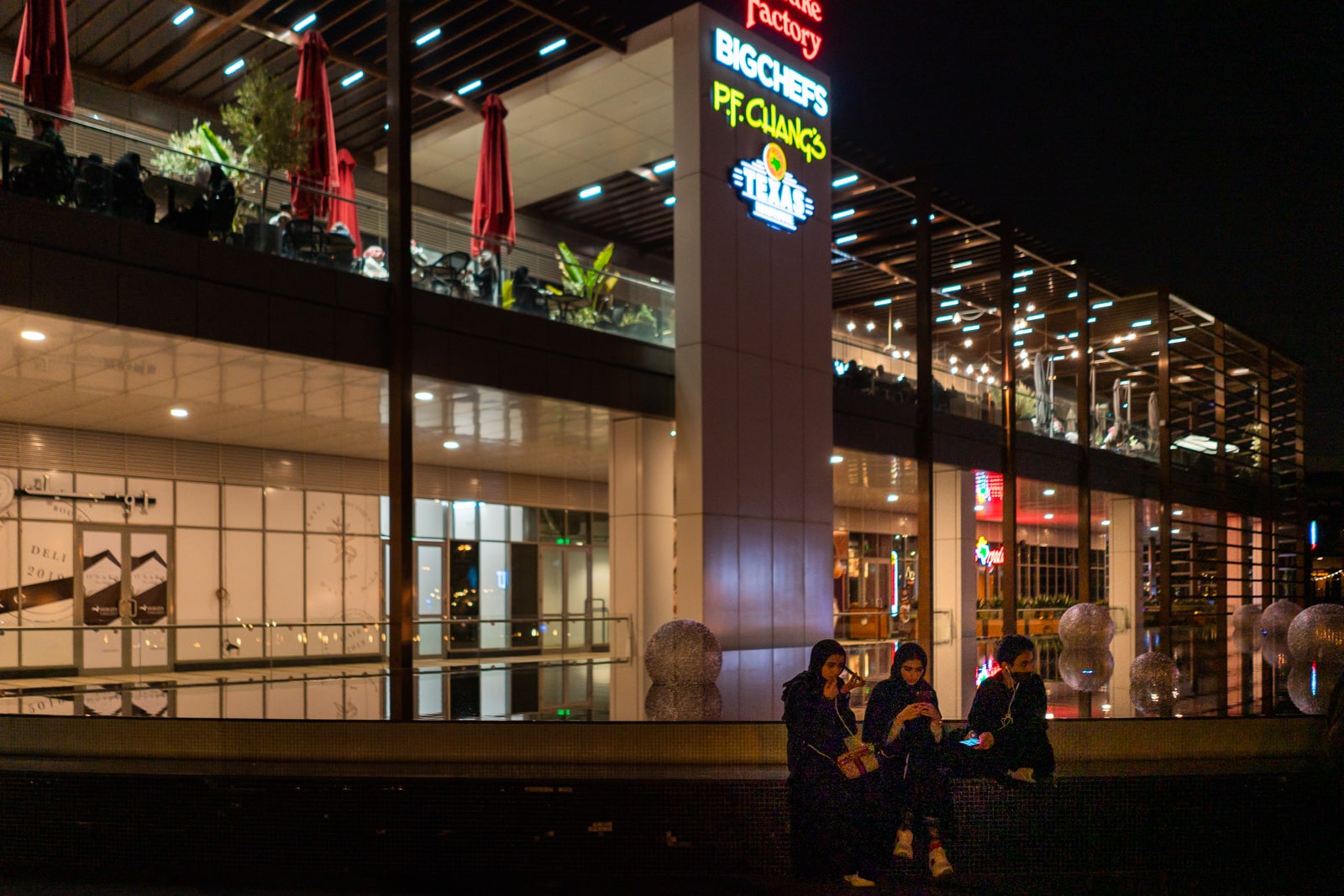
Teenagers hanging out at one of Riyadh’s fanciest malls.
Money and payments in Saudi Arabia
Saudi Arabia uses the Saudi Riyal (SAR). One Riyal is divided into 100 halalas. Saudi has banknotes and coins, although the coins are mostly useless. However, don’t be surprised if you end up with a stack of one and two riyal coins (and a bunch of halalas to boot). At the time of writing, 1 riyal is $0.27 or €0.25. Check here for the current exchange rate.
Paying with credit card
It’s possible to pay by international credit card for most large transactions such as nice meals, car rentals, and hotels. Google Pay is also quite popular in Saudi Arabia—many people just use their phones to pay in cities.
Cash and ATMs
Banknotes come in 5, 10, 50, 100, and 500 riyals. Make sure to withdraw an amount from the ATM that isn’t easily divided into 500 notes; you don’t want to be stuck with a stack of large banknotes. Many places will have some change, but not always enough to break a 500.
Getting money from the ATM is straightforward (there are even drive-through ATMs), and there aren’t any hidden ATM fees to worry about.
Read: How much it costs to travel in Saudi Arabia
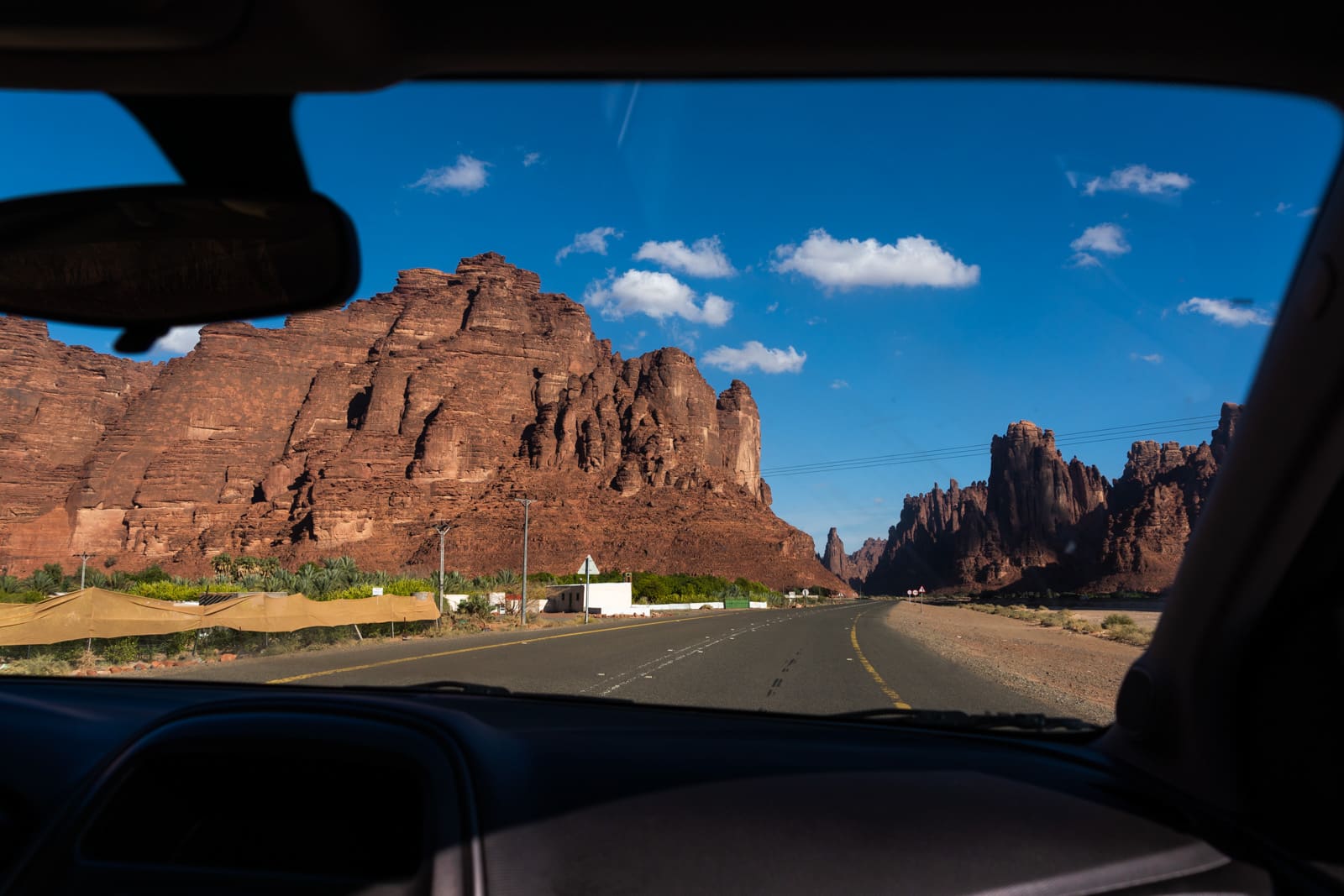
Road tripping into Wadi Disah, one of the most epic canyons in Saudi.
Transportation in Saudi Arabia
Saudi is absolutely massive; getting around takes time. Cities are spread out, and there’s hardly any public transport to speak of. Even between cities—which can easily be more than 500 km apart—public transport is limited.
By rental car
Saudi Arabia is made for cars, especially 4x4s. Saudi’s most memorable spots are all outside the cities; I highly recommend you rent a car to make the most of your trip to Saudi. My guide to road tripping in Saudi has all the information you need.
Note on cars: I’ve heard of unofficial shared taxis offering rides between cities, though I didn’t use any myself. A local told me you can sometimes find them lurking outside of major bus terminals.
If you’re short on time, or if you only want to visit a few main cities, planes are the most efficient (and often cost-effective) way of getting between cities. Most flights are less than two hours. Some are even cheaper than bus tickets.
SAPTCO runs an extensive bus network throughout Saudi Arabia. Buses are clean and comfortable, though on the pricey side. Expect to pay at least US$50 per person for a long distance bus ticket.
For more info on traveling by bus in Saudi Arabia, check out the Saudi Arabia Public Transport Company (SAPTCO) website .
Transport within cities
Ride sharing apps Uber and Careem are commonly used in big cities such as Riyadh and Jeddah.
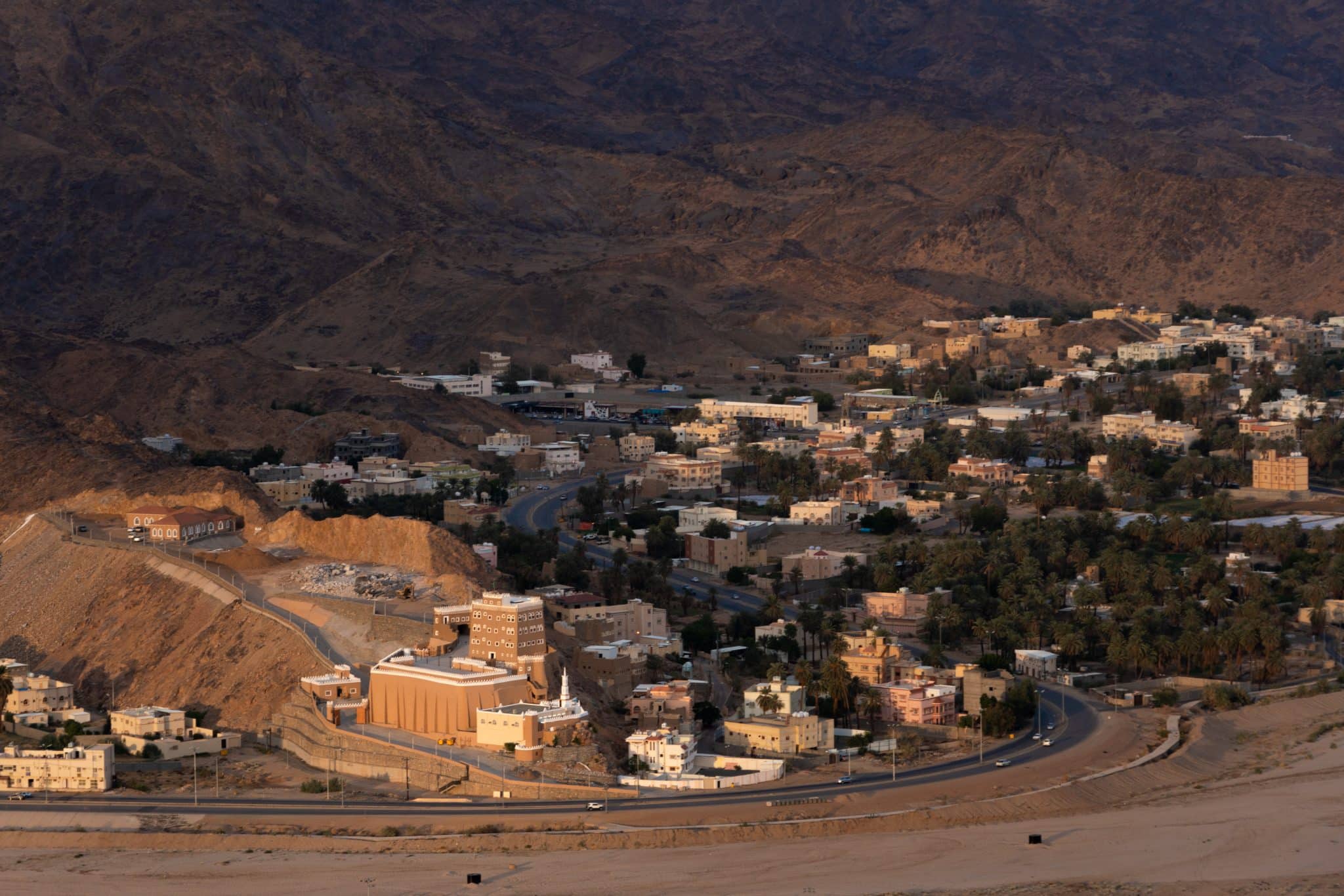
Najran, the Saudi city hardest hit by the war in neighboring Yemen.
Many people have asked me: Is Saudi safe? I think Saudi is generally a safe place to travel to. Although it’s had problems with violence and terrorism in the past, most areas in Saudi are perfectly safe for the average tourist.
The only area considered dangerous is the area along the Yemeni border around Najran. Tourists are allowed to visit, but most governments advise against travel there. Saudi is currently in talks with the Yemen rebels to negotiate a truce. However, some security experts are fearful the rebels might launch a ground offensive on Najran if their demands aren’t met. If you plan on traveling to the south, make sure to keep an eye on the current situation.
Safety issues for travelers in Saudi Arabia
Drivers are the biggest safety hazard in Saudi Arabia. Many drivers drive like crazy, so be careful when crossing the street or driving around the country.
Openly talking about politics or the royal family with people you don’t know well is not wise. Saudi critics of the royal family have been jailed.
Criticizing Islam is absolutely to be avoided for a variety of reasons.
Drugs , including alcohol, are illegal in Saudi Arabia. They do exist—alcohol is common especially among elite and/or foreign circles and khat is a stimulant commonly consumed in the south—but possession is a punishable offense.

Probs checking his Snapchat; Saudis use Snapchat more than any other social media app for everything from messaging to promoting their business.
Mobiles and connectivity in Saudi Arabia
Saudi is fairly well connected. There’s 4G service almost everywhere, even on long stretches of highway in the middle of nowhere. Many cafes and hotels have decent wifi, though mobile signal is often better.
There are several mobile operators in Saudi Arabia. STC, Mobily, and Zain are the three main operators in the Kingdom. I used both STC and Mobily while in Saudi, and highly recommend using STC.
STC’s coverage is the best of the three; I had 4G practically everywhere, even out in nature. Price-wise, Mobily is slightly cheaper, but has poorer service outside of cities and towns. Zain is the cheapest option, but also has the worst coverage outside metro areas.
If you want to get a SIM card, I recommend getting one upon arrival in the airport (if you fly in). The main carriers all have small offices at arrivals, and it’s easy to get a card here as the workers all speak English. It’s possible to get SIM cards in cities, but only at official stores, and workers will be less likely to speak English.
The price for a SIM card with 10GB data is roughly 160 SAR. A 10GB top up is 100 SAR. For info on costs, check out my Saudi budget report .
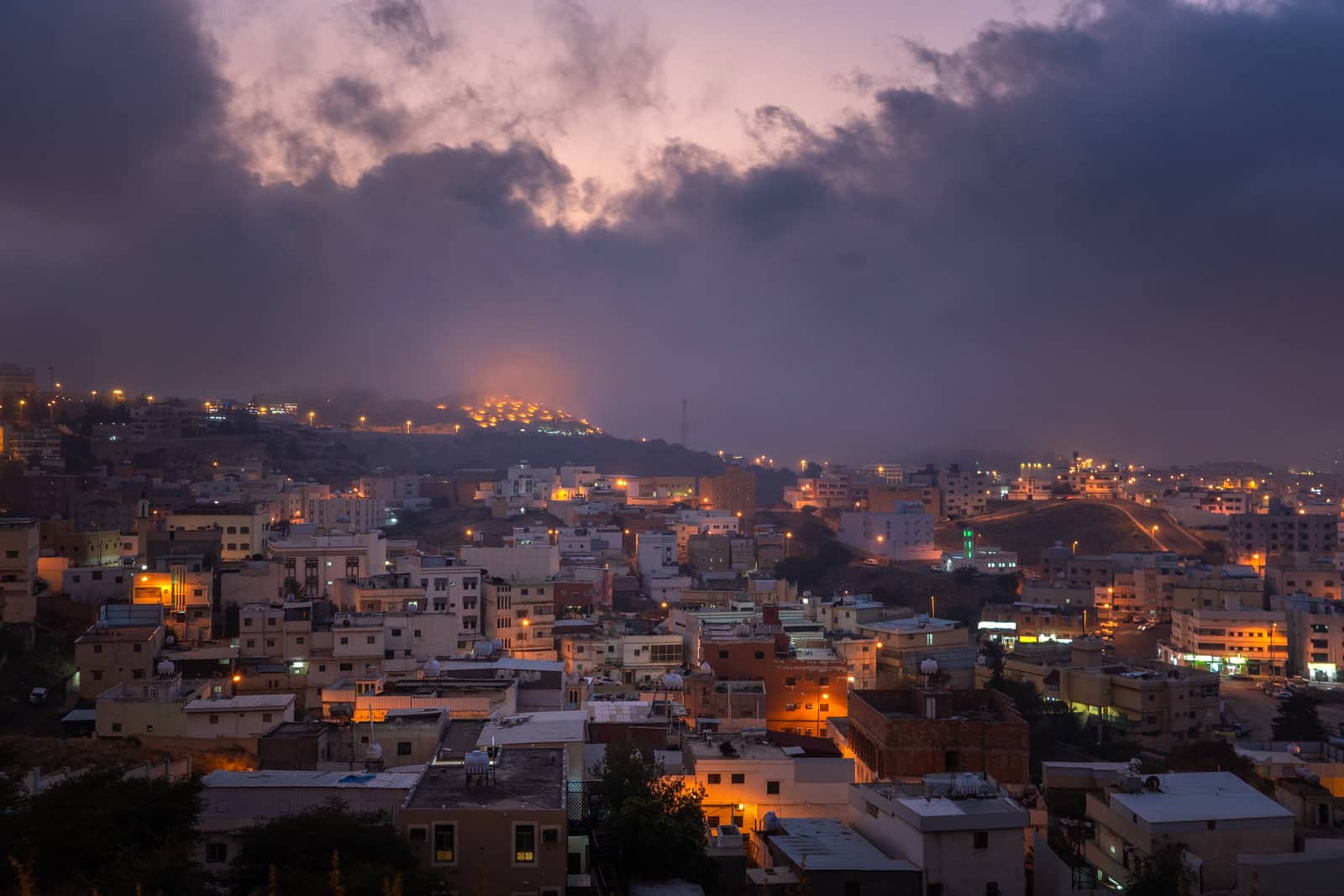
A moody twilight in Abha, a city in the mountains.
More resources for travel in Saudi Arabia
- What it was like to travel Saudi Arabia
- A one-month itinerary for Saudi Arabia
- Guide to female travel in Saudi Arabia
- How much it costs to travel in Saudi Arabia
- Driver’s manual to road tripping in Saudi Arabia
- Nada al Nahdi – Travel blog from a female traveler who was born in Saudi Arabia. Contains some useful itineraries and tips.
- House of Saud – Intriguing documentary explaining the royal family’s power. I recommend watching before visiting.
- Blue Abaya – Popular travel blog by a Finnish expat living in Riyadh
Have more questions? Saudi Arabia travel tips for others? Leave them in the comments!
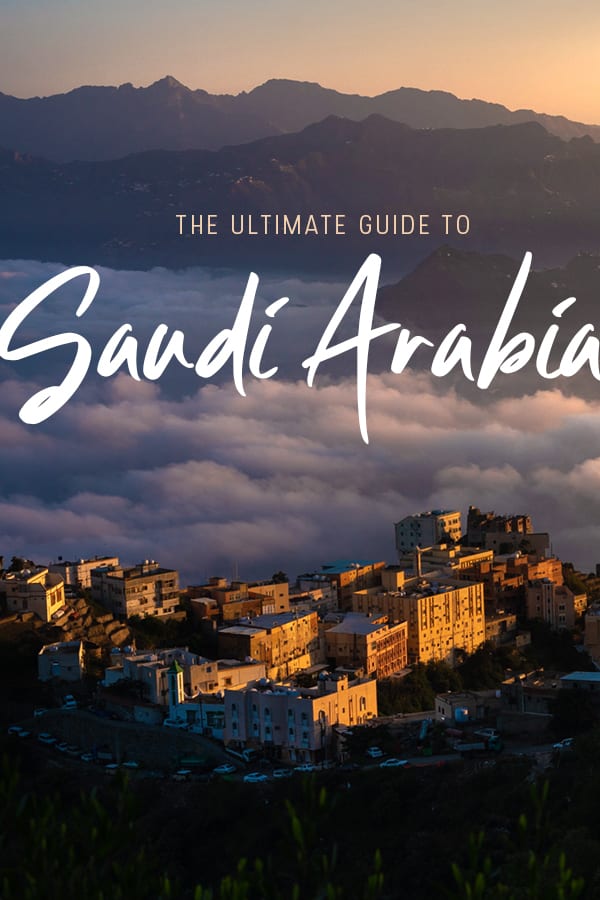
Yay transparency: This post contains affiliate links. If you buy something using my links, I’ll make a bit of extra money at no extra cost to you. It’s how I keep the blog up and running! Never fear, I only recommend things I use or would use myself.

Alex Reynolds
12 thoughts on “ a massive guide to travel in saudi arabia ”.
==> 88nb.cc/2xj16 url.epoch.tw/JM0oX <==
Leave a Reply Cancel reply
Your email address will not be published. Required fields are marked *

- Privacy Overview
- Strictly Necessary Cookies
This website uses cookies so that we can provide you with the best user experience possible. Cookie information is stored in your browser and performs functions such as recognising you when you return to our website and helping our team to understand which sections of the website you find most interesting and useful.
Strictly Necessary Cookie should be enabled at all times so that we can save your preferences for cookie settings.
If you disable this cookie, we will not be able to save your preferences. This means that every time you visit this website you will need to enable or disable cookies again.
The Royal Embassy of Saudi Arabia

Public Affairs
January 20, 2016
History and Government
Education and Healthcare
Economy and Infrastructure
Culture Tourism and Recreation
Saudi - U.S. Relations
- Search Please fill out this field.
- Manage Your Subscription
- Give a Gift Subscription
- Sweepstakes
- Travel Tips
Here’s What You Need to Know Before Visiting Saudi Arabia
For the first time in its history, the Kingdom of Saudi Arabia announced that will be opening its doors for tourism by issuing an electronic visa for visitors coming from 49 countries — including the United States.
Anyone over the age of 18 can apply for an eVisa . It costs approximately $120 and is valid for a period of one year with an option for multiple entry, and permits a maximum stay of 90 days in the country. Previously, the Kingdom issued only visitor visas for religious pilgrimage and business visas. This monumental announcement is part of Crown Prince Mohammed bin Salman’s reform program, Vision 2030 , which aims to reduce the country’s reliance on oil and diversify its economy by way of tourism and entertainment.
Over the past two years, the government has also announced the launch of several ambitious projects, including an entertainment mega-city in Riyadh (reportedly, twice the size of Orlando’s Disney World ), a futuristic beach destination along the coast of the Red Sea, and restoration of UNESCO World Heritage sites. By 2030, the government expects 100 million annual visits, increased foreign and domestic investment in hotels and associated amenities, the creation of million jobs, and an increase in tourism revenue from the current 3% to 10% of the country’s Gross Domestic Product, according to Reuters.
To attract Western tourists and market itself as a tourist destination — on par with neighboring Gulf states— Saudi Arabia has eased some of its conservative restrictions, like granting women rights to drive and travel without a guardian, curbing the powers of the moral police, permitting unmarried tourist couples to rent hotel rooms, and relaxing dress codes.
Within the first 10 days of the introduction of the eVisa 24,000 visitors entered the Kingdom, according to Arab News . Although there is a lack of adequate tourism infrastructure, those curious to learn about and experience the country will find Saudi’s natural landscape and its welcoming locals incentive enough to visit.
If you find yourself heading to Saudi Arabia to explore the land uncharted to tourists, here are a few basic and cultural tips for first-time travelers to the Kingdom.
With this news, people are asking: Is Saudi Arabia Safe for tourists? Yes, Saudi Arabia is safe for tourists. As with travel to any other country in the world, be respectful of local rules and customs, be mindful of your surroundings, and carry out due diligence before traveling. Be sure to consult travel advisories before your trip.
Public spaces
Public spaces may be segregated, and you will find separate entrances or seating areas for men and women. Refrain from public displays of affection.
Seek permission before photographing locals. Under the public code of conduct , it is a punishable offense. Other offenses include vandalism of public property, playing music during prayer times, and dress code violations.
Female tourists are not required to wear the abaya (a cloak, previously mandated by the government). However, both men and women should dress modestly, avoiding tight fitting and revealing clothes in public. The official Visit Saudi tourism website provides further details on what this entails.
Stores and restaurants close during prayer times, five times a day. To make the most of your trip, plan your itinerary according to these times.
Saudi Arabia is a Muslim country. While non-Muslims are welcome and permitted to practice their religion in private spaces, preaching in public forums or on social media platforms is prohibited. Malicious propaganda against the country, government, and religion is a severe offense.
The sale, purchase or consumption of alcohol and drugs is illegal in the country.
Social customs
You will find locals to be hospitable, generous, and as equally curious about you as you may be about them. It is not uncommon to be invited to share a meal or a cup of gahwa (Arabic coffee) and dates. Your hosts — and even strangers — will want to extend their welcome and offer a token of their hospitality, like food or even a small gift. It is considered rude to refuse such an offering. Just remember, always accept and consume food and beverages with your right hand.
If you are invited into a Saudi house, remove your shoes, unless your host insists you keep them on. In a traditional Majlis, (a sitting hall with floor cushions) you are expected to sit on the floor. If hosted elsewhere, you can expect a modern setup with armchairs and other furniture.
Saudis encourage and welcome Westerners asking questions about their culture. To avoid offending local sensibilities, it's best to steer clear of political or religious topics of conversation.
Familiarizing yourself with Saudi rituals like greetings and handshakes will always make a favorable impression with your hosts. “Marhaban!” (Welcome) is a common way of greeting and you may respond with “Marhabtain” (I give you two welcomes).
Men shouldn’t extend a handshake to a Saudi woman, unless she does so first. To err on the side of caution, place your hand over your heart and greet with a hello.

Saudi Arabia
Saudi Arabia is changing daily right now, with a sprawling Vision 2030 road map rolling out ambitious reforms to the Saudi economy, infrastructure, and society—and, in the process, transforming the way the cloistered kingdom has operated for decades. Businesses are no longer required to separate customers by gender; film and music industries are booming; and women have the right to drive, hold their own passports, and travel domestically without a male escort. Billions have been invested in tourism, transforming long-neglected heritage sites, carving futuristic cities out of swaths of desert, and making the country easily accessible to foreigners for the first time.
- Copy Link copied

Some of the first non-religious tours of Saudi Arabia will include stops at the archaeological site Hegra.
Photo by Shutterstock
How to plan a trip to Saudi Arabia
In a matter of minutes, travelers can apply online and receive a multiple-entry eVisa , valid for one year, for about $142. In February 2022, Saudi Arabia started offering free 96-hour layover visas for international visitors arriving by air on Saudia or Flynas airlines. Tour operators such as U.K.-based Wild Frontiers host immersive trips that take travelers from the world’s largest camel market outside Buraydah to ancient petroglyphs around the Jubbah oasis—as well as to the cities of Jeddah and Riyadh. AFAR’s Travel Advisory Council members can also help with planning a trip.
When’s the best time to go to Saudi Arabia?
November to March brings the most pleasant weather in Saudi Arabia, ranging from the 50s in the Hijaz Mountains to the 70s and 80s on the coast. It’s also when the country comes alive with events: AlUla Moments , the MDLBeast music festivals , the Islamic Arts Biennale, the Red Sea International Film Festival, and others.
Local etiquette in Saudi Arabia
- In recent years, guidelines around women’s attire have relaxed considerably, and it’s no longer mandatory to wear an abaya (the traditional body-length dress) and scarf in public. However, both men and women travelers should respect cultural norms with modest clothing options covering the shoulders and knees when in public. Women should have a scarf on hand if they plan to visit a mosque, as head coverings are required.
- Alcohol is prohibited in Saudi Arabia and is not available at restaurants, hotels, venues, or events.
- During the month of Ramadan (March 22 to April 20 in 2023), many restaurants will be closed until after sunset. While some hotels continue to serve meals throughout the day for those who aren’t fasting, you should avoid eating or drinking in public during daylight hours out of respect.
- In general across Saudi Arabia, it’s best to avoid public displays of affection.
Practical information
Arabic is the official language of Saudi Arabia, but English is widely spoken. It’s used in business and is a compulsory second language in schools.
Saudi Arabia operates on a 230V supply voltage and 60Hz; that means it’s plug G, with three rectangular pins in a triangular pattern.
Guide editors and contributors
Canada-born, New York City–based writer Sarah Khan spent the formative years of her childhood in Saudi Arabia. Khan recently served as the editor-in-chief of Condé Nast Traveller Middle East .
Writer Nicola Chilton tells the stories of people, places, and unexpected adventures from her home base in Dubai.
Laura Dannen Redman is the digital content director of AFAR. A student of Middle Eastern politics at Princeton University, she recently returned from a week in Saudi Arabia.


- Testimonials
- Meet the Team
- Work With Us
- Outlook Features
- Sign Up Today
- Travel Guides
- Middle East
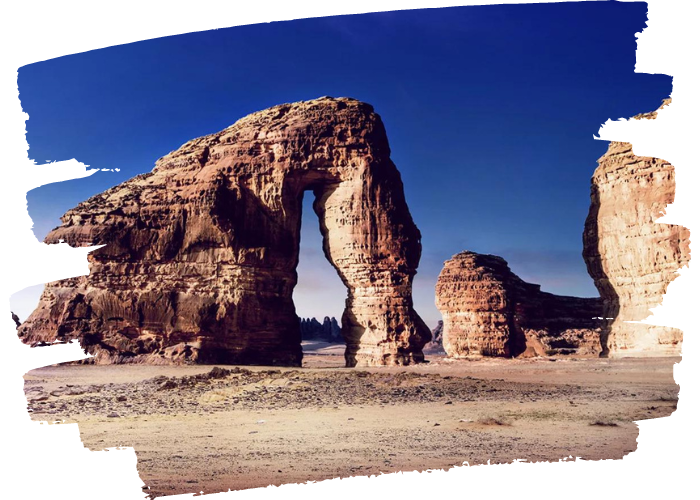
Saudi Arabia
From towering sand dunes to gleaming skyscrapers, Saudi Arabia is an shimmering blend of the traditional and the contemporary. Explore the ancient tombs at Madain Saleh, or shop in Riyadh’s ultra-modern malls. Begin your Saudi exploration with Outlook Travel Magazine.
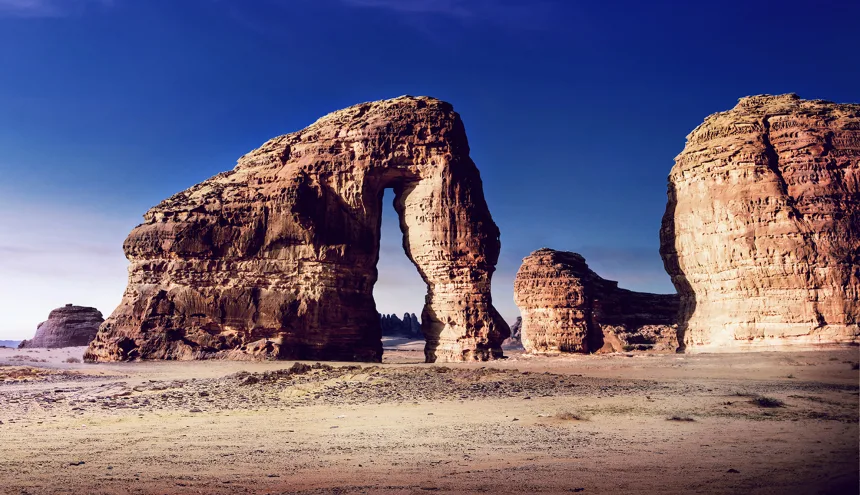
Saudi Arabia Travel Guide
From ancient desert civilisations to sprawling metropolises, we spotlight the Kingdom of Saudi Arabia as an up-and-coming tourism destination for discerning travellers.
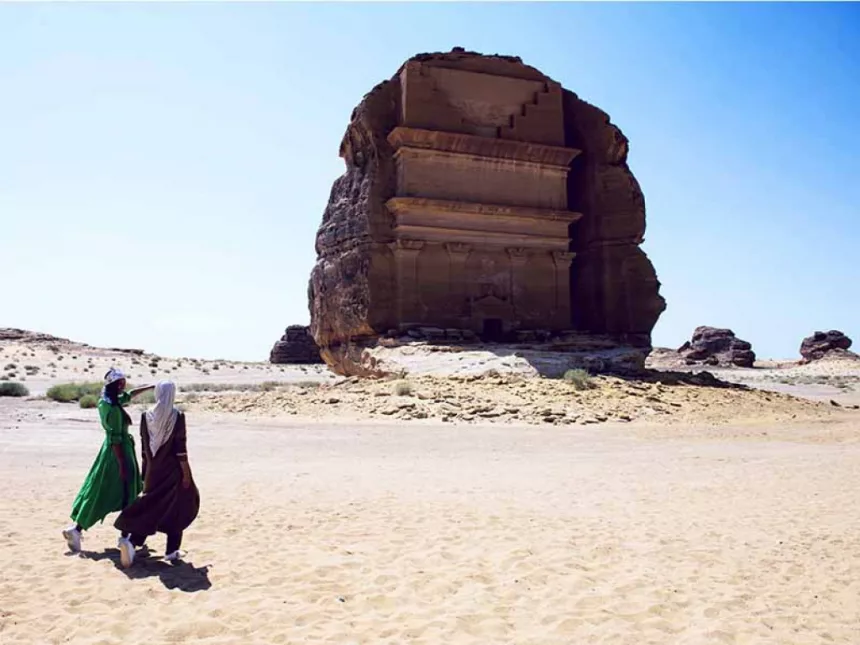
Saudi Arabia : Tourism Insights
Operating under Almosafer, Discover Saudi specialises in inbound travel, online distribution and MICE solutions within the Kingdom.

Saudi Arabia : Outlook Recommends
Discover the iconic Kingdom Tower and luxurious five-star hotel services as Outlook Recommends the best of Saudi Arabia.
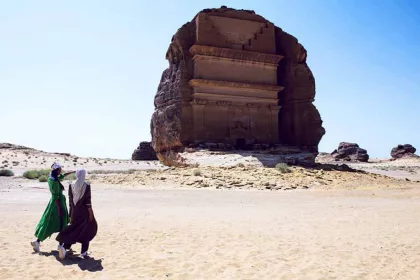
Saudi Arabia Landmark Attractions
From the world's largest living museum to formidable architecture to holy sites, we explore the landmark attractions within Saudi Arabia.
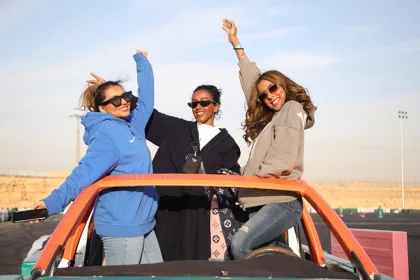
Getting To and Around Saudi Arabia
Saudi Arabia is becoming increasingly well-connected, with tourist visas and application for visas on arrival for 49 different nationalities.
Sign in to your account
Username or Email Address
Remember Me
Saudi Arabia Travel guide: Everything you need to know about KSA.
- By Sarah Steiner
- Updated On March 18, 2024
Considering Saudi Arabia? Visiting KSA and this part of the Middle East is somewhere that has been on our bucket list for a long time and this year we finally got to visit. But deciding where to go in a country so big is not easy; so we went ALL over. Here is our Saudi Arabia travel guide with everything you need to know to plan your visit too.
- Why visit Saudi Arabia?
Travel in Saudi Arabia with kids
- Best time to visit
- Visas
ATM’s and money
- Our itinerary
- Where to go – Dammam – Al Hofuf – Riyadh – Tabuk – AlUla – Yanbu – Jeddah – Abha
- Transportation
- SIM cards, connectivity and wifi
- Accommodation options
- Where we stayed
About Saudi Arabia, quickly
- Full name: The Kingdom of Saudi Arabia
- Capital: Riyadh
- Official language: Arabic
- Religion: 93% Islam, 4.4% Christianity
- Currency: Saudi Riyal (SR) (SAR)
- Population: 36,000,000
- Time Zone: National Standard Time (UTC+3)
- Calling Code: +966
- Drives On: Right
- Credit Cards: Visa/MC accepted
- Outlets: Plug Type G (110/220 V / 60 Hz)

Why visit Saudi Arabia?
While the country has always received many visitors for Hajj and Umrah (pilgrimages) it has been essentially (effectively) closed off entirely for tourism until 2019.
Now it is open with a tourist visa ; yet it still remains a bit of a mystery as far as mainstream tourism goes… But for those of us (guilty) who have a particular passion for countries away from the mainstream tourist trail; Saudi Arabia fits perfectly…
The Kingdom of Saudi Arabia is a Middle Eastern country that makes up the vast majority of the Arabian Peninsula. In other words, it’s huge!
It’s not the most common tourist destination to head for with kids but I am going to tell you about how we found it a truly great – and incredibly hospitable – travel destination that was perfect for a road trip adventure…

It’s great news regarding visas for Saudi Arabia as a traveller. International visitors from 49 countries can apply for an eVisa for Saudi Arabia. And a whole lot of those 49 can also (check pandemic changes to regulations) actually apply for a Visa on Arrival.
In order to enter Saudi Arabia (at any border entry point) visitors travelling with an eVisa also need:
- An eligible passport with more than 6 months validity remaining
- A valid eVisa
- Evidence of onward travel to another country
- Address of accommodation in Saudi Arabia
But here’s how we did it. Crossing to Saudi Arabia from Bahrain on the King Fahd Causeway we hadn’t pre-arranged eVisas for Saudi. We had done (and had fingers crossed) as much research as we could find out and understood that there was a theory we could get a Visa on Arrival at the causeway border. And if not; we would need to hook to the wifi (literally) at the visa office right there and apply for and receive an eVisa.
This was in fact what ended up happening. And so in doing so we entered Saudi Arabia with kids and four times eVisas in our hands at the crossing.

Getting to Saudi Arabia
There are four international airports in Saudi Arabia that travellers can enter with an eVisa:
- King Khalid International Airport (RUH) – Riyadh
- King Abdulaziz International Airport (JED) – Jeddah
- King Fahd International (DMM) – Dammam
- Prince Mohammed Bin Abdulaziz International (MED) – Madinah
And it is also possible to enter Saudi Arabia overland from the United Arab Emirates (UAE) and Bahrain . Which is exactly what we did.
I have written a separate guide to the overland border crossing from the Kingdom of Bahrain to Saudi Arabia. And about how to enter overland into Saudi Arabia with kids in tow. (Note: It isn’t actually that hard).
From Bahrain, entry to the country is via the King Fahd Bridge border checkpoint. This is a 25km causeway from Bahrain to the city of Khobar (less than 50km from Dammam).
Entry into Saudi Arabia by road from the UAE is via the Al Batha border crossing. This is located on the Emirates’ Western border approximately 500 km southeast of Riyadh.

Currency and cash in Saudi Arabia
The Saudi riyal is the currency of Saudi Arabia. At the time of our visit in July and August 2022 the exchange rate is as below:
- 1 SAR = 0.27 USD
- 10 SAR = 2.67 USD
- 100 SAR = 26.66 USD
- 1000 SAR = 266.58 USD
Cash comes in notes of 1, 5, 10, 20, 50, 100 and 500 Rs.
There are many ATM’s on the roadside in Saudi Arabia (and quite seriously there are plenty of drive-through ATM’s lining the highways and huge petrol station stops!).
The first ATM we used was less than 1km after entering KSA (while we were still on the King Fahd Causeway middle island). The most common banks we found and used with our international bank cards while in Saudi Arabia were:
- Al Rajhi Bank
Each of these ATM’s worked for us each time and had the menu option in English on the first page of display.

Going in to shops and restaurants in the big cities you will find people that speak some English. However out in rural Saudi Arabia an English translation is much more limited.
It is hugely appreciated if you can greet and thank people you meet in Arabic. And even if you can’t speak much more than that; do not worry! The people of Saudi Arabia are extremely hospitable and welcoming and will make sure you are comfortable even without a common language to do so.
- Hi/Hello: Salam Alaykum
- Thank you: Shukran
- You’re welcome: Afwan
- How are you? Kaif halak? Or Kaif al hal?
- I’m fine, thank you: Ana bikhayr shukran
- What is your name? Eysh Esmk?
- How much? Be kam?
- Please: Min Fdlek
- Yes: Eewa
- No: La

Our itinerary around Saudi Arabia
Here is our itinerary from a month of travel in Saudi Arabia. We started in the North and headed towards the capital by train; flew out west and then drove by rental car to the beautiful south of the country…
- Bahrain > taxi > Al Khobar entry border
- Al Khobar > taxi > Dammam
- Dammam > train > Al Hofuf
- Al Hofuf > train > Riyadh
- Riyadh > domestic flight > Tabuk
- Tabuk > rental car > AlUla
- AlUla > rental car > Yanbu
- Jeddah > rental car > Abha
- Abha > rental car > Jeddah
Plus we visited Taif , Halaba , Al Bahah and Al Qunfuddah as towns we stayed at least one night in during our trip around by rental car in East and southern Saudi Arabia!
Places to visit in Saudi Arabia
Alright. The country is HUGE. It is in fact the 13 th largest country in the world by land size area so there is much to see. And each of the different regions of the country is very different from the last.
Here are the highlights from our time in Saudi Arabia with what we would recommend you prioritise in each place…
The northern coastal city of Dammam is somewhere that has boomed since the discovery of oil and thus petrol in the Kingdom of Saudi Arabia. From the history we observed on display at the incredible Heritage Village in Dammam (see below) it was a fairly average-sized city before the boom of industry and the rush of people moving to the area.
Things to do in Dammam
- Heritage Village: A must see in Dammam! This was a highlight for us and a great way to learn about the different regions of Saudi Arabia.
- Dammam Corniche: As long as it’s not too hot (read: July or August!) it’s beautiful to walk along the corniche right by sea.
- King Fahad Park: Said to be the largest park in Saudi Arabia by size and also an amusement park with over 25 rides.
- Cobra Entertainment City: Another park and amusement area famous for being one of the best and most beautiful recreational places in Dammam.


Transportation from Dammam
- Train to Al Hofuf: 1.5 hours
- Train to Riyadh: 4 hours
- Drive to Riyadh: 4.5 hours
Known also as Al Hufuf, this city of Saudi Arabia in the Eastern Province not only has one of the largest oil fields in the world but is also one of the largest date producers in the world. Al Hofuf is situated in the largest oasis in the world with huge groves of palm trees; counted at over two million.
Things to do in Al Hofuf
- Qaisariah Souq: Traditional market place selling gold jewellery, gifts and textiles.
- Al Qarah Mountain: Stunning rock formations and natural caves that show archaeological evidence of some of the oldest settlements in the Arabian Peninsula dating back to 5,000 BC.
- Jawatha Mosque: Built in 628AD it is the first mosque in the Eastern province. It is said that the first jummah prayer outside Madinah was prayed here.
- Ibrahim Palace: A beautiful 500+ year old palace and related museum and architectural masterpiece that was a Turkish military barracks and the main headquarters of the Ottoman garrison in Al-Ahsaa.

This is the capital city of Saudi Arabia and there are endless options of sights to see and activities to do in Riyadh; literally from luxury tours and restaurants to hiking on the outskirts at the famous ‘Edge of the World’.
Things to do in Riyadh
- Kingdom Tower: Riyadh’s iconic and ultra-modern skyscraper. You can walk along the skybridge for an epic view of the city.
- Masmak Fort: The museum inside the old fort gives a good history and map of the old city with artefacts from the area.
- National Museum of Saudi Arabia: The Kingdom’s biggest and best museum showcasing centuries of Arabian prehistory, history, culture and art.
- Deera Square: A lot of history here but if you’re visiting Saudi Arabia with kids this is also a great place to splash in the water fountains!
- Najd Village: The best restaurant in Riyadh for tourists with traditional food and a traditional set up inside.
- Edge of the World: This was a separate highlight for us in Riyadh out of the main city. I highly recommend visiting KSA’s Edge of the World!
- Al Baik: Any Saudi you meet will recommend you must try Al Baik (it’s fried chicken; like the Middle Eastern answer to KFC). Go on; do it…

Transportation from Riyadh
- Train to Al Hofuf: 2.5 hours
- Train to Dammam: 4 hours
- Bus to Dammam: 4.5 hours
- Domestic flight to Tabuk: 1 hr 50 mins
- Drive to Jeddah: 9+ hours
The very famous Madain Saleh is located near the city of AlUla and is the iconic image you will have seen of Hegra ; the beautiful rock city in the desert that looks a lot like neighbouring Petra in Jordan.
The official AlUla website has all the information for visiting Hegra and buying tickets online.
Things to do in AlUla
- Madain Saleh/Hegra: The southernmost settlement of the Nabatean Kingdom (the kingdoms second largest settlement after Petra) consisting of over 131 tock-cut monumental tombs and caves.
- Elephant Rock: An artfully formed outcrop that almost looks as if it must be made for Instagrammers. With some creative license the shape of the rock resembles the form of an elephant with a long trunk.
- Hotel Pakistan: We have added this in as a must-try attraction (ok; restaurant) in AlUla. This has to be some of the best food we came across in Saudi Arabia!

A port city of the Red Sea coast of Saudi Arabia (and for us a halfway(ish) point between AlUla and Jeddah in the south). Yanbu is actually the second largest port city on the south of the country (after Jeddah) and one of the oldest seaports on the Red Sea with history dating back approximately 2500 years.
Things to do in Yanbu
- Yanbu Historical Area: An interesting area on the waterfront (currently under construction) to get a sense of architecture and housing style in this area of KSA.
- Dinner in Food Street: Lots of outdoor cafes right on the waterfront. Everything from Turkish to Egyptian, popcorn and pizza.
- Yanbu Port: Walk along the waterfront port and cruise ship dock in the centre of Yanbu’s port city.

The port city of Jeddah has long been regarded as Saudi Arabia’s cultural capital; the perfect blend of old and new. Jeddah has always served as the gateway to Mecca, Islam’s holiest city. And as a result has been heavily influenced by the influx of pilgrims it has received over the centuries.
Things to do in Jeddah
- Jeddah Corniche: A great picnic spot and (obviously) beautiful place for a walk along the Red Sea and waterfront.
- Al Balad: The neighbourhood of Al Balad is the oldest in the city and served as the city-centre for several hundred years.
- King Fahad’s Fountain: The tallest fountain of its type in the world and definitely worth a look.
- Al Balad Souk: Al Balad is home to the main traditional souks in Jeddah like the Bedouin market where in the past Bedouin travellers would sell their own products (now you’ll find food products like coffee, cardamom, grains and nuts).
- Al Romanisah: Not technically a historic or site as listed on KSA’s guiding website but I’m adding it in. Check out our video of trying Saudi’s famous restaurant and I reckon you will be convinced too…

Transportation from Jeddah
- Drive to Al Bahah: 5 hours
- Drive to Yanbu: 3.5 hours
- Drive to Al Qunfudhah: 4 hours
- Drive to Riyadh: 9.5 hours
- Flight to Riaydh: 1.5 hours
Al Bahah is one of Saudi Arabia’s prized destinations; not only for international visitors but for domestic tourism as well. It enjoys a pleasant climate and is surrounded by natural sights and beauty with more than 40 forests and waterfalls.
Things to do in Al Bahah
- King Fahd Mountain Pass: A drive along King Fahd’s Mountain Pass serves up some of the best views in Al Baha with scenic villages and deep valleys.
- Sheda Village: A historic village hidden in the green cliffs and valleys of the Sarawat Mountains. Even driving by you get views of ancient stone houses dotting the roadside and offering a glimpse of a time and communities past.
- Dhe Ayan: Often called the Marble Village this is another historic village of the past where the cuboid buildings are made of stone and slate and tucked right up into the hillside.
Travel tip: I’m adding this as an official travel tip in our Saudi Arabia travel guide because the beautiful King Fahd Mountain Pass is worth a drive just for the views of epic valleys and villages. Even if you aren’t stopping and staying in Al Bahah I would recommend coming this way around towards Abha.

The hilltop city of Abha is the capital city of the Aseer Province in the southwest of the country. It’s known as a summer playground or resort town for Saudi nationals (to escape the heat of the desert cities during the peak of summer holidays) as well as hosting tourists from all over the GCC that flock here to escape the sweltering summer heat.
(So do note; it can get particularly busy during those summer months and accommodation prices not only skyrocket but make it hard to find somewhere to stay. Plan ahead with that one…
Things to do in Abha
- Rijal Almaa: This beautiful village is on UNESCO’s tentative heritage list as a colourful stone village that’s original homes have stood the test of time now for centuries. Now a restored touristic site and museum the village is worth the drive from Abha to visit.
- Al-Basta: Known as the neighbourhood holding the largest number of ancient buildings and monuments; this is Abha’s main tourist destination.
- Green Mountain: Specifically the iconic mountain of Abha (known favourably as Green Mountain) that provides an incredible view of the city and can only be reached by cable car.
- Abu Kheyal Park: Famous for the bright purple blossoms of Jacaranda trees in the early spring.
- Fog Walkway: Also dubbed the Corniche of Abha where all the infamous pictures with clouds are taken.

Transportation from Abha
- Drive to Jeddah: 8 – 9 hours
- Drive to Al Qunfudah: 4 hours
- Bus to Jeddah: 10 hours
- Flight to Jeddah: 1 hour
- Flight to Riyadh: 1.75 hours
Food in Saudi Arabia (you need to try )
Food plays a very important role in traditional Saudi Arabian culture and is seen as a symbol of hospitality.
The most common food items you will come across on your travels in Saudi Arabia include rice, chicken, lamb, spices, yoghurt, potatoes, bread and dates. LOTS of dates.
- Kabsa: Rice and roast chicken with fried onions, raisins, pine nuts (the most famous dish in Saudi Arabia!)
- Maqluba: This is a favourite of ours and most simply described as an upside-down rice dish!
- Tamiya (falafel): Vegetarian fritter made chickpeas/fava beans
- Mandi: Rice and meat cooked in a Tandoor oven
- Sharwarma :
- Kibbeh: Deep fried croquettes of wheat, meat and pinenuts (the word kibbeh comes from the Arabic word kubbah, for ball ).
- Gahwa: Arabic coffee mixed with spices
- Sambusak (samosas): Savoury, deep-fried pastries stuffed with meat
- Kunafah: Sweet, crunchy pastry

What kind of food will the kids eat while we’re in Saudi Arabia?
It’s definitely a fair call to be contemplating travel in Saudi Arabia with kids and wondering what on earth they are likely to eat while you’re there…
Here are some firm favourites we found during our month of travels (that was not including the supermarket packaged treats that I do admit were also handy when in transit on a road trip between cities!).
- Arayes: Crispy pita bread sandwiches
- Shakshouka: Poached eggs in cooked tomato sauce – this one we had at breakfast time in a couple of places.
- Jallab: Basically a fruit syrup!
- Basbousa: Semolina cake
- Muhallebi: Milk pudding made with rice flour

Also note that most markets don’t open until late afternoon (around 4pm). AND I have to say that only a couple of hotels out of alllll the different ones we stayed at actually included breakfast in the room charge. (I mean seriously they barely even offered utensils or crockery). So don’t get the idea of filling up on breakfasts for the days adventures. Best to head to the markets or find a roadside restaurant (we can recommend a few of those we enjoyed!).
Transportation in Saudi Arabia
Saudi Arabia is a huge country to travel around. (Remember; it’s the 13 th biggest country in the world by land-size!). But the good news is that it is also a country with multiple options for travel – overland, by public transport (train) or by flight.
Here is what we found about transportation in Saudi Arabia condensed into the following Saudi Arabia travel guide!
Getting around Saudi Arabia by train
The Dammam-Riyadh train line offers a (relatively) budget-friendly way to travel between the largest Saudi cities (with a view).
There are six daily departures on two trains (one operating Sunday through Thursday and the other on Thursdays and Saturdays).
The trains we went on between Dammam and Riyadh have Premium (1st) class and Standard (2nd) class, a café on board and even a prayer area.
Tickets between Dammam and Riyadh cost:
- 1 st class: 136.50 SAR (USD $37)
- 2 nd class: 78.75 SAR (USD $21)
There is also a North Train that connects Riyadh to the north of Saudi Arabia and serves the following stations:
- Hai; and
And the Haramain High-Speed Railway popular with pilgrims is the latest and fastest train in the Middle East, operating between the holy cities of Makkah and Medina in western Saudi Arabia. It serves the following stations: Makkah, Jeddah, King Abdullah Economic City and Medina. (Note you cannot visit Makkah as a non-Muslim tourist).

Getting around Saudi Arabia by rental car
Although you might have heard tales fast and erratic driving in Saudi Arabia (sorry; they’re mostly true) and be put off the consideration of hiring a car in Saudi; it is actually a great way to get around the country. (As long as you’re a confident driver). Because the country is geographically HUGE!
There are maddening crowds and traffic in the big cities, mountain switchbacks (looking at you, Abha) and dark desert highways that stretch for literally miles on end.
But in actual fact road conditions are fairly good and when we rented a car and drove in Saudi Arabia (ok, Gavin drove) this year we had a great experience and found it an economical way to get from one side of the country to (almost literally) the other.
Cars in Saudi Arabia are left-hand drive and automatic transmission is standard.
And luckily, petrol in Saudi Arabia is cheap (no surprises there). Petrol costs about 1.5 riyal/L ($0.40 USD) for 91 and 2 riyal/L ($0.50 USD) for 95.
Note: As a non-resident (tourist) you do need to have an International Driving Permit (IDP) to rent a car and drive in Saudi Arabia.
We hired a car through Avis rentals and found their service particularly good. We picked up the car in Tabuk and returned it to Jeddah three weeks later. A great experience.

Getting around Saudi Arabia by plane
Getting to Saudi Arabia is easy these days with four international airports served by a wealth of different international carriers.
Saudi Arabia also operates 15 domestic airports around the country with three carriers that make short hops between regions fairly cost effective too.
- Nesma Airlines
It’s easy to book flights online through each carriers website (or using a larger flight scanning app or site).

Getting around Saudi Arabia by taxi
It’s fairly easy to get a taxi in the major cities of Saudi Arabia. (In Dammam we were picked up by a taxi driver who said he couldn’t bear to see us outside in the heat and insisted on dropping us off for free!).
The cheapest option is definitely Uber although sometimes we found with the long wait time it wasn’t the most sensible choice (especially waiting in the heat with kids).
In Dammam an Uber for 3km cost us around 15SAR. And in Riyadh during the peak evening time we got an Uber for 10km for 45SAR.

Budgeting for Saudi Arabia
There’s no need to beat around the bush with this part of the travel guide for Saudi. Whether you are in Saudi Arabia with kids or not; it is an expensive country to travel in.
Not only is it above average costs for the daily budget as a traveller; it is expensive to enter the country (see above section about visas) unless you are a Gulf country citizen or resident worker. But there are different options for food and drinks (like a supermarket or finding a smaller non-chain restaurant) that can help to budget for your trip…
- Water (1L): 2 SAR
- Soft drink (can): 4 SAR
- Coffee (Starbucks): 18 SAR
- Ice cream (packaged): 3 SAR
- Meal at McDonalds:
- Sharwarma: 15 SAR
- Hummus: 8 SAR
- Chicken kabab: 24 SAR
- Mixed grill meat platter: 35 SAR
- Pizza (restaurant): 35 SAR
- Uber (3km): 15 SAR
- Uber (peak time; 10km): 45 SAR
- SIM card (STC with 20GB): 95 SAR

Connectivity and WIFI
WIFI is a bit hit and miss across accommodation in Saudi Arabia. (That’s putting it politely. Don’t get your hopes up; sorry). We’ve have some hotels that were great and WIFI
was fast and included in the price. And then others where the signal is so weak it can’t even pick up the supposed ‘free WIFI’…
The major cities have 5G mobile reception which with a local SIM and data makes it the most efficient way to navigate the country (especially if driving by car as the distances between cities – or even shops or villages where people might help – are huge).
SIM cards and data
There are 3 main operators in Saudi Arabia: STC, Mobily and Zain.
They have similar packages and prices and coverage is great in the cities. All the SIM cards are valid for 7 or 30 days in Saudi Arabia.
- STC KSA : SAR 30 and comes with SAR 25 with of credit
- Mobily : prepaid plans for SAR 25, 30, 75, and 150
- Zain KSA : 55 SAR for 2GB data
From what information I could find before we arrived (we needed a Saudi Arabia travel guide and hence creating this one!) it sounded like STC is the best option (it’s the largest phone operator in the country).
Prices for a prepaid STC sim card in Saudi Arabia:
- 65 SAR ($17 USD): 2GB data, 5GB social media, 500 minutes
- 90 SAR ($24 USD): 8GB data, 200 minutes
- 160 SAR ($42 USD): 10GB data, unlimited social media and calls
SIM card registration is mandatory in Saudi Arabia and will be done at the point of sale (using your passport information). And you also have to provide your fingerprint for additional security (true).

Accommodation options in Saudi Arabia
Alright this area of our Saudi Arabia travel guide is going to just be honest and let you know what accommodation in Saudi Arabia is like. I wouldn’t rate it. I assume if you have lots of money and are traveling in luxury through the Kingdom (as many domestic and international travellers are) as it is renowned for; then truly your options are limited. There are not backpacker hostels or even backpacker- type places to stay yet. It’s only early days.
So there is a weird combination of budget chain hotels (OYO) that aren’t in fact actually budget prices. And smaller hotels trying to offer what might have once looked like luxury accommodation (headboards so big the bed hardly fits in the room and lace and overexaggerated furniture).
But the most odd thing about the accommodation has to be in the kitchens. Seriously, some of the kitchens are ridiculously enormous. Huge cook-tops, full-size catering ovens, fridges and a huge dining. But no cutlery and no crockery and no pots and pans. Like; none at all.
And if you go to the reception to ask if you might have a cup to use with the provided electric kettle they look at you very strangely. They might if you’re lucky call housekeeping who will need the security guard to translate your very unusual request and might provide you with a paper cup (even two) for a hot drink. Nice.
But overall we did manage to make our way around the country trialling a range of accommodation options. Some we would recommend and stay in again and some maybe not.

Here is a list of where we stayed during our travels in Saudi Arabia.
Where we stayed in Saudi Arabia
- Dammam: Tulip Inn Suites and Residence Dammam (recommend)
- Al Hofuf: Lily Hotel Suite Mubarraz (recommend)
- Riyadh: Capital O 162 Brzeen Hotel
- Tabuk: Rafahyat AlFakhama Furnished Units (recommend; no crockery though)
- AlUla: AirBnB-Style House (highly recommend)
- Yanbu: OYO 273 Star Yanbu Hotel Suites
- Jeddah: Qasr Al Thuraya Hotel Apartments (recommend)
- Al Qunfudhah: Layali Alandlous Furnished Units

Your Saudi Arabia travel guide
So there you have it! Your complete Saudi Arabia travel guide plus much more to keep you planning/dreaming/scheming for your Arabian adventure to come. Have fun and enjoy this incredible country that has for so many years been a mystery to most of the world.
We had a truly fantastic time and hope you do too.
Happy travels in KSA!
More about travel planning for Saudi and beyond…
These are the companies we use while traveling fulltime as a family and that we would recommend to anyone planning and booking travel.
- Booking.com – The best all-around accommodation booking site that constantly provides the cheapest and lowest rates. They have the widest selection of budget accommodation and it’s easy to filter and sort into price and availability with all the extras you are looking for personally. (We love the flexible cancellation policy!).
- Hostelworld – The largest inventory of hostel accommodation in the world.
- Skyscanner – This is by far our favourite flight search engine. They are able to search small websites and budget airlines that larger search sites often miss. We book all our flights through Skyscanner.
- GetYourGuide – Get Your Guide is a huge online marketplace for tours and excursions offered all around the world including everything from walking tours, to street-food tours, cooking classes, desert safari’s and more!
- SafetyWing – A global travel insurance that covers people from all over the world while outside their home country. You can buy it short or longterm; and even if you are out of the country.
- World Nomads – Travel insurance tailored for longterm travel and nomads (including those who have already left home).
Wondering about itineraries? Questions about schooling? See our Family Travel Guides and FAQ here .
Top Destinations
- Cook Islands
- New Zealand
Latest Posts
Choosing the best moroccan hammam in rabat: what to expect., visiting hassan ii mosque casablanca: everything you need to know., hassan ii mosque hammam in casablanca: the best hammam in morocco , ramadan in morocco: should you reconsider travel to morocco during ramadan, chez lamine marrakech: eat lamb where gordon ramsay ate , jardin majorelle in marrakech (ysl garden): is it truly worth the visit.

We are the Steiners: Sarah, Gavin, Harry and Oscar – a family from New Zealand with a love of travel and adventure together… Especially where it takes us off the beaten track!

Away with the Steiners uses affiliate links. That means that if you buy something through these links, we may earn a commission at no extra cost to you.
1 thought on “Saudi Arabia Travel guide: Everything you need to know about KSA.”
Your detailed itinerary of Saudi Arabia is incredibly helpful! It’s great to see how you navigated the vast landscape, from Dammam to Riyadh and beyond. Your blend of train travel and car rentals provides a practical roadmap for future travelers. Thanks for sharing!
Leave a Comment Cancel Reply
Your email address will not be published. Required fields are marked *
Save my name, email, and website in this browser for the next time I comment.
Notify me of new posts by email.

Best Of Saudi Arabia | The Perfect 12-Day Itinerary
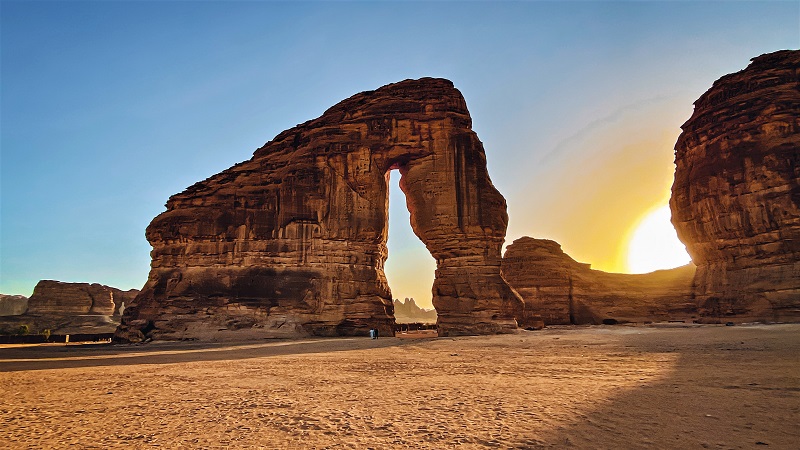
If you are planning a trip to Saudi Arabia, your flight will most probably land either in Jeddah or Riyadh. It doesn’t really make a difference from where you will start your exploration journey, since the places you will be visiting are pretty much standard. With that in mind, you can easily reverse the order of the cities, based on the optimum inbound/outbound flights found.
Here below you will find the perfect 12-day itinerary, covering the very best of Saudi Arabia, for all first-time visitors to the Kingdom.
Road-Trip Distances Around Saudi
Every road itinerary in Saudi is shaped around 4 distinct areas: Jeddah, Riyadh, Abha, and AlUla. The distance between these cities is pretty huge, so I can hardly propose driving the whole way. Indicative distances here below:
- Jeddah – Riyadh (950 km, 9-10h): I find this to be the most useless drive, as there is nothing interesting to see between these two cities. You can skip this part entirely.
- Riyadh – AlUla (1.060 km, 11h): This is an interesting drive that is worth doing if time is not a big issue for you. We personally “invested” 3 days on this route, driving from Riyadh to Buraidah (400 km, 4h), from Buraydah to Haʼil (280 km, 3h), and from Haʼil to AlUla (430 km, 5h). We found both Buraidah and Haʼil an interesting add-on to our trip, so this is a big YES for me.
- AlUla – Jeddah (690 km, 7-8h): I don’t see any good reason for driving all this way unless your intention is to make a stop at either Madinah or Umluj. We have done the drive for Madinah (330 km, 4h) so no regrets!
- Jeddah – Abha (720 km, 10h): This is still a big question mark for me. Our initial intention was to drive this route, visiting Taif, Al Bahah, and Thee Ain Ancient Village along the way. I still think it’s an interesting drive to consider, but unfortunately, I cannot speak out of my own experience.
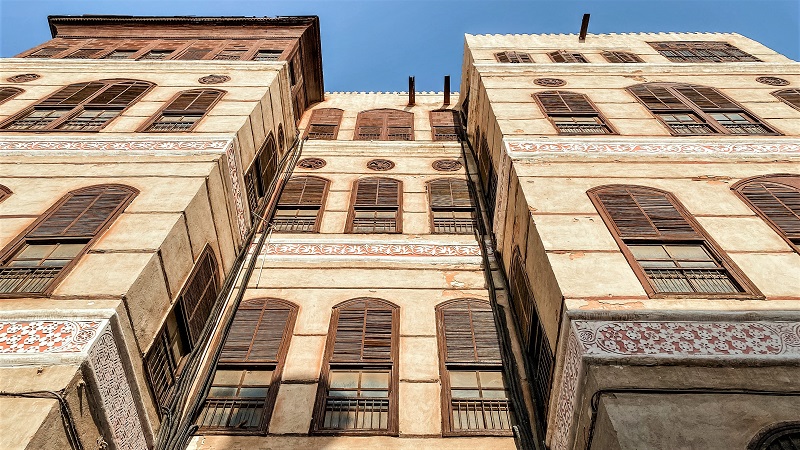
Day 1: Explore Jeddah
Jeddah is the second largest city in Saudi and the main gateway for Muslim pilgrims heading to Makkah. Despite its religious significance, it is also the most progressive city in the entire Kingdom.
I recently read an interesting debate about the name of Jeddah. Based on an old legend, Jeddah (translating into “grandmother” in Arabic) was named after our universal grandmother, Eve. This legend is supported by the fact that Jeddah is considered to be the burial place of Eve. Her Tomb is located in a cemetery close to Jeddah’s Old Town. In an effort to prevent pilgrims from visiting Mother Eve’s Cemetery, the religious authorities sealed the tomb with concrete back in 1975, making it no longer visible. The cemetery is most of the time closed, but even if you manage to get inside you stand no chance of tracing Eve’s grave.
Some people argue with this old legend saying that Jeddah was initially pronounced “Juddah”. Juddah translates into “seashore” in Arabic, signifying the city’s location next to the Red Sea.
The absolute minimum time you should spend in Jeddah is one full day for sightseeing the main points of interest. Let your first stop be the lively corniche! The Corniche of Jeddah has a lot of green rest areas and offers its visitors opportunities for walking, running, setting a picnic outdoors, or simply enjoying scenic views over the Red Sea. As it’s quite big in length, you’d better focus on interesting zones such as the Jeddah Sculpture Museum , or the “Art Promenade”. The latter is the best spot for gazing over the famous Al Rahma Floating Mosque from a close distance.
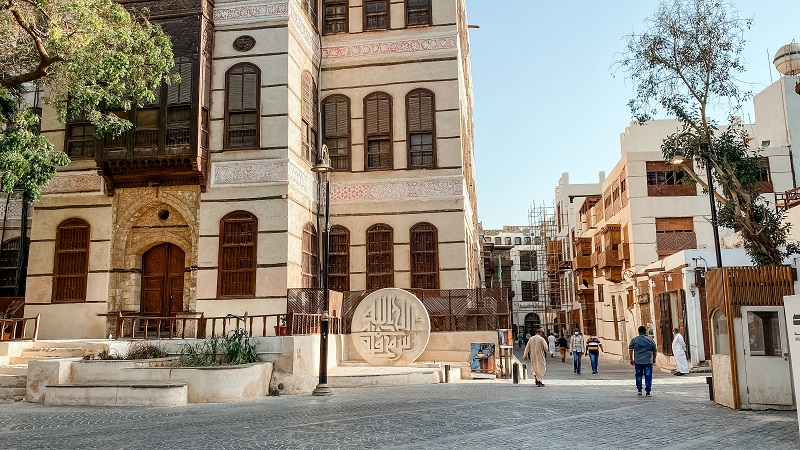
While in Saudi, you will soon realize that not many things are happening during the day. The heat has forced people to minimize their outdoor activities in the daytime, with most marketplaces and Souqs turning operational in the early afternoon. With that in mind, the best time to visit Jeddah’s Old Town, the world-famous Al Balad district, is before sunset. At this time of the day, Old Jeddah turns into a bustling and vibrant area, full of life!
Al Balad is famous for its unique architecture based on the use of coral stone (extracted from the nearby reef in the Red Sea). Another noticeable feature of this Hejazi architecture is the elegant rawasheen (wooden windows and balconies) adorning the buildings’ facades. As part of the country’s Vision 2030, and in an effort to preserve Al Balad’s identity and heritage value, a lot of historical buildings are currently undergoing heavy renovation. This might not allow you to see them at their full grandeur, but you will still get a very good feel of how wealthy and prosperous the merchants of Old Jeddah used to be.
Some places you should not miss while in Old Jeddah:
- The Nassif House was constructed in the late 1800s for Omar Nassif Efendi, the governor of Jeddah at that time. The very same house served as the residence of King Abdulaziz (the founder of Saudi Arabia) while in Jeddah. A fun fact about this house is the existence of a pathway that allowed the King to ride his horse all the way up to his office on the second floor! Bait Nassif has also been nicknamed the “House with the Tree”, thanks to a beautiful neem tree that stands at its very entrance! It is said that, up until the 1920s, this was the only tree in the entire Jeddah! Over the course of the years, the Nassif House has served as a library, a cultural center, and a museum.
- The Al-Shafi’i Mosque (Masjid Of Al-Imam Al-Shafi’i), is the city’s oldest mosque, counting over 1.400 years of age. Non-Muslims are allowed to enter the mosque outside of prayer times. Before entering, make sure that you are dressed modestly and that you have taken your shoes off!
- The traditional Souq Al Alawi , where you can find genuine Arabian jewelry, traditional dresses, perfumes, as well as local herbs, spices, and textiles.
- The Bab Makkah , a three-arched gate that has been marking for centuries the start of the pilgrimage journey to Makkah.
- Al Saidi Bakery is most probably the oldest bakery in Jeddah, baking traditional bread for almost 100 years! You can find it very close to Nassif House. From there, let the smell of the freshly baked bread show you the way!
Your last stop of the day should be at King Fahd’s fountain , the tallest fountain in the entire world! It is located on the shore of the Red Sea, and at a close distance from Al-Hamra’s Corniche. The height of its water reaches a maximum of 312 meters, making it even taller than the Eiffel Tower (without its antenna). At night the fountain is beautifully illuminated, while the fact that the water changes colors is making it a mesmerizing sight that should not be missed.
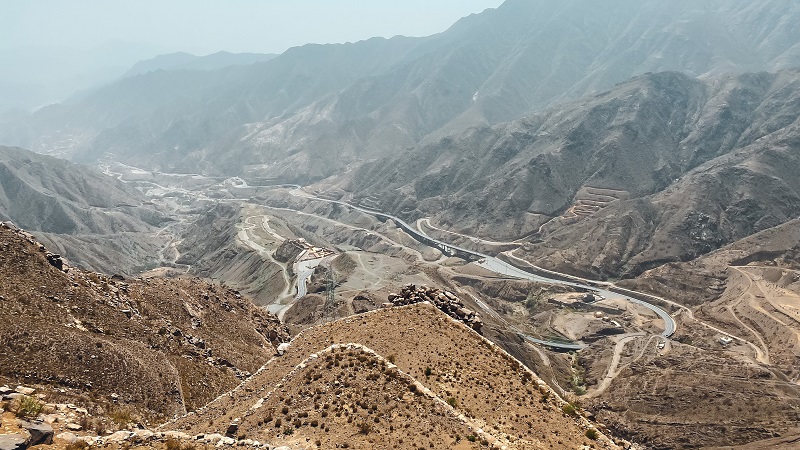
Day 2: Jeddah - Abha (flight)
The city of Abha is the capital of the Asir Province in the South of Saudi Arabia. Due to its mountainous location, and contrary to the rest of the country, Abha enjoys pleasant weather all year round. And this is precisely what makes it extremely popular in the summertime when Saudis are trying to escape the extreme temperatures experienced in the rest of the Kingdom. Abha is also well-known for the beautiful landscape above the clouds!
Using a flight for this part of your trip will save you a whole lot of time! Upon arrival in Abha, you can walk around the city center and admire interesting sites, such as:
- The historical village of Al-Muftaha is located at the very heart of Abha. Al-Muftaha counts over 260 years of age, however, for many years it was left in an extreme state of neglect. Thanks to the efforts of the Saudi government, restoration work was completed giving the village a new life and purpose! Ever since, it has been serving as a regional cultural center, with lots of art galleries and exhibition spaces. Overall, it is acting as a platform for local creativity. The colorful houses have been maintained exactly like the original ones and are a fascinating example of traditional Asir architecture. At the time of my visit, Al-Muftaha was, unfortunately, not open due to restoration work done all over Abha.
- For museum lovers, Shada Palace is the place to go (if open). It is one of the few traditional buildings still standing in Abha, originally built for a ruling governor, and now housing a handicrafts museum. This mud-walled tower definitely stands out from the modern buildings surrounding it.
- Art Street is another favorite gathering place for locals. A street lined up with trees, and what more full of art and life. Shops, galleries, cafes, restaurants, and street art, all in one place. Stroll, stroll, stroll, and people watch as others stroll, stroll, and stroll! Don’t miss the Souq Al Thulatha (Tuesday Market) , which is just around the corner! The market is open on all days of the week, but it attracts the best merchants of the region every Tuesday!
- The Abha Dam Lake is a peaceful place with pretty nice views. It is definitely worth a quick stop. You can get here within a 10’ drive from the city center.
- The High City is most probably the highest viewpoint in Abha, offering its visitors mesmerizing views over the valley and the surrounding mountains. But apart from a viewpoint, it is mainly a recreational area and a get-together spot for local Saudis. The High City gives a more European flavor to Abha with its elegant (and pricey) coffee shops and restaurants. Normally, a cable car is connecting the High City with another popular location, the Green Mountain (more on this below). However, at the time of our visit (again), this was not operational (maintenance work in progress).
- Next stop, Jabal Al Akhdar , or else the iconic Green Mountain of Abha. Not really a mountain, but a hill, Jabal Al Akhdar took its name from the green lights used to illuminate it at night. Definitely, an amazing spectacle for visitors and locals alike. You can get to the mountain’s summit either by hiking your way up or by using the cable car. I am not sure about the cost of the cable car since we could not use it, but there is an entrance ticket of 20 SAR (5€) to the Green Mountain itself. The entrance fee can be redeemed at any restaurant on site, but again restaurants in tourist places are rather expensive. The view from the top is worth taking the ride, but the mountain itself is way more impressive (when illuminated) from a distance! Opening Hours: After 2 p.m.
- Khamis Mushait is a nearby city in close proximity to the Abha airport. It hosts the heritage village of Dhafer Bin Hamsan which is covering an area of 15.000 square meters and offers its visitors the opportunity to explore the ancient social lifestyle within its grounds. The city’s Souq Al Khamis (Thursday Market) also boasts some of the best gold and silver Bedouin jewelry in the region.
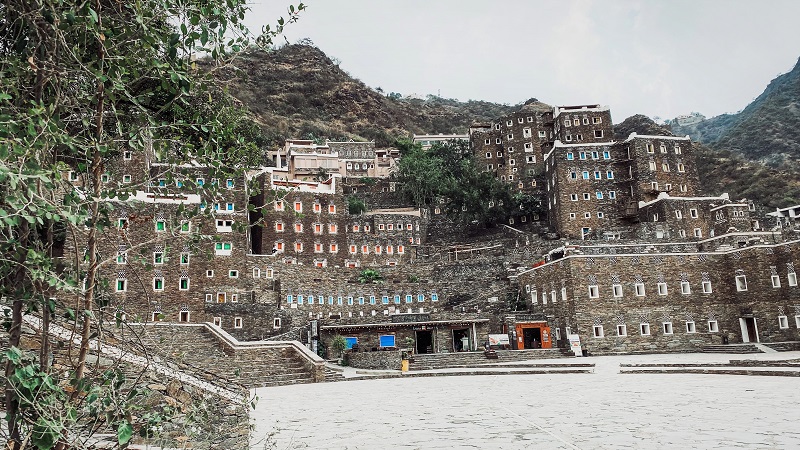
Day 3: Abha - Al Sahab Mountain Park - Al Sawda - Rijal Alma - Abha (130 km / 3 hours)
No visit to the South of KSA can be complete without heading to Rijal Alma. Rijal Alma is yet another heritage village of Saudi Arabia that has been gradually transformed into a major tourist attraction. Hidden in the mountains of the country’s southwest Asir region, this small village is characterized by Yemen-style architecture. This makes absolute sense, considering its strategic location and proximity to Yemen itself.
Rijal Alma historically served as one of the most important trade centers in the Arabian Peninsula. As such it was strongly influenced both culturally and architecturally by the foreign travelers that passed through. The village’s iconic stone buildings (also known as forts) are decorated by skilled painters in fascinating color combinations and designs.
In an effort to preserve the heritage of the region, most of these buildings have gone through a thorough restoration driven by the locals themselves. In that direction, a Heritage Museum has also been established onsite, displaying over 2,800 exhibits collected among the local families.
How to Get to Rijal Alma
Rijal Alma can be reached by car within just 1.5 hours from the city of Abha. Do just note that the road before reaching the village is extremely steep and sharp, making the drive down a bit scary.
On your way to Rijal Alma, it is worth making two quick detours at:
- Jabal Sawda (or else “Al Sawda” ), is the highest peak in the Kingdom of Saudi Arabia. This is one of the best viewpoints, famous for its spectacular misty landscape. Al Sawda peak is easily accessible by car, just 30 mins from the center of Abha.
- El Sahab Park , for more views of the surrounding mountain peaks. “Sahab” literally translates into “cloud”, and that is exactly what this place is all about. A wonderful viewpoint above the clouds!
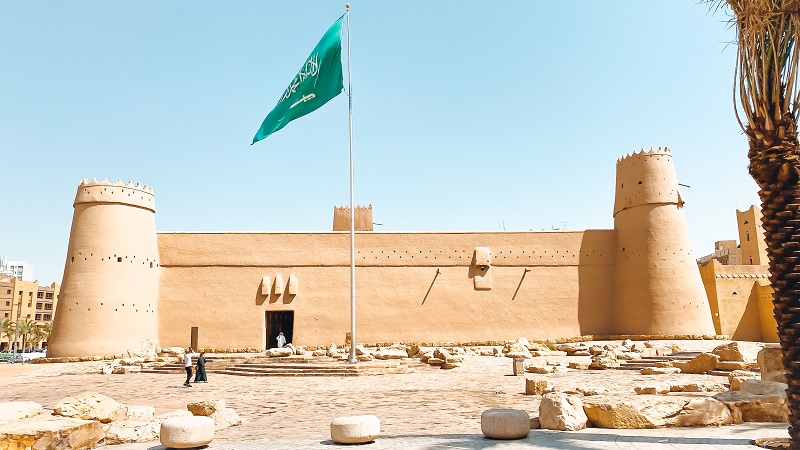
Day 4: Abha - Riyadh (flight)
I highly recommend using a domestic flight for this part of the route to quickly and comfortably reach Riyadh. Assuming that you can afford one day only in the Kingdom’s capital city, here are the most important points of interest you should target visiting:
- Al Masmak Fort: Dominating the center of the Old City, Al Masmak Fort is the exact spot where the Battle of Riyadh took place. This is literally the place where the first page in the history of modern-day Saudi Arabia was written. Al Masmak is nowadays serving as a Museum, and is open for public visits free of charge.
- The Deera Square: Right across Al Masmak Fort, lies Deera Square, the site where public executions were performed until very recently. For that very reason, Deera is commonly known as “Chop Chop Square”.
- The Imam Turki Bin Abdullah Grand Mosque , one of the largest mosques in Saudi Arabia, is located right on Deera Square. If you are dressed up decently, you can ask for permission to get inside. The prayer hall is simply enormous and can accommodate up to 17,000 worshippers!
- Al Murraba Palace: Al Murraba was built by King Abdulaziz to serve as his personal residence. It also has a historical significance being the very first building constructed outside the Old City of Riyadh. Today, the palace is a “living museum”, housing some of King Abdulaziz’s personal items, archives, and other royal antiques. Among these, the Rolls Royce presented to the King as a gift by Winston Churchill.
- The National Museum of Saudi Arabia . A stone’s throw away from Al Murraba Palace, you will find the crown jewel of Riyadh, the National Museum of Saudi Arabia. Consisted of eight different Exhibition Halls, presenting (with the use of multimedia technology) different stages of the Arabian Peninsula’s evolution. Geographical, historical, cultural, and heritage-related elements, all beautifully blended together. I personally found pretty impressive the halls exhibiting models of the two Holy Cities and Mosques, displaying Hajj rituals, and pilgrimage routes from ancient to recent years. Entrance to the museum is free of charge.
- The Sky Bridge at Kingdom Center . The Kingdom Center is Saudi Arabia’s fifth-tallest skyscraper and one of the most iconic buildings in Riyadh. On its very top sits the 65 meters long Sky Bridge, a viewing platform offering breathtaking views over Riyadh’s skyline. The ticket price for the Sky Bridge is 69 SAR.
- Ad Diriyah . The historical city of Diriyah, dating back to 1446 CE, is one of the oldest heritage sites in Saudi Arabia. It served as the first capital of the newly founded Kingdom, as well as the home of the country’s ruling House of Saud. Diriyah’s historical center (At-Turaif), demonstrates the traditional mud-and-brick Najd architecture and was recognized as a World Heritage Site by UNESCO in 2010. Ever since, and in an effort to be transformed into the new Saudi Arabia’s cultural capital, it has been undergoing various restoration and preservation works. This is one of the most ambitious projects for the Kingdom, aiming to make the historic Diriyah one of the most important tourist attractions and cultural destinations in the entire world.
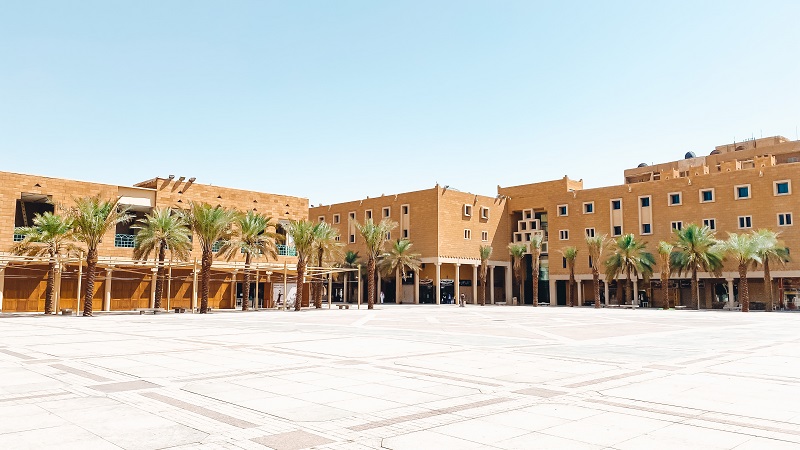
Day 5: Riyadh - Desert Safari - Sunset at the Edge of the World (or at the Camel Trail) - Riyadh
If you can afford one extra day in Riyadh and are up to some adventure, then book yourself a half-day desert safari tour. Such a tour will take you via a 4×4 car to Riyadh’s desert for unlimited fun while sandboarding, quad biking, and dune bashing!
As an alternative or even a combination of the abovementioned activity, head to either the Edge of the World (Jebel Fihrayn) or the Camel Trail. These are two of the best viewpoints of the Tuwaiq Mountain offering jaw-dropping views of the dunes, and ancient camel tracks of the Arabian Desert.
The Edge of the World is located approximately 90 kilometers (and 2 hours) away from Riyadh. It is basically a 300 meters high cliff overlooking the vast desert. Being here makes you literally feel like standing on the edge of the world! Whether you are going with your own vehicle or via a tour, you will need a 4×4 car, and good driving skills to avoid getting stuck in the sand. In the last years, and due to an accident of a person falling off the cliff, this particular site was shut down for safety reasons. At the time of our visit, it was not clear whether the Edge of the World was reopened or not. You’d better check with some local tour operators before heading there.
The best alternative to the Edge of the World (and 100% accessible) is the so-called Camel Trail . This site is way closer to Riyadh but still requires a 4×4 vehicle. The Camel Trail is a historical trail that was used by pilgrims that were making their way toward Makkah. What to expect here? Breathtaking views from the top of the mountain, of course, and the opportunity to descend down via the historic trail if you are up for some extra challenge.
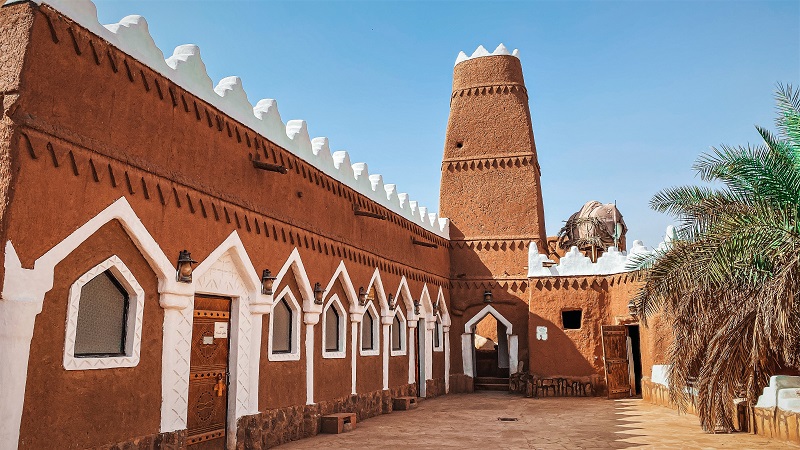
Day 6: Riyadh - Shaqra - Ushaiger Heritage Village - Buraydah (400 km / 5 hours)
Visitors to Saudi Arabia have the chance to learn about the Kingdom’s history and distinctive architecture by visiting one or more heritage villages that are scattered around the country. This is by far the ideal way to step back in time and see how everyday life in Saudi Arabia was some hundred years ago.
Those landing in Riyadh should, by all means, plan a full-day trip in the mud villages of Shaqra and Ushaiger , located less than 2.5h away from the Kingdom’s capital city. Most buildings remain in ruins, yet some others have been renovated by the owners themselves, in an effort to keep their heritage alive. While wandering around the narrow streets and winding alleyways, be on the lookout for any doors left open! These will give you access to the houses’ rooftops for unparalleled views over the surrounding oasis and farmlands.
My personal recommendation, and if you are following this suggested itinerary, is not to return back to Riyadh after visiting Shaqra and Ushaiger but to head towards Buraydah for your overnight.
Buraydah is the capital of Al Qassim province. Its strategic location in the heart of Saudi Arabia makes it an important connection hub for travelers moving between different regions in the country. Buraydah is called the city of dates for the production of high-quality dates, as well as the biggest date festival in the world.
Time permitting, you can make a quick visit to Buraydah Museum, Aloqilat Museum, and Al Musawkaf Market.
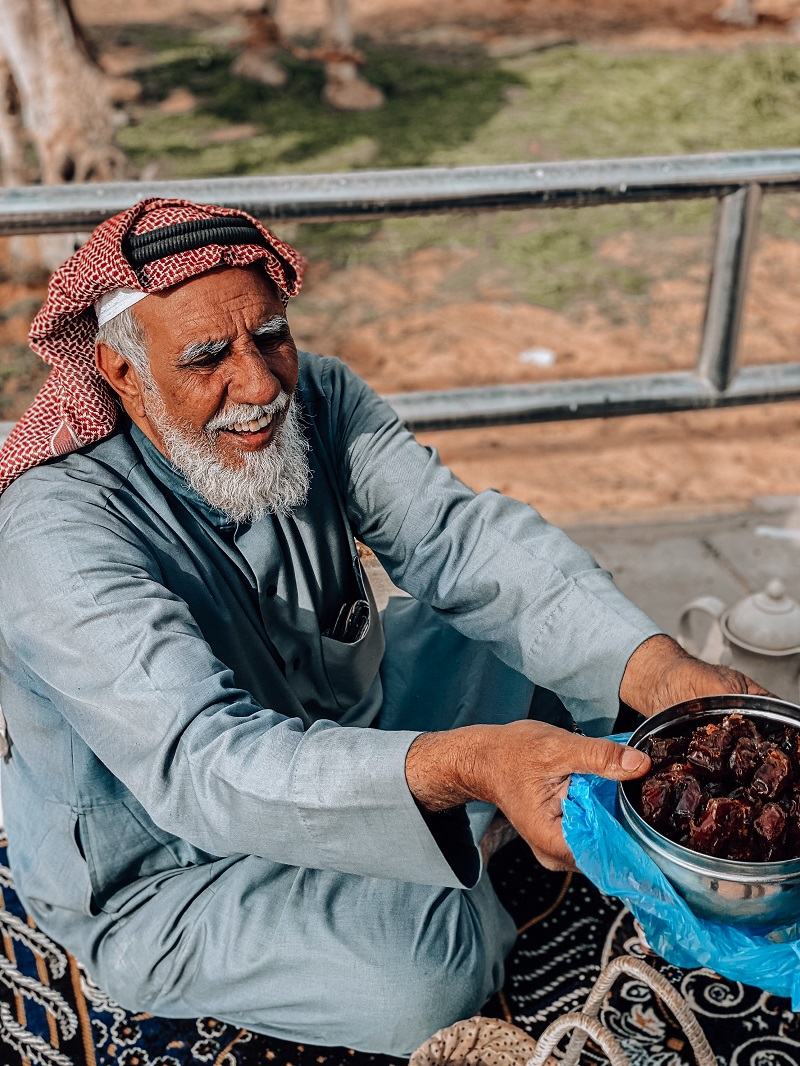
Day 7: Buraydah - Madinah (525 km / 6 hours)
Buraydah is also famous for the world’s largest camel market, the Al Qassim Camel Market which is located in short proximity to the city itself. For taking part in this very unique and truly Saudi experience, you will need to wake up early in the morning as the market comes into life already at 5-6 am.
Your next stop, over 500 km away, is the holy city of Madinah . Home to the Prophet’s Mosque (Masjid Al-Nabawi), which is one of the largest mosques in the world, and the second holiest after Masjid Al-Haraam in Makkah. The Prophet’s Mosque was built by Prophet Muhammed in the year 622 CE when he migrated to Madinah. A Green Dome marks the exact location of the “Sacred Chamber” where the Prophet’s real home and also his final resting place is.
The mosque alone is a grand spot of utmost grandeur. It stands out from a distance thanks to its sparkling white marble, the numerous minarets, and of course its dazzling green-colored dome. The courtyard of the mosque is covered with lots of giant umbrellas aiming to provide shade to the worshippers. Moreover, its floor has been renovated using Thassos Snow White marble, a high-quality material that reflects the sunlight and keeps a low temperature throughout the day. In this way, pilgrims can walk barefoot without feeling any heat. The exact same marble has been used in the Great Mosque of Makkah, surrounding the Holy Kaaba.
The Prophet’s Mosque, as well as the area in its vicinity, is known as Haram and is closed to non-Muslims. However, non-Muslims can visit the rest of the city and even stay here for the night.
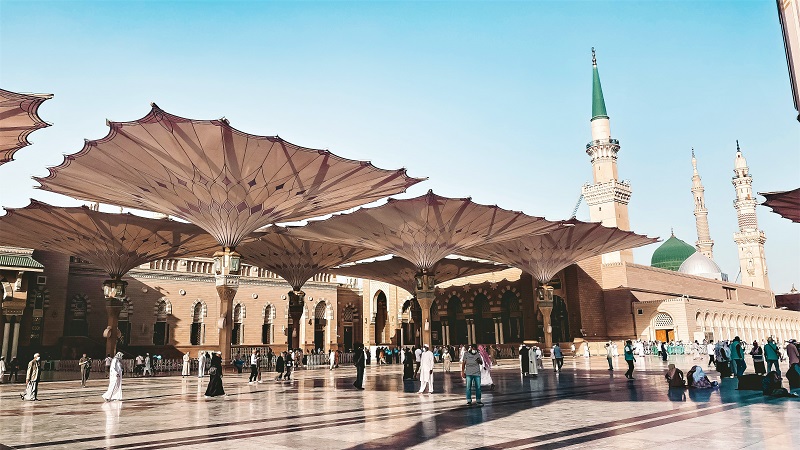
Day 8: Madinah - AlUla (340 km / 4 hours)
Another lengthy drive till you reach the spectacular AlUla. In addition to ruins of ancient civilizations, AlUla offers its visitors stunning natural landscapes from eroded mountains to desert oases and a lot more.
For your first day, I suggest you take it easy and head to one (or more) of the following unique locations:
- No ticket is needed to enter the site, while parking is complimentary for all visitors, as well.
- There are several food places on site, but they only open in the early afternoon. With that being said, afternoon visits ONLY can be combined with a light dinner (comfort food on offer, such as burgers, shawarmas, hot dogs, pancakes, etc.) while sitting around a bonfire.
- This site is ideal for night stargazing, so the most adventurous ones can also consider it as their camping spot!
- The Harrat Viewpoint: The Harrat Viewpoint is a lookout point and seating area at the top of the Harrat Uwayrid volcanic mountain. From here you can enjoy epic views over Dadan, AlUla Old Town, and AlUla Oasis, surrounded by majestic red mountains. The best time of the day to get up here is shortly before sunset so that you can get the best views of the sky’s orange glow, as the sun is disappearing into the horizon. Entrance to the site is free of charge, while parking is also complimentary for all visitors.
- The Maraya: The magnificent Maraya concert hall is not just a state-of-the-art construction, but also the world’s largest mirrored building! The name “Maraya” itself translates into exactly that: a “mirror” or a “reflection”. Maraya is a multi-purpose venue, housing concerts, annual festivals (such as the Winter Tantora festival), international events, and business conferences. Touristic visits are not allowed, so if you do not hold a ticket or invitation for an event or concert, your only chance to admire this amazing building is by making a reservation at the Maraya Social restaurant (open for dinner from Wednesday to Saturday).
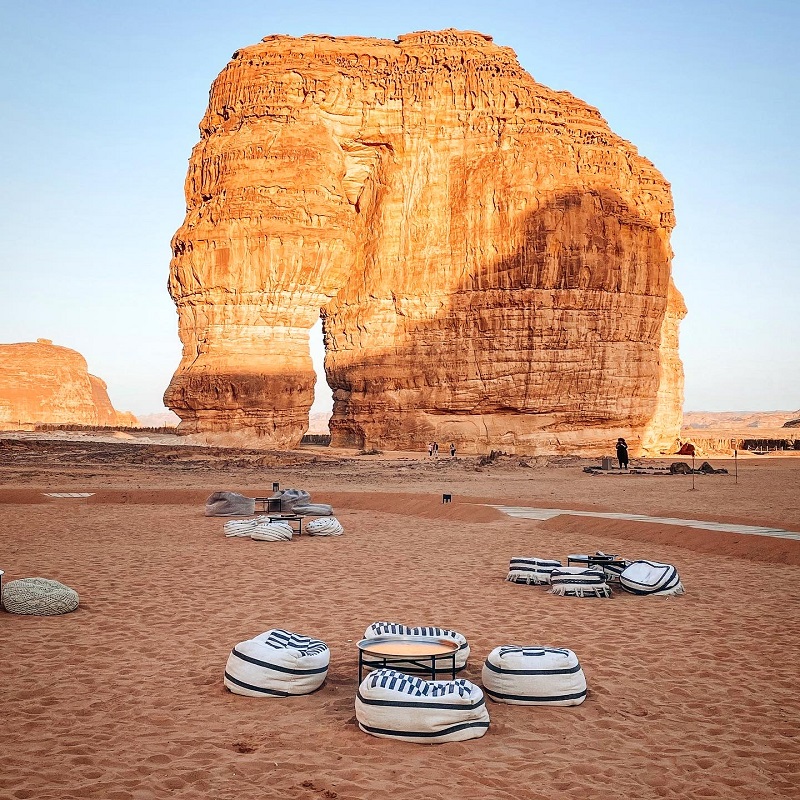
Days 9-10: AlUla
Ever since Saudi Arabia opened up to tourism, AlUla, hosting the first UNESCO World Heritage site in the country, was promoted as the #1 must-visit destination for international travelers.
To date, numerous archaeological sites have been identified in the broader area, while the excavation of even more is still ongoing. Amazingly, the very first inhabitants of the Arabian Peninsula carved a whole city out of rock in this very place. Madain Saleh (also known as Hegra) , was a principal city of the Nabataean Kingdom and served as its former capital, second only to Petra in Jordan.
What comes as a big surprise is that despite its historical significance, AlUla was deliberately neglected by locals for centuries. Reason being the clear statement made by Prophet Muhammed in the Quran that this place had been cursed by Allah and should be avoided by all means. To be more specific, Allah decided to punish the Thamud people, original inhabitants of the area, for their sins. As a consequence, the land of Thamud was severely hit by earthquakes, destroyed, and abandoned.
The Saudi government, in line with Saudi Arabia’s Vision 2030 program, urges people to start visiting AlUla. The efforts to revive AlUla’s past role as a thriving hub of trade and cultural exchange target at offering visitors a unique travel experience, including a combination of outdoor adventures, wellness, heritage, and entertainment.
What is very important to know is that independent visits to the various heritage sites are strictly forbidden. You will have to book your tours and experiences through the official Experience AlUla website and be accompanied at all times. Not only that, but you have to make your bookings well in advance, as there is a limitation on the daily slots. Check the instructions sent to you upon ticket reservation to have a clear understanding of:
- The exact pick-up location . For most tours and experiences, you will be picked up at the Winter Park. Yet, there are still a few tours and experiences that have set a different meeting point.
- The meeting time . You are usually prompted to be at the meeting location at a specific time – well before the official commencement of the tour. Make sure to respect the given timeframe.
- Avoid booking back-to-back tours . If there is a delay in the first one, you may easily miss the next one. I think that two tours per day are pretty sufficient.
It is worth looking at the map to understand the location of each site, as they are pretty much scattered around the broader area. Even if you will not be driving to the actual sites yourself, you will still need a car, a driver, or a taxi to drop you off and pick you up from meeting locations. Taxis are neither reliable nor on time when you need them, so you should not risk missing a tour just because of that.
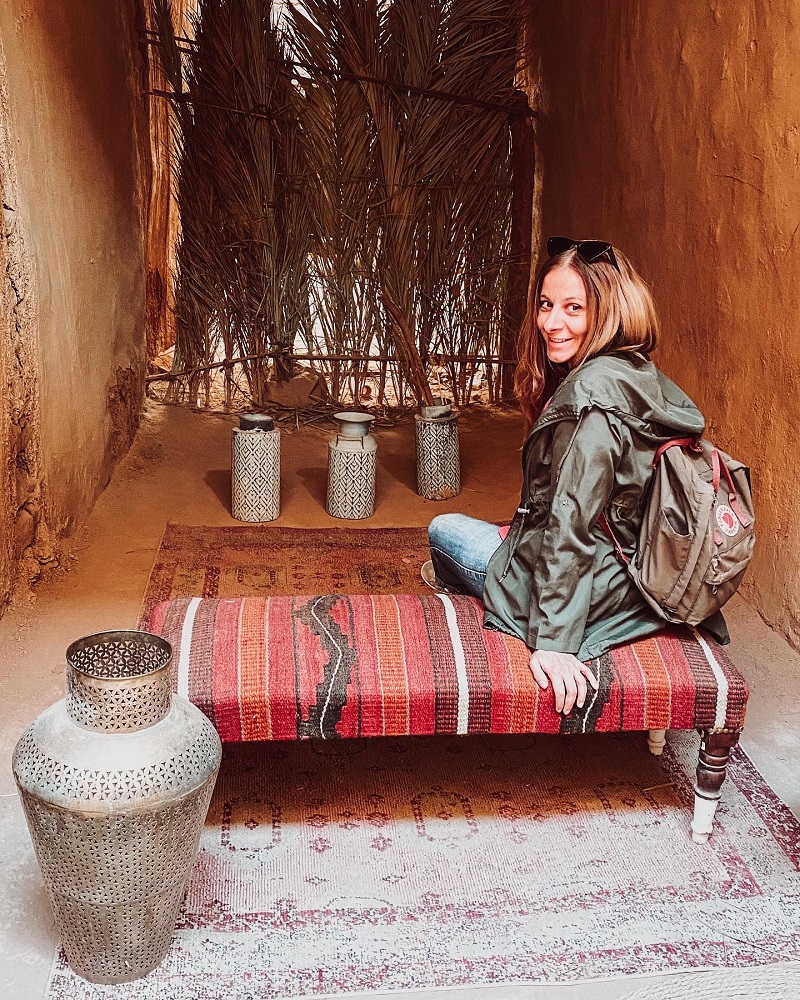
Day 11: AlUla - Jeddah (flight) OR Wadi Disah - Tabuk
- Option (1): If you don’t want to drive all the way to Jeddah (pretty meaningless as you will waste over 7 hours behind the wheel to cover the 700 km of distance), you can consider using a domestic flight instead. Al Ula is served by the Prince Abdul Majeed Bin Abdulaziz Domestic Airport, located 34 km away from the city center. The airport provides direct (but not that frequent) flights to both Jeddah and Riyadh. If you take this option, you can spend a lazy rest of the day at Silver Sands Beach nearby Jeddah.
- Head back to AlUla and get a flight to Jeddah
- Drive for another 3 hours to Tabuk and get a flight to Jeddah from there
Day 12: Tabuk - Jeddah - (departure flight)
I leave this day free of schedule so that you can better organize the logistics of your departure from the Kingdom.
Ready To Go?
On the most practical part, and while setting aside the itinerary itself, I totally urge you to also go through my previous post titled “The Ultimate Survival Guide For Travelling To Saudi Arabia” . Through this post, I am sharing with you essential information on the entry requirements, as well as the evolution of the tourism industry in the country from the past, through the present, to the future!
If you feel you cannot organize such a trip alone, then you can always join me on one of my future trips! As a point of reference, I will be posting my most up-to-date travel dates at the end of each blog post!
Join Me In Saudi Arabia
Next Travel Dates: 17-28 November 2022
« The Ultimate Survival Guide For Travelling To Saudi Arabia
The ultimate travel guide for syria | know before you go ».
GeographyPin
Your 12-day itinerary of Saudi Arabia is a treasure trove of cultural and scenic diversity! From the urban landscapes of Riyadh and Jeddah to the natural beauty of Abha and the historical wonders of Al-Ula, your guide covers it all. It’s fascinating to see how travel in Saudi Arabia, a country without permanent rivers, revolves around road trips, showcasing its vast and varied terrain. This guide is a brilliant resource for anyone wanting to explore the rich tapestry of experiences Saudi Arabia has to offer. Thank you for sharing your adventures and insights!
Real-Time Traveller
Happy you enjoyed reading my blog posts for Saudi! Hope my guide will turn out handy should you decide to plan this trip yourself! Cheers!
Leave a Comment Cancel reply
Your email address will not be published. Required fields are marked *
Save my name, email, and website in this browser for the next time I comment.
Follow Me @realtimetraveller

Copyright 2019 - Real-Time Traveller. All Rights Reserved.
Situation in Haiti April 5, 2024
U.s. citizens in haiti, update january 10, 2024, information for u.s. citizens in the middle east.
- Travel Advisories |
- Contact Us |
- MyTravelGov |
Find U.S. Embassies & Consulates
Travel.state.gov, congressional liaison, special issuance agency, u.s. passports, international travel, intercountry adoption, international parental child abduction, records and authentications, popular links, travel advisories, mytravelgov, stay connected, legal resources, legal information, info for u.s. law enforcement, replace or certify documents.
Before You Go
Learn About Your Destination
While Abroad
Emergencies
Share this page:
Saudi Arabia
Travel Advisory January 24, 2024
Saudi arabia - level 3: reconsider travel.
Updated after periodic review to provide information on the risk of arrest due to social media use and the importation of prohibited items.
Reconsider travel to Saudi Arabia due to the threat of missile and drone attacks. Exercise increased caution in Saudi Arabia due to terrorism, the risk of arrest based on social media activity, and importation of prohibited items. Some areas have increased risk. Read the entire Travel Advisory.
Do not travel to the following locations due to the threat of missile and drone attacks and terrorism :
- Within 50 miles of the Saudi-Yemen border, as well as the cities of Abha, Jizan, Najran, and Khamis Mushayt;
- Abha airport;
- Qatif in the Eastern Province and its suburbs, including Awamiyah.
Country Summary : U.S. government personnel under Chief of Mission responsibility must adhere to the above travel restrictions. As such, the U.S. government has limited ability to provide emergency services to U.S. citizens in these locations.
Missile and drone attacks perpetrated by Iran and Iran-supported militant groups have occurred as recently as September 2023. The Islamic Republic of Iran has in the past supplied Yemen-based Houthis and regional proxy groups with weapons to conduct destructive and sometimes lethal attacks using drones, missiles, and rockets against a variety of Saudi sites, including critical infrastructure, civilian airports, military bases, and energy facilities throughout the country, as well as vessels in Red Sea shipping lanes. Past attacks were aimed at targets throughout Saudi Arabia including Riyadh, Jeddah, Dhahran, Jizan, Khamis Mushayt, the civilian airport in Abha, Al Kharj, military installations in the south, as well as oil and gas facilities.
Debris from intercepted drones and missiles has also represented a significant risk to civilian areas and populations in the recent past. Militant groups have threatened to conduct attacks against locations in Saudi Arabia. U.S. citizens living and working near military bases and critical civilian infrastructure, particularly near the border with Yemen, are at heightened risk if missile, drone, or rocket attacks reoccur.
Terrorism continues to be a concern in Saudi Arabia. Attacks can occur with little or no warning. Past attacks have targeted tourist locations, large gatherings, transportation hubs, markets/shopping malls, and local government facilities. Terrorists are also known to time attacks around major holidays and/or in response to military operations. Terrorists have targeted both Saudi and international interests, mosques and other religious sites (both Sunni and Shia), and places frequented by U.S. citizens.
Be advised that social media commentary – including past comments – which Saudi authorities may deem critical, offensive, or disruptive to public order, could lead to arrest . This may include posting, re-posting, or liking comments about Saudi institutions, policies, and public life. U.S. citizens have been convicted for social media activity under Saudi laws concerning cybercrime, terrorism, and disrupting public order. Punishment for social media activity has included prison sentences of up to 45 years in some cases. Saudi courts do not necessarily consider the timeframe of the posts or the location from which they were made to be material to these cases.
The importation of drugs (including marijuana), drug paraphernalia, alcohol, weapons, pork, or any materials that could be considered pornographic or suggestive, is prohibited. Penalties for drug possession, consumption, and trafficking are severe by U.S. standards. An extensive list of banned items is available on our Saudi Arabia country information page .
Due to risks to civil aviation operating within the Persian Gulf and the Gulf of Oman region, including Saudi Arabia, the Federal Aviation Administration (FAA) has issued an advisory Notice to Air Missions (NOTAM). For more information U.S. citizens should consult the Federal Aviation Administration’s Prohibitions, Restrictions and Notices .
Read the country information page for additional information on travel to Saudi Arabia.
If you decide to travel to Saudi Arabia:
- Visit our website for information on travel to high-risk areas .
- Stay alert in large crowds and/or locations frequented by foreign nationals.
- Obtain comprehensive medical insurance that includes medical evacuation.
- Review local laws and conditions before traveling, including our Saudi Arabia country information on arrest notification and the Department of State’s general information on arrests of U.S. citizens abroad .
- Enroll in the Smart Traveler Enrollment Program ( STEP ) to receive Alerts and make it easier to locate you in an emergency.
- Follow the Department of State on Facebook and Twitter .
- Follow the U.S. Embassy in Saudi Arabia on Facebook and Twitter .
- Review the Country Security Report for Saudi Arabia.
- Visit the CDC page for the latest Travel Health Information related to your travel.
- Prepare a contingency plan for emergency situations. Review the Traveler’s Checklist .
Yemen Border, Abha airport, and Qatif in the Eastern Province and its suburbs, including Awamiyah – Level 4: Do Not Travel
Militants in Yemen have attacked Saudi border towns and other sites in Saudi Arabia with armed drones, missiles, and rockets . Civilians that are near the border with Yemen are especially at risk. Terrorist groups continue plotting possible attacks in Saudi Arabia, including in Qatif.
The U.S. government has limited ability to provide emergency services to U.S. citizens within 50 miles of the Saudi-Yemen border as U.S. government personnel and their families are restricted from travel to this area.
Visit our website for information on travel to high-risk areas
Embassy Messages
View Alerts and Messages Archive
Quick Facts
A valid passport is required for U.S. citizens to enter or exit the Kingdom of Saudi Arabia. A minimum of six months’ validity beyond the date of travel is recommended.
One page required for entry stamp.
Required for certain visa classes
More than 16,000 USD must be declared. Customs details are here .
Embassies and Consulates
The normal work week in Saudi Arabia is Sunday through Thursday.
U.S. Embassy Riyadh Abdullah Ibn Hudhafah As Sahmi Street Roundbaout no. 9, Diplomatic Quarter Riyadh, Saudi Arabia Telephone: (966) (11) 488-3800 Emergency Telephone: (966) (11) 488-3800 Fax: (966) (11) 488-7670 [email protected]
U.S. Consulate General Jeddah Al Safa Street, Al Muhammadiyah District, near the new American School building. Jeddah, Saudi Arabia Telephone: (966) (12) 220-5000 Fax: (966) (12) 220-5093 [email protected]
U.S. Consulate General Dhahran Off King Saud bin Abdulaziz Road, at the corner of Salaheddin al Ayoubi Street and Prince Fahd bin Sultan bin Abdulaziz Street, Dhahran, Saudi Arabia Telephone: (966) (13) 839-5700 Emergency Telephone: (966) (13) 839-5700 Fax: (966) (13) 330-6816 [email protected]
Destination Description
Learn about the U.S. relationship to countries around the world.
Entry, Exit and Visa Requirements
See the Embassy of Saudi Arabia’s website for visa information.
COVID-19 Requirements: There are no COVID-related entry requirements for U.S. citizens.
For residency permit-holders (iqama), an exit/reentry permit is required to leave Saudi Arabia as well as six month’s validity on your passport to request an exit/reentry permit.
- Saudi law requires that residency permit-holders carry their residency card (iqama) at all times while in the Kingdom. Failure to do so could result in a fine of 3,000 Saudi riyals and a jail sentence of six weeks.
- Females and minors may require a male guardian’s permission to leave the country, including U.S. citizens or dual-nationals.
- You must exit Saudi Arabia using the passport for the nationality corresponding to the one on which you entered Saudi Arabia.
Saudi law requires all Saudi citizens to enter and depart the country with a Saudi travel document. If you enter the country on a Saudi laissez-passer (temporary travel document), you may encounter difficulty leaving the Kingdom.
Saudi embassies do not have the authority to adjudicate citizenship claims or issue passports, but they may issue a laissez-passer for presumed Saudi citizens for whom citizenship has not been adjudicated, such as children of a Saudi parent or parents who were married outside of Saudi Arabia. Once admitted to Saudi Arabia on a laissez-passer, the traveler must obtain a Saudi passport before leaving the country. Saudi nationality is not conferred quickly or easily, and the processing time for a Saudi passport in these cases has often been six months or years in some cases. Obtaining a U.S. passport will not help, as you will not be able to leave Saudi Arabia without an exit visa which will not be granted if you entered as a Saudi citizen.
The Department strongly recommends that U.S. citizens enter Saudi Arabia on a U.S. passport and Saudi visa, and not a laissez-passer.
Length of Stay: Bearers of tourist visas are generally admitted for a 90-day stay and may not remain in the Kingdom more than 180 days in a twelve month period. Carefully check your visa validity and length of stay granted, and clarify any questions on permitted length of stay with Saudi immigration officials on arrival. Dates are calculated in accordance with the Hijri calendar, which differs from the Gregorian calendar.
If you overstay your visa, you could face significant fines, detention, and/or deportation, and a ban from returning to Saudi Arabia.
The U.S. Embassy is unable to intercede, reduce fines, or prevent incarceration if you violate Saudi law.
Travel Bans: When placed under a travel ban, you cannot exit the country, even if you are a U.S. citizen or a dual U.S.-Saudi citizen. Travel bans are rigidly enforced and can take months or even years to resolve. Only Saudi Arabian authorities and sponsors can remove travel bans.
The government may issue travel bans on people who are/have:
- charged with criminal offenses;
- under investigation;
- involved in financial or labor disputes;
- failed to report to work according to the terms of the contract (absconded);
- unpaid debts or who have passed bad checks.
The list above is not exhaustive. Private Saudi citizens may also initiate travel bans against foreign citizens for various reasons.
Residency Permits: If you are seeking residency in Saudi Arabia, make sure you have all required legal documents authenticated before arriving. Neither the U.S. Embassy in Riyadh nor the U.S. Consulates General in Jeddah or Dhahran can provide this service.
You should have all U.S. issued documents authenticated by the Department of State Office of Authentications (202-485-8000) and attested by the Embassy of Saudi Arabia in Washington D.C.
Work Visas: If you plan on working in Saudi Arabia, you must obtain a work visa before you arrive. Foreigners working in Saudi Arabia are subject to the country’s sponsorship system, which concedes substantial legal authority over the worker to the employer. This can include the ability to prevent the employee from leaving the country. American citizens considering working in Saudi Arabia should carefully review the information about employment in the “Local Laws and Special Circumstances” section below.
If the visitor or business visa has been annotated “not permitted to work,” you are not allowed to legally work in Saudi Arabia. You risk substantial financial penalties, detention, deportation, and a ban from returning to Saudi Arabia if you work without legal permission. Additionally, without a work visa, there would be no legal grounds to pursue a case against an employer should a dispute arise.
HIV/AIDS: To obtain work and residence permits, you are required to obtain a medical report or physical examination confirming that you are free from contagious diseases, including HIV/AIDS and hepatitis. If you test positive for HIV/AIDS or hepatitis, you will not be allowed to work in the Kingdom. Saudi Arabia has not imposed HIV/AIDS or hepatitis travel restrictions on other categories of travelers. Please inquire directly with the Embassy of Saudi Arabia before you travel.
Vaccinations: Visitors to Saudi Arabia should check vaccination requirements on the Saudi Ministry of Health website.
Yemen Travel: The Department strongly advises U.S. citizens against travel to Yemen due to the ongoing conflict in that country. See our Yemen Travel Advisory for further information. A visa is required to enter Saudi Arabia, and Saudi authorities generally do not permit foreign citizens to enter Saudi Arabia using land border crossings from Yemen. The Embassy and Consulates General cannot provide assistance to U.S. citizens seeking to cross the Yemeni-Saudi border.
Safety and Security
The Department of State advises you to exercise increased caution when traveling to Saudi Arabia due to terrorism and the threat of missile and drone attacks on civilian targets. See the Travel Advisory for Saudi Arabia here .
Do not travel:
- Within 50 miles of the border with Yemen due to terrorism and armed conflict.
Terrorist groups continue plotting possible attacks in Saudi Arabia. Terrorists may attack with little or no warning, targeting tourist locations, transportation hubs, markets/shopping malls, and local government facilities. Terrorists have targeted both Saudi and Western government interests, mosques and other religious sites (both Sunni and Shia), and places frequented by U.S. citizens and other Westerners.
Houthis operating in Yemen have fired long-range missiles into Saudi Arabia, specifically targeting populated areas and civilian infrastructure; they have publicly stated their intent to continue doing so. Missile attacks have targeted major cities such as Riyadh and Jeddah, Riyadh’s international airport, Saudi Aramco facilities, and vessels in Red Sea shipping lanes. Rebel groups are also in possession of unmanned aerial systems (UASs or drones) which they have used to target civilian infrastructure and military facilities in Saudi Arabia. U.S. citizens living and working on or near such installations, particularly in areas near the border with Yemen, are at heightened risk of missile and drone attack.
On October 11, 2018 the Saudi General Authority for Civil Aviation issued a Notice to Airmen about threats to civil aviation and airports in Saudi Arabia posed by missiles and UASs launched from Yemen. For more information, U.S. citizens should consult the U.S. Government’s Defense Internet NOTAM Service (Type “OEJD” in the search field, then click “View NOTAMs,” then scroll down to W0438/18 and click to view).
The U.S. government has limited ability to provide emergency services to U.S. citizens in the following locations as U.S. government personnel and their families are restricted from travel to:
- Within 50 miles of the Saudi-Yemen border, including the cities of Jizan and Najran;
- Qatif in the Eastern province and its suburbs, including Awamiyah.
You can find additional details relating to safety and security in our Travel Advisory and Alerts and the website of the U.S. Mission in Saudi Arabia .
Crime: Crime in Saudi Arabia has increased over recent years but remains at levels far below most major metropolitan areas in the United States.
- You should be aware of your surroundings, keep valuables out of sight and secure, and travel with a companion, if possible.
- Some Saudi citizens who perceive that a foreigner is not observing conservative standards of conduct or dress have been known to harass, pursue, or assault that person.
- Even when released from detention, witnesses to criminal incidents may be prohibited from leaving the country until investigation of the incident is complete.
See the websites of the Department of State and the FBI for information on scams.
Victims of Crime: If you or someone you know becomes the victim of a crime, you should contact the local police at “999” and contact the Embassy in Riyadh or one of the Consulates in Jeddah or Dhahran.Remember that local authorities are responsible for investigating and prosecuting the crime.
See the Department of State’s webpage on help for U.S. victims of crime overseas .
The Department can:
- help you identify appropriate medical care;
- assist you in reporting a crime to the police;
- contact relatives or friends with your written consent;
- explain the local criminal justice process in general terms;
- provide a list of local attorneys;
- provide information on victim’s compensation programs in the U.S. ;
- provide an emergency loan for repatriation to the United States and/or limited medical support in cases of destitution;
- help you find accommodation and arrange flights home;
- replace a stolen or lost passport.
Domestic Violence: If you are the victim of any form of physical violence, including domestic violence, you should contact the Saudi police by calling “999”. In addition, victims of domestic violence can contact the Saudi National Domestic Violence Hotline by dialing “1919.” The Saudi Ministry of Labor and Social Development runs a network of shelters for women and children. Contacting the domestic violence hotline (“1919”) is the only way to access these shelters. The Saudi National Family Safety Program also runs a Child Help Line “116111” and can assist children in accessing Saudi social services.
When reporting domestic violence, it is imperative to get a case reference number as all Saudi social and legal assistance is tied to this case number. It is also a good idea to document any injuries and obtain a copy of any medical reports. U.S. citizens should be advised that filing a police report or utilizing any Saudi victims’ assistance services may result in the Saudi authorities informing your sponsor or guardian.
U.S. citizen victims of domestic violence may contact the Embassy or Consulates for assistance.
Tourism: The tourism industry is unevenly regulated, and safety inspections for equipment and facilities do not commonly occur. Hazardous areas/activities are not always identified with appropriate signage, and staff may not be trained or certified either by the host government or by recognized authorities in the field. In the event of an injury, appropriate medical treatment is typically available only in/near major cities. First responders are generally unable to access areas outside of major cities and to provide urgent medical treatment. U.S. citizens are encouraged to purchase medical evacuation insurance. See our webpage for more information on insurance providers for overseas coverage .
Local Laws & Special Circumstances
Dual Citizenship: Saudi Arabia generally does not recognize dual nationality. Saudi law requires Saudi citizens to obtain official permission from the government before obtaining a second nationality. At times, Saudi authorities have confiscated the passports of U.S. citizens applying for Saudi citizenship. This does not constitute loss of U.S. citizenship. If this happens to you or someone you know, report the incident to the U.S. Embassy.
Arrest Notification: If you are arrested or detained, ask police or prison officials to notify the U.S. Embassy or consulate immediately. Be aware that Saudi Arabia generally restricts consular notification of the arrest of foreigners to the Embassy of the country that issued the travel document used to enter the Kingdom. If you enter Saudi Arabia with a Saudi travel document, or with the passport of a country other than the United States, it will be extremely difficult for the U.S. Embassy to provide consular services if you are subsequently detained. Persons detained in Saudi Arabia may be held without charges for lengthy periods and denied access to counsel; dual citizens may not have consular assistance. See the Embassy’s webpage for further information.
Drones: The importation of drones for commercial or personal use is prohibited without prior approval from the General Authority for Civil Aviation (GACA). A customs clearance certificate authorizing importation can be obtained as part of the GACA approval process. Visit GACA’s website for further information.
Criminal Penalties: While in Saudi Arabia, you are subject to local laws. If you violate Saudi laws, even unknowingly, you may be expelled; arrested; imprisoned; held without trial for lengthy periods of time; interrogated without counsel; subject to corporal punishments, including lashings; or executed.
Penalties for the import, manufacture, possession, and consumption of alcohol or illegal drugs in Saudi Arabia are severe. Convicted offenders can expect long jail sentences, heavy fines, public floggings, and deportation. The penalty for drug trafficking is death. Furthermore, some laws are prosecutable in the United States regardless of local law. For examples, see our webpage on crimes against minors abroad and the Department of Justice website .
There are substantial limitations on freedom of speech and political expression in Saudi Arabia. For additional information see the Department of State’s Human Rights Report for Saudi Arabia .
Faith-Related Travel Issues: Islam is the official religion of the country and is present in all aspects of life in Saudi Arabia. See our Hajj and Umrah Fact Sheet .
- Saudi authorities do not permit criticism of Islam or Muslim religious figures, including on social media.
- The government prohibits the public practice of religions other than Islam. Non-Muslims suspected of violating these restrictions have been jailed and/or deported. Church services in private homes have been raided, and participants have been jailed and/or deported.
- Muslims who do not adhere to the strict interpretation of Islam prevalent in much of Saudi Arabia may encounter societal discrimination and constraints on public worship.
- Public display of non-Islamic religious articles, such as crosses and Bibles, is not permitted.
- Non-Muslims are forbidden to travel to Mecca and parts of Medina, the cities where two of Islam’s holiest mosques are located.
- See the Department of State’s International Religious Freedom Report .
LGBTI Travelers: Same-sex sexual relations, even when consensual, are criminalized in Saudi Arabia. Violations of Saudi laws governing perceived expressions of, or support for, same-sex sexual relations, including on social media, may be subject to severe punishment. Potential penalties include fines, jail time, or death. See our LGBTI Travel Information page and section 6 of the Department of State's Human Rights report for further details.
Travelers Who Require Accessibility Assistance: Individuals with disabilities may find accessibility and accommodation very different from what is generally found in the United States. Saudi law does not prohibit discrimination against people with disabilities, and there is no legislation requiring public accessibility. Newer commercial and government buildings, however, often include such access. According to the Ministry of Labor and Social Development, there are numerous government-sponsored centers for people with disabilities. Note that Saudi Arabia has limited infrastructure to care for those with mental disabilities.
Students: See the Department’s Students Abroad page and FBI travel tips .
Women Residents and Travelers: Married women, including non-Saudis, require their husband's permission to depart the country, while unmarried women and children require the permission of their father or male guardian.
Minor children must have their father’s permission in order to leave the Kingdom. Children visiting their fathers in Saudi Arabia, even when there is a custody agreement, can be prevented from leaving unless the father consents. This is true even if the child is an American citizen. The U.S. Embassy and Consulates cannot obtain exit visas for the departure of minor children without their father/guardian's permission.
If a foreigner and a Saudi living in Saudi Arabia divorce, Saudi courts rarely grant permission for the foreign parent to leave the country with the children born during the marriage, even if he or she has been granted physical custody.
Foreign mothers of Saudi children, who are divorced or widowed, may apply for a permanent residency permit(iqama) without the need for a sponsor. To do so, they must prove maternity and that they were legally married to the Saudi father.
Also see the Department’s travel tips for Women Travelers .
Employment: The Arabic text of a contract governs employment and business arrangements under Saudi law. Verbal assurances or side letters are not binding under Saudi law. In the event of any contract dispute, Saudi authorities refer to the written contract.
- Sponsors have wide latitude and responsibilities for employees and family members under their sponsorship, including obtaining residence permits for the employee and for any family members.
- All residents should be issued a Saudi residence permit (iqama) and are legally required to carry it at all times.
- The U.S. Embassy and Consulates General in Saudi Arabia cannot sponsor private U.S. citizens for Saudi visas.
- Sponsors have been known to demand that residents working in Saudi Arabia surrender their passports while in the Kingdom. Such practices are illegal and should be reported to the Ministry of Labor and Social Development .
- Since the Saudi sponsor controls the issuance of exit permits, U.S. citizens may be prevented by the sponsor from leaving Saudi Arabia in the event of a labor or business dispute, which could take months or years to resolve.
- To change employers within the Kingdom, Saudi Arabia requires the written permission of the original sponsoring employer.
- The U.S. Embassy and U.S. Consulates General cannot assist in labor or business disputes, nor can they provide translation or legal services.
- U.S. consular officers can provide lists of local attorneys to help U.S. citizens settle business disputes, but ultimate responsibility for the resolution of disputes through the Saudi legal system, and payment for those services, lies with the parties involved. For additional information on Saudi labor law, please refer to the Ministry of Labor and Social Development’s webpage .
- Saudi customs authorities enforce strict regulations concerning the importation of such banned items as alcohol, weapons, and any item that is held to be contrary to the tenets of Islam (such as pork, anything considered pornographic under strict Islamic principles, and religious materials).
- Imported and domestic audiovisual media and reading matter are censored.
- Christmas and other holiday decorations, fashion magazines, and "suggestive" videos may be confiscated and the owner subject to penalties and fines.
- Electronic devices may be subject to inspection upon entry or exit. Please see the Department’s Customs Information page as well as the Saudi Customs webpage.
Importing Animals: The Saudi Ministry of Agriculture must approve all pets imported into Saudi Arabia.
- Cats and dogs entering Saudi Arabia require a Veterinary Health Certificate and a dated letter from the veterinary practitioner addressed to his/her sponsor to obtain the necessary approval from the Ministry of Agriculture.
- Both documents must be authenticated by the Department of Agriculture Veterinary Service Office and the State Department's Authentications Office and attested by the Embassy of Saudi Arabia .
- The certificate must indicate that the animal was examined and is free from disease and confirm that rabies and other vaccines are current. Information on the name, breed, sex, color, and age of the animal must also be stated.
- Please see additional information on taking a pet overseas .
Teaching English in Saudi Arabia: In recent years, increasing numbers of American language teachers have experienced contractual and other problems. Some teachers have complained about arbitrary dismissals, difficult living conditions, salary arrears, unwanted reassignments, restrictions on their movement, and inability to leave the country. Prospective teachers in Saudi Arabia should vet their potential employer and carefully review their employment offer as well as the detailed information found in the Embassy’s Guide to Teaching English in Saudi Arabia . Additionally, prospective teachers should also take care to make sure that they obtain the appropriate work visa prior to coming to Saudi Arabia. The Embassy cannot help you if you violate Saudi labor law.
Standards of Conduct and Religious Police: Norms for public behavior in Saudi Arabia are extremely conservative. Both the uniformed police and the religious police, referred to colloquially as the mutawwa or al-hay’a, are charged with enforcing these standards.
- Mutawwa are required to carry special identification and usually are accompanied by uniformed police.
- While a 2016 government decree withdrew the authority of the mutawwa to make arrests independently of regular police forces, visitors should be prudent in their interactions with mutawwa.
- An individual must, if requested, present his/her residence permit (iqama) or other identification to the mutawwa or the police.
- U.S. citizens who are involved in an incident with the mutawwa should report the incident to the U.S. Embassy in Riyadh or the U.S. Consulates General in Jeddah or Dhahran.
In most areas of Saudi Arabia, and particularly in Riyadh and the central part of the Kingdom, women wear a full-length covering known as an abaya. Most women in conservative areas also cover their hair with a hijab for modesty, and many also cover their faces with a niqab.
Tourists are expected to dress modestly in public, avoiding tight fitting clothing or clothes with profane language or images; women are not required to wear abayas or cover their hair but are expected to cover their shoulders and knees, and men should not go without a shirt. Women who choose not to conform to Saudi Arabia’s dress code face a risk of confrontation by mutawwa, negative or hostile comments by Saudi citizens, and possible detention Guidelines on public decorum for tourists are available at the Saudi government’s official tourism website, www.visitsaudi.com. Many areas of life in Saudi Arabia are segregated by sex to ensure that unrelated men and women have no possibility of mingling (a punishable crime) by unmarried men and women. Less frequently, members of the mutawwa try to enforce this by asking for proof that a couple is married or related. Men and women detained for socializing with individuals who are not relatives may be charged with moral crimes such as khulwa (mixing with unrelated members of the opposite sex). Less frequently, some restaurants may refuse to serve women who are not accompanied by a close male relative In addition, a few restaurants or cafes do not have a "family section" in which women are permitted to eat. Men not accompanied by a close female family member are not allowed to enter family sections and cannot use services (such as registers at supermarkets) designated as “family.” These restrictions are not always clearly posted.
While there are now movie theaters, musical concerts, and artistic performances in Saudi Arabia, the country remains socially conservative. Social media postings which contravene cultural standards can have legal and/or criminal consequences.
Photography: The Saudi government does not permit photography of governmental facilities, such as military bases and government buildings, nor military, security, or police personnel. The Saudi government is also sensitive to photographs that may be perceived as portraying the country in an unfavorable light. This policy can include photos of mosques, impoverished areas, the local population, and traditional souks (markets). You should not take anyone’s picture without clear consent, and never take a picture of a woman or a place where women congregate. Be aware of local sensitivities whenever you are taking pictures in public. U.S. citizens have been routinely detained for violating these policies. The U.S. Embassy and Consulates General are unable to intervene if you violate Saudi law.
The Hajj and Umrah: Please review the Department of State’s Hajj and Umrah Fact Sheet for useful information on traveling to perform the Hajj or Umrah.
COVID-19 Testing: COVID-19 testing is available to U.S. citizens throughout Saudi Arabia at public and private facilities. Private hospitals and clinics charge a fee for COVID-19 testing. Cost, delivery method, and timing of results varies. Some facilities can electronically deliver results within 24 hours or less.
COVID-19 Vaccines: The COVID-19 vaccine is available for U.S. citizens to receive in Saudi Arabia. For more information, please see the Ministry of Health’s website.
Visit the FDA's website to learn more about FDA-approved vaccines in the United States.
Medical care varies greatly in quality, and high-profile cases of medical malpractice and errors have occurred. Consult your regular physician if you are considering serious medical treatment in Saudi Arabia.
The U.S. Embassy and U.S. Consulates General do not pay medical bills. Be aware that U.S. Medicare does not apply overseas.
Medical Insurance: Make sure your health insurance plan provides coverage overseas. Most care providers in Saudi Arabia accept cash or credit card payments. See the Department’s webpage for more information on insurance providers for overseas coverage . Supplemental insurance to cover medical evacuation is strongly recommended. If you are covered by Saudi insurance, be sure to read the fine print: local insurance can have exclusions that are unusual in the United States. For example, some local policies may not supply coverage for accidents that occur while engaging in adventure sports, such as riding quad vehicles in the desert, that are a common past-time for expatriates.
If traveling with prescription medication, check with the government of Saudi Arabia to ensure the medication is legal in Saudi Arabia. Always carry your prescription medication in original packaging, along with your doctor’s prescription.
Please note:
- Saudi Arabia has a dry climate with extreme heat several months of the year – travelers should stay hydrated.
- Air pollution is a significant concern in many parts of Saudi Arabia including Riyadh, Al Jubail, Jeddah, and Dammam.
- Many infectious diseases, such as measles, typhoid, dengue, and Middle East Respiratory Syndrome (MERS), are present in Saudi Arabia.
Be up-to-date on all vaccinations recommended by the U.S. Centers for Disease Control and Prevention.
For further health information, go to:
- World Health Organization (WHO)
- U.S. Centers for Disease Control and Prevention (CDC)
- Saudi Ministry of Health
Medical care varies greatly in quality, and high profile cases of medical malpractice and errors have occurred. Consult your regular physician if you are considering serious medical treatment in Saudi Arabia.
We do not pay medical bills. Be aware that U.S. Medicare does not apply overseas.
Medical Insurance: Make sure your health insurance plan provides coverage overseas. Most care providers overseas only accept cash payments. See our webpage for more information on insurance providers for overseas coverage . We strongly recommend supplemental insurance to cover medical evacuation. If you are covered by Saudi insurance, be sure to read the fine print: local insurance can have exclusions that are unusual in the United States. For example, some local policies may not supply coverage for accidents that occur while engaging in adventure sports, such as riding quad vehicles in the desert, that are a common past-time for expats.
Always carry your prescription medication in original packaging, along with your doctor’s prescription.
If traveling with prescription medication, check with the government of Saudi Arabia to ensure the medication is legal in Saudi Arabia. Always carry your prescription medication in original packaging, along with your doctor’s prescription.
For health-related information on the Middle East respiratory syndrome coronavirus (MERS-CoV), formerly called “novel coronavirus,” visit the CDC’s MERS-CoV webpage .
Be up-to-date on all vaccinations recommended by the U.S. Centers for Disease Control and Prevention.
- World Health Organization
- U.S. Centers for Disease Control and Prevention (CDC)
Travel and Transportation
Road Conditions and Safety: Driving in Saudi Arabia can be hazardous due to speeding and aggressive driving, lax enforcement of traffic regulations, and a high volume of traffic.
Beginning on June 24, 2018, women have been able to obtain a driver’s license and can legally drive in Saudi Arabia. With a valid visitor visa and U.S. or international driver’s license, visitors may drive a rental car. However, outside the major cities of Riyadh, Dhahran and Jeddah, visitors—especially women—may experience difficulty renting a car. Female residents with independent sponsorships and U.S. or international driver’s licenses also may obtain a Saudi driver’s license, necessary to drive vehicles other than rental cars. Foreign women residing in Saudi Arabia who are listed as dependents on their Saudi residency permit (“iqama”) may experience difficulties in obtaining Saudi driver’s licenses. To drive vehicles other than rental cars, a Saudi driver’s license, appropriate car registration, and auto insurance are required. Police may detain you if you cannot produce these documents.
See the Saudi Arabian Ministry of Interior website for further information.
Traffic Laws :
- Temporary visitors may drive using their valid U.S. or international driver's license for up to 90 days.
- Foreigners resident in Saudi Arabia who wish to drive must obtain a local driver's license from the Department of Traffic Police.
- In the event of a traffic accident, U.S. citizens should dial “993” to report the accident. You must remain on the scene until the traffic police arrive. Failure to do so can result in a criminal offense.
- Additionally, U.S. citizens should contact Najm, a private company contracted by the traffic police to complete the accident report (+966 9200 00560).
- In the event of a traffic accident resulting in personal injury, everyone involved (if not seriously injured) is likely be taken to the local police station.
- All drivers, regardless of fault, can be held in custody for several days until responsibility is determined and any reparations paid.
- Use of front seat belts (driver and passenger) is required by law.
- U.S. citizens involved in a serious accident resulting in injury or death should immediately contact their sponsors and the U.S. Embassy or nearest U.S. Consulate.
- Residents should update their personal details through one of the methods available here to receive SMS notifications once a traffic ticket is issued.
- Delay in payment of any ticket might result in doubling of the ticket amount.
- Travelers will need to pay any fines issued through this system before leaving the country.
Public Transportation:
- U.S. Government employees are prohibited from using taxis in Saudi Arabia with the exception of Uber Black in Riyadh, Kareem First in Jeddah, and Majestic taxi service in Dhahran. If you must use a taxi, only use established companies, such as those offering cabs with meters. Taxis and lift services are available throughout major cities, and you should arrange a pickup by telephone or via smartphone app when possible.
- Avoid sitting in the front seat of a taxi, do not travel to unfamiliar areas, and do not enter taxis with unknown passengers.
Please refer to the Department’s Road Safety page for more information. Also, it is recommended that you visit the website of the Saudi Arabian Ministry of Interior .
Aviation Safety Oversight: The U.S. Federal Aviation Administration (FAA) has assessed the Government of Saudi Arabia's Civil Aviation Authority as being in compliance with International Civil Aviation Organization aviation safety standards for oversight of Saudi Arabia's air carrier operations. Further information may be found on the FAA safety assessment page .
Information for Mariners:
Mariners should also review U.S. maritime alerts and advisories on the Maritime Security Communications with Industry Web Portal .
For additional travel information
- Enroll in the Smart Traveler Enrollment Program (STEP) to receive security messages and make it easier to locate you in an emergency.
- Call us in Washington, D.C. at 1-888-407-4747 (toll-free in the United States and Canada) or 1-202-501-4444 (from all other countries) from 8:00 a.m. to 8:00 p.m., Eastern Standard Time, Monday through Friday (except U.S. federal holidays).
- See the State Department’s travel website for the Worldwide Caution and Travel Advisories .
- Follow us on Twitter and Facebook .
- See traveling safely abroad for useful travel tips.
Review information about International Parental Child Abduction in Saudi Arabia . For additional IPCA-related information, please see the International Child Abduction Prevention and Return Act ( ICAPRA ) report.
Travel Advisory Levels
Assistance for u.s. citizens, saudi arabia map, learn about your destination, enroll in step.

Subscribe to get up-to-date safety and security information and help us reach you in an emergency abroad.
Recommended Web Browsers: Microsoft Edge or Google Chrome.
Check passport expiration dates carefully for all travelers! Children’s passports are issued for 5 years, adult passports for 10 years.
Afghanistan
Antigua and Barbuda
Bonaire, Sint Eustatius, and Saba
Bosnia and Herzegovina
British Virgin Islands
Burkina Faso
Burma (Myanmar)
Cayman Islands
Central African Republic
Cote d Ivoire
Curaçao
Czech Republic
Democratic Republic of the Congo
Dominican Republic
El Salvador
Equatorial Guinea
Eswatini (Swaziland)
Falkland Islands
France (includes Monaco)
French Guiana
French Polynesia
French West Indies
Guadeloupe, Martinique, Saint Martin, and Saint Barthélemy (French West Indies)
Guinea-Bissau
Isle of Man
Israel, The West Bank and Gaza
Liechtenstein
Marshall Islands
Netherlands
New Caledonia
New Zealand
North Korea (Democratic People's Republic of Korea)
Papua New Guinea
Philippines
Republic of North Macedonia
Republic of the Congo
Saint Kitts and Nevis
Saint Lucia
Saint Vincent and the Grenadines
Sao Tome and Principe
Sierra Leone
Sint Maarten
Solomon Islands
South Africa
South Korea
South Sudan
Switzerland
The Bahamas
Timor-Leste
Trinidad and Tobago
Turkmenistan
Turks and Caicos Islands
United Arab Emirates
United Kingdom
Vatican City (Holy See)
External Link
You are about to leave travel.state.gov for an external website that is not maintained by the U.S. Department of State.
Links to external websites are provided as a convenience and should not be construed as an endorsement by the U.S. Department of State of the views or products contained therein. If you wish to remain on travel.state.gov, click the "cancel" message.
You are about to visit:
Deals of the Week Green Hikes & Treks Up to 50% OFF
Budget Tours & Trips to Saudi Arabia
Discover a varied offer of Saudi Arabia budget adventures that will take you through some of the most renowned destinations such as Riyadh and Jeddah. Each affordable tour will provide you with great experiences for some of the lowest prices on the market.
11 cheap Saudi Arabia tour packages with 14 reviews
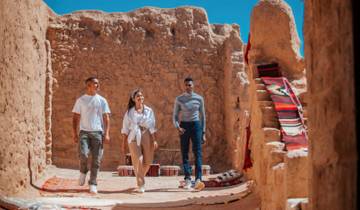
- Christmas & New Year
Highlights of Saudi Arabia - Escorted Tour in 4* Hotels Bed and Breakfast Plan
This trip was great. Al Ula is definitely the highlight. It will be great to go back when Jeddah's old town is restored to full glory. All guides/drivers made an excellent job. Highly recommended!
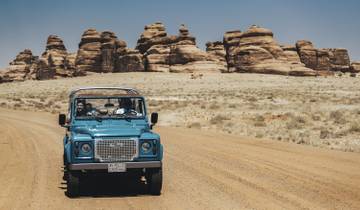
- In-depth Cultural
Saudi Arabia: The Complete - Escorted Tour in 3 or 4* Hotels
Very uncomfortable small bus did not have enough room for our 9 guests, 3 translators, guide and driver, even on excursions where we only brought day-bags (rather than entire luggage); uncomfortable seats and NOT ENOUGH LEG ROOM for taller non-local Westerners, worthless torn cloth blinds on the windows that could not be securely open or closed. Each of our 3 translators (who also served as guides for the tour overall) was GREAT! Consistently helpful, capable and personable; very positive attitudes and considerate individuals: 5+ stars for them! Local guides were also consistently great, although there was an ugly scene between our Jeddah(?) guide and our driver, leading to a verbal argument and the guide stomping off the bus.
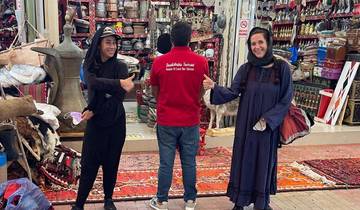
All Of Saudi Arabia – 14 Days Tour Package
It was a wonderful experience with him as he was experienced, knowledgeable about Egyptian history culture and heritage, humorous English speaking guide. Never felt bored with him. we would love to go back again.
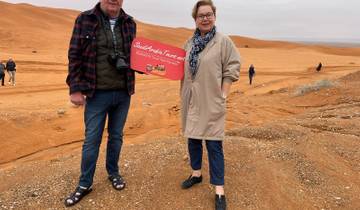
5 Days Riyadh, Jeddah and Abha
This was my first time doing Saudi Arabia and it was truly a phenomenal experience. I thought Mohamed was an amazing Tour guide and the itinerary encompassed everything I was looking for in visiting Saudi Arabia
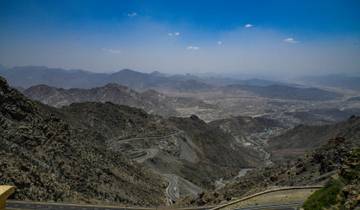
On The Traces of History - Self Drive Tour
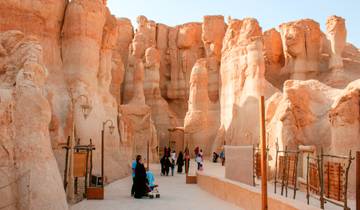
Crossing Saudi Arabia - Self Drive Tour
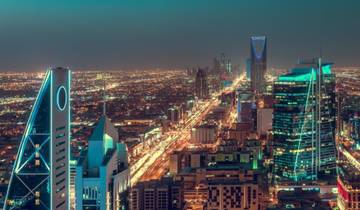
Saudi Arabia - A Full Tour Self Drive Tour
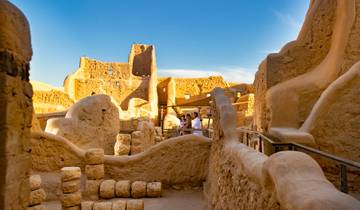
Ultimate Riyadh City Package in 3, 4 or 5* Hotels
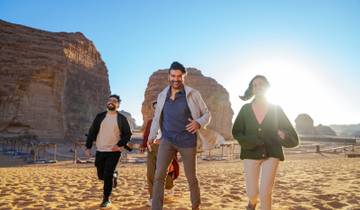
South to North – The Complete Self Drive Tour
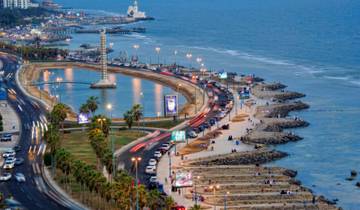
Ultimate Jeddah City Package in 3, 4 or 5* Hotels
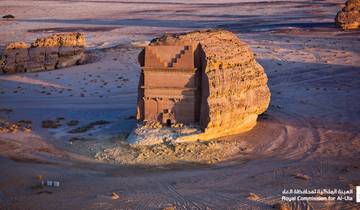
Riyadh , Madain Saleh & Jeddah Tour Package - 7 Days
We enjoyed our tour of Saudi Arabia . We visited many interesting sights in the country. We also appreciated how safe the country is. There is very little Covid-19 and almost no crime in Saudi Arabia. Everything was well organized and went smoothly. Rokaiai, our contact for the tour was well-organized and helpful. She quickly answered all my many questions. The single most impressive thing about the country was the Saudi people. They were very friendly and helpful. We were often greeted with “Welcome to our country.” and “Thank you for coming” They all said they were happy to see Americans. On one occasion we asked a Saudi man on the street if he knew where we could find a restaurant for lunch. He said there was nothing in the area but he offered to drive us to a restaurant himself. Our tour took us to three locations: Riyadh, Al Uma, and Jeddah. Each had its charms. Riyadh has impressive modern skyscrapers, mosques, museums, and forts. Jeddah also has modern buildings but also a wonderful historic district and a nice corniche on the Red Sea. Al Uma has ancient tombs, rock art, and and writing. Al Uma also has beautiful rock formations. It was our favorite place. The three hotels we stayed in were comfortable and included a nice breakfast. Our three guide/ drivers (Adnan, Sultan, and Mohammad) were all good, but Mohammad in Jeddah stood out. He was the only one I would actually call a guide. He was very professional and full of interesting information about the country. For example he personally led us through a museum for two hours explaining everything we saw.
Travel Styles
- Small Group (4)
- Singles and Solo (45)
- For Couples (18)
- Seniors (8)
- Private (6)
- 7 Day Tours (5)
- April 2024 (11)
- May 2024 (10)
- June 2024 (9)
- July 2024 (8)
- August 2024 (8)
- September 2024 (9)
- October 2024 (9)
- November 2024 (9)
- December 2024 (9)
- January 2025 (1)
- February 2025 (1)
- March 2025 (1)
- April 2025 (1)
Saudi Arabia Tours starting in
- Starting in Riyadh (7)
- Saudi Arabia Travel Guide | All You Need to Know
International Versions
- Deutsch: Günstige Reisen in Saudi Arabien
- Français: Circuits et voyages économiques en Arabie saoudite
- Español: Circuitos baratos por Arabia Saudí
- Nederlands: Saoedi-Arabië Budget Reizen in Saoedi-Arabië
Saudiarabiasands.com
Saudi Arabia Travel Brochure
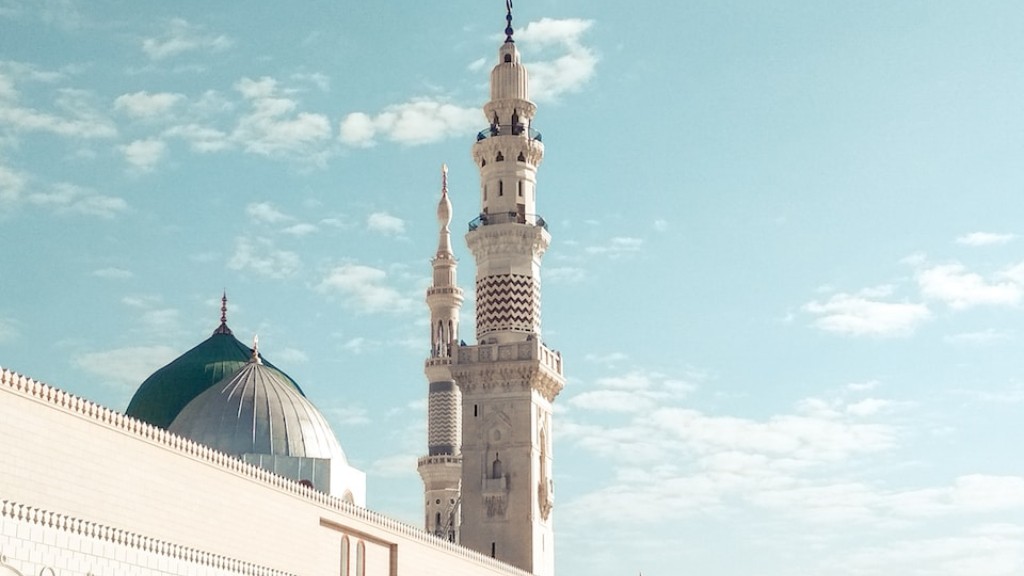
Saudi Arabia: Land of Cultural Heritage and Beauty
Saudi Arabia has become a favored destination for people from all over the world because of its stunning landscapes, ancient monuments, and unique culture. Described as the “Heritage Land” and a “Living Museum”, Saudi Arabia has countless archaeological sites that are rich with historical significance and natural beauty. With beautiful cities like Riyadh, Jeddah, and Taif, and natural wonders like the Red Sea and Desert, Saudi Arabia has something for everyone. One of the most captivating parts of Saudi Arabia’s culture is the traditional architecture. From ancient castles and mosques to its colorful markets and windswept dunes, Saudi Arabia is a nation of vast beauty and history. Saudi Arabia has a multitude of forts, such as the Qasr al-Hayr Fortress and Qasr Masmaki Fort, which provide an unforgettable experience of the country’s past. Other breathtaking sights include the remarkable Red Sea coral reefs, which draw divers from all over the world. For those interested in learning more about Saudi Arabia’s intriguing culture, the cities of Riyadh and Jeddah both offer a wealth of cultural riches. Riyadh holds several annual festivals, such as the Riyadh International Festival of Music, Art, and Culture, and the Riyadh International Art Show, all of which feature a range of traditional Saudi Arabian arts and crafts. Jeddah, on the other hand, is home to Saudi Arabia’s oldest university, King Abdulaziz University, and also hosts the renowned Jeddah Festival which showcases a range of performances, exhibitions, and films. Beyond these major cities, Saudi Arabia is also home to a number of natural wonders that are sure to enthrall even the most experienced globetrotter. From the arid plains of the Empty Quarter to the lush oases of the Al-Baha Province, Saudi Arabia has an endless array of terrains to explore. As well as its diverse wildlife, Saudi Arabia is also home to a generous array of breathtaking mountain ranges, such as the Hejaz Mountains in the west and the Tuwaiq Mountains in the east.
Gastronomic Delights
Travelers to Saudi Arabia will also be delighted by the array of regional cuisines on offer. From the traditional Arab dishes, such as Lamb Kebab and meat stew, to the intricate pastries and desserts that Saudis are known for, the country is sure to provide plenty of culinary adventure. What’s more, Arab coffee, which has been passed down through generations, is an integral part of the culture and far more enjoyable than many of its Western counterparts.
activities to Enjoy
For those seeking more energetic activities, Saudi Arabia has some excellent opportunities for adventure. From camel trekking and beach volleyball to desert kite boarding and skiing in the mountains, the opportunities are seemingly endless. For the more daring amongst you, Saudi Arabia even offers the chance to drive along the Rub Al Khali desert, the world’s largest uninterrupted sand desert.
Shopping and Entertaining
Shopping for antiques and traditional souvenirs are also popular activities when in Saudi Arabia. The Souk Okaz market, located in Ta’if, is the most well-known for its range traditional items, along with some of the best bargains in the country. Meanwhile, visitors can also get their hands on some tantalizing local delicacies in the market’s food stalls. As far as entertainment goes, there is no shortage of traditional music and art in Saudi Arabia. Myriad genres of music are performed in numerous forms throughout the country, such as the musical poetry of the ‘Naḥḥās’ or the cultural dance ‘Sab’a’. Further, there are plenty of cinemas in Saudi Arabia, showing both mainstream Hollywood movies and local films.
Accommodations and Transport
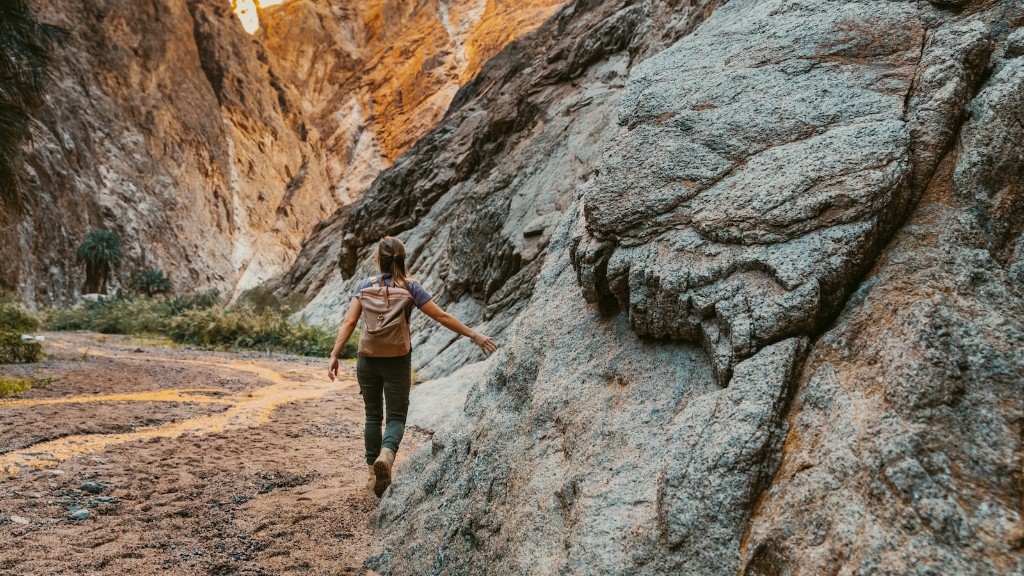
Those looking to stay longer in Saudi Arabia need not worry, as the country offers a good selection of five-star hotels and other accommodations. The country is also equipped with excellent transportation infrastructure, with well-established high-speed rail and highway networks that transport travelers between cities. For more remote locations, there is also an abundance of car rental services available.
Safety and Visas
When it comes to safety and security, Saudi Arabia is one of the most secure countries in the world. The government and local authorities have taken a firm stance on crime, as well as providing support for visitors in distress. As for visas, they are required for most nationalities when entering Saudi Arabia. Those planning to visit the country should apply for their visa in advance.
Respect for Culture
Finally, it is important to note that Saudi Arabia is an incredibly tolerant country with a deep respect for its own culture. Visitors should respect the country’s laws and cultural sensitivities, including dressing modestly in public. Otherwise, Saudi Arabia is incredibly welcoming to foreigners and a wonderfully rewarding destination to explore.

Jose Richard
Jose M. Richard is a journalist and author based in Riyadh, Saudi Arabia. With over a decade of experience in journalism, Jose has written extensively on Saudi Arabia and the wider Middle East region. Jose is passionate about promoting understanding of the region and its people, and his work has been recognised with international awards.
Leave a Comment Cancel reply
Official websites use .gov A .gov website belongs to an official government organization in the United States.
Secure .gov websites use HTTPS A lock ( A locked padlock ) or https:// means you’ve safely connected to the .gov website. Share sensitive information only on official, secure websites.
- Search ITA Search
- Market Overview
- Market Challenges
- Market Opportunities
- Market Entry Strategy
- Defense & Security
- Oil Gas & Petrochemicals
- Information and Communications Technology
- Waste Management
- Travel, Tourism, and Entertainment
- Agricultural Sector
- Trade Barriers
- Import Tariffs
- Import Requirements and Documentation
- Labeling/Marking Requirements
- U.S. Export Controls
- Temporary Entry
- Prohibited and Restricted Imports
- Standards for Trade
- Licensing Requirements for Professional Services
- Trade Agreements
- Distribution and Sales Channels
- Selling Factors and Techniques
- Protecting Intellectual Property
- Trade Financing
- Selling to the Public Sector
- Business Travel
- Investment Climate Statement
Travel, Tourism, and Entertainment is a priority sector under Saudi Arabia’s Vision 2030 economic diversification initiative. The Saudi Arabian government aims to increase domestic household spending related to entertainment and leisure activities, and to transform the country into a major global travel destination.
The entertainment sector perhaps more than any other reflects the remarkable transformation of Saudi Arabia during the past six years. In 2018, the government ended the 30-year ban on cinemas. By April 2022, there were 56 movie theaters in Saudi Arabia that had presented more than 1,144 films, and the inaugural edition of the Red Sea International Film Festival featured 138 films and shorts from 67 countries in 34 languages. Saudi Arabia has established a Media City in Riyadh in order to create a multiservice media ecosystem to support and enable content and talent creation.
The progressive opening of the entertainment sector has spurred an ambitious construction pipeline of movie theatres, theme parks, live mega events, and sports-related infrastructure. The Public Investment Fund (PIF) of Saudi Arabia has been investing heavily in entertainment companies in recent years. Some of the companies that PIF has invested in include Activision Blizzard, Electronic Arts, Take-Two Interactive Software and Live Nation. Moreover, the tremendous success of Saudi Seasons – an annual series of festivals across cities offering pop concerts, car races, pop-up restaurants, auto shows, and other entertainment programs – indicates the pent-up demand in this sector. The General Entertainment Authority has pledged to invest up to $64 billion by 2028 to develop Saudi Arabia’s domestic entertainment sector.
The entertainment sector has achieved impressive growth over the past six years: the General Entertainment Authority (GEA) issued a total of 11,400 licenses and permits for the entertainment sector that drew over 120 million attendees through the end of 2022. In addition, this sector saw the creation of more than 100,000 jobs, and more than 1,000 companies are working in this sector.
On the tourism front, Saudi Arabia plans to welcome over 100 million visitors annually by 2030. To this end, it has implemented numerous initiatives including an e-visa system for citizens of 57 countries, the opening of its UNESCO World Heritage sites, the construction of resorts on its Red Sea coast, and the launch of a cruise line. In October 2021 the Ministry of Tourism announced a $1trn investment package for the sector over the next 10 years. The Ministry also stated that it would actively work with private sector investors to capitalize on new growth opportunities over the coming years as tourism enters a post-COVID pandemic rebound phase.
Saudi Arabia is making billions of dollars in investments in sports teams, infrastructure, and events at home and abroad, from football to golf to Formula 1 to video games. The Kingdom’s sports strategy, implemented primarily by the Public Investment Fund, is a key pillar of the Vision 2030 program to diversify the economy and transform the country’s social structure.
Key Players in this Sector
- Ministry of Tourism
- Saudi Tourism Authority: The official promoter of Visit Saudi, this government entity was established to support the growth of the travel and tourism sector by serving the needs of tourism companies and other commercial partners.
- Tourism Development Fund: This fund is responsible for attracting and supporting investments and providing the support to incentivize development of the tourism ecosystem.
- General Entertainment Authority: This government entity’s mandate is to develop the entertainment sector and its infrastructure.
- Saudi Entertainment Ventures: The entity is the implementation and investment arm of the Public Investment Fund dedicated to the entertainment sector.
- General Commission for Audiovisual Media: This commission is tasked with the development, regulation, and supervision of audio-visual media transmission and content within the country.
- Ministry of Culture and Culture Commissions: This ministry is focused on developing Saudi Arabia’s visual arts, performing arts, film and music.
- Ministry of Sport: This ministry is responsible for sports in Saudi Arabia. It was previously known as the General Sports Authority.
- Saudi Convention & Exhibition General Authority: This authority is concerned with developing the exhibitions and conferences industry to make Saudi an international center for exhibitions.
Leading Sub-Sectors
Religious Tourism
Currently religious tourism remains the largest economic contributor in the tourism sector. To increase the benefits that stem from religious pilgrimages, the government aims to increase its capacity to accommodate more Hajj and Umrah visitors – from approximately 10 million visitors per year in 2019 to over 30 million by 2030. This is expected to increase the demand for hotels and other tourist services in Mecca and Medina.
Resort Destinations
The Red Sea Project aims to be a world-class tourism destination offering pristine beaches, leisure and entertainment amenities, natural reserve of marine life, and dormant volcanoes and mountains. Three hotels will open by the end of 2023, followed by another 13 hotels next year. Once completed, the Red Sea Project will have about 50 hotels, with more than 8,000 hotel rooms. The project is in a special economic zone, with its own legislative and regulatory system, strategic location, and streamlined visa requirements to ensure the destination is inviting to travelers throughout the year, who are expected to reach one million a year by 2035. Also called the Riviera of the Middle East, Amaala is an ultra-luxury tourism destination located on the northwestern coast of Saudi Arabia. Focused on art, wellness, and lifestyle, Amaala will be a destination for the connoisseurs of fine living, targeting the world’s top 2.5 million ultra-high net worth travelers. Spread over an area of 3,800 square kilometers, upon completion it will have 2,500 luxury hotel rooms, 700 residential villas and apartments, and a golf course. The Sindalah luxury resort island at NEOM is scheduled to open its first hotel to guests in early 2024.
Cultural Heritage Sites
The city of Al Ula, home to Saudi Arabia’s first UNESCO World Heritage Site, is located in the northwestern region of the country and features historical and cultural assets such as Mada’in Saleh, the second largest Nabatean heritage site after Jordan’s Petra. The Saudi government is transforming the city into a cultural, eco-tourism destination that is expected to offer various recreational activities including sightseeing, hiking, camping and other desert-friendly sports and festivals. Closer to Riyadh, the historic city of Diriyah showcases Saudi Arabia’s 300-plus years of culture and history by delivering one-of-a-kind, inspiring heritage experiences, educational and cultural opportunities, world-class residential living, and outstanding lifestyle offerings to include shopping, entertainment, and dining experiences. At the heart of the development is the At-Turaif UNESCO World Heritage Site, an iconic mud-brick city, and the home of the First House of the Al Saud family and capital of the First Saudi State, preserved and restored for future generations. Diriyah will offer 20 luxury hotels, over one hundred cafes and restaurants, eight museums and galleries, a golf course, and a racetrack.
Entertainment and Sports Venues
Qiddiya is planned to be the world’s largest entertainment city, almost three times bigger than Walt Disney World. It will feature over 300 leisure and entertainment facilities, including a 20,000-seat clifftop stadium, motorsports facilities, the world’s largest Six Flags theme park, a world-class waterpark, golf courses, cinemas, and a performing arts theatre. Qiddiya aims to attract over 14 million visitors per year.
The Jeddah Central Project, formerly called New Jeddah Downtown aims to create a world-class destination at the heart of the city. The development will include a state-of-the-art oceanarium, an opera house and a sports stadium, alongside more than 17,000 residential units, 2,700 hotel rooms, a marina, a beach and several green spaces.
At four times the size of New York City’s Central Park, King Salman Park in Riyadh is envisioned as the “Green Heart” of Riyadh and the largest urban park in the world. It will include residential compounds, hotels, retail space, an arts complex, theatres, museums, cinemas, sports venues, water features, restaurants, and an 18-hole golf course.
The Sports Boulevard in Riyadh will stretch 135 kilometers from end-to-end and feature green pedestrian pathways, cycling lanes, horse-riding tracks, arts centers, museums, studios, libraries, conference halls, and indoor sports facilities.
Investment opportunities in stadium development, sports, football and games solutions are expected to increase, creating more opportunities for private and foreign partnerships. Saudi Arabia aims to create and host world class sporting events, attracting globally respected sporting brands, championships and events to Saudi Arabia. It has hosted the Diriyah ePrix, the PGA European Tour, the WWE Crown Jewel, the Clash on the Dunes Boxing Heavyweight Title Fight, the Saudi Cup Horse Race, and the Saudi Formula 1 Grand Prix.
Saudi Arabia’s billion-dollar gaming industry is expected to double in the next three years. Saudi Arabia has 23.5 million gaming enthusiasts, or 67 percent of the total population. Gaming consumption is expected to grow from $959 million in 2020 to $6.8 billion in 2030. The Public Investment Fund has acquired more than $3 billion-worth of stock in U.S. video game makers Activision Blizzard, Electronic Arts, and Take-Two Interactive Software.
Opportunities
- Workforce talent development across all travel, tourism, food & beverage, and entertainment sectors
- Consulting, master planning, management, production and concept design of family entertainment centers, theme parks, water parks, aquariums, museums, car racing tracks
- Hotel build, infrastructure, technology and consultancy services
- Hotel equipment, furniture, restaurant and kitchen equipment, bathroom accessories
- Spa and fitness equipment, water sports equipment, specialized equipment for remote (off-grid) lodging
- Facilities management
- Destination management companies; tour packaging services especially in niche segments
- Hospitality franchise, concession development and operations
- Major branded attractions, events, exhibitions, and live shows
- Integrated solutions for the cinema industry and film production, broadcasting, digitization, content development, audiovisual and acoustics equipment, studio engineering and management, and talent procurement (actors, models and performers)
- Stadium development, sports fields, and other sports venues
- Education in design and development of gaming software and applications
- Saudi Tourism Authority
- Tourism Development Fund
- General Entertainment Authority
- Saudi Entertainment Ventures
- General Commission for Audiovisual Media
- Ministry of Culture and Culture Commissions
- Ministry of Sport
- Saudi Convention & Exhibition General Authority
- The Hotel Show Saudi Arabia
- Arabian Travel Market
- Saudi Entertainment and Amusement Expo
- Saudi International Media & Broadcast Expo
For more information, contact [email protected] .

Christian Travel for the Intrepid Berean
The Biblical Destination Experts
- 7 Churches of Revelation
- Israel & Jordan
- Saudi Arabia
- Petra & Jordan with Arabia
- South Africa Safaris
- Europe Reformation
- Custom Individual Travel
- Christian Singles Travel
- Red Sea & Arabia
- Footsteps of Paul
- Seven Churches of Revelation
- Joel Richardson
- Frank Turek
- Eli Shukron
- Steve Cioccolanti
- Dr. Miles Jones
- Dr. Yohannes Zeleke
- Available Travel Itineraries
- Christian Travel Blog
- Christian Travel Brochures
- Custom Group Tours
- Red Sea Scuba Diving & Snorkeling
- Saudi eVisa Requirements
- Safety, Cancel for Any Reason Insurance
- Learn of the Exodus
- Testimonials
Our Travel Assurance
Frequently Asked Questions
Traveler Testimonials
SAUDI ARABIA TOURS
Explore the ancient land of Midian, the Split Rock of Horeb, and Jabal al-Lawz - the real Mount Sinai.
The foundational narrative of the Exodus in the Old Testament contains some of the most vital and momentous accounts in Christian history.
The quest to uncover the archeological and geological evidence of Israel's liberation from Egypt, mountain-top revelations, and ensuing desert wanderings have captured the hearts and minds of some of history’s most brilliant scholars and explorers.
Cartographers, archeologists, scientists, adventurers, historians and disciples of all backgrounds have sought out the genuine locations as depicted in the ancient scriptures.
Finally – with the advent of state-of-the-art technology and the ever-increasing political stability of the region – the Northwest corner of Arabia has begun to divulge its secrets.
Partake in exclusive access to historical sites in the land of Midian, while exploring recent findings and evidences with remarkable teachers.
Survey Midyan, known by locals to be the home land of Jethro (the prophet named Shu’ayb). Examine the Split Rock of Horeb at Jabal Maqla, and the Jabal al-Lawz mountain (also known as Jebel al-Lawz) - with its summit ascertained to be the real Mount Sinai descended upon by God.
No Covid injections or vaccinations are required for you to travel to Saudi Arabia. No PCR tests are required for you to travel to Saudi Arabia. No threat of quarantine for you to travel to Saudi Arabia.
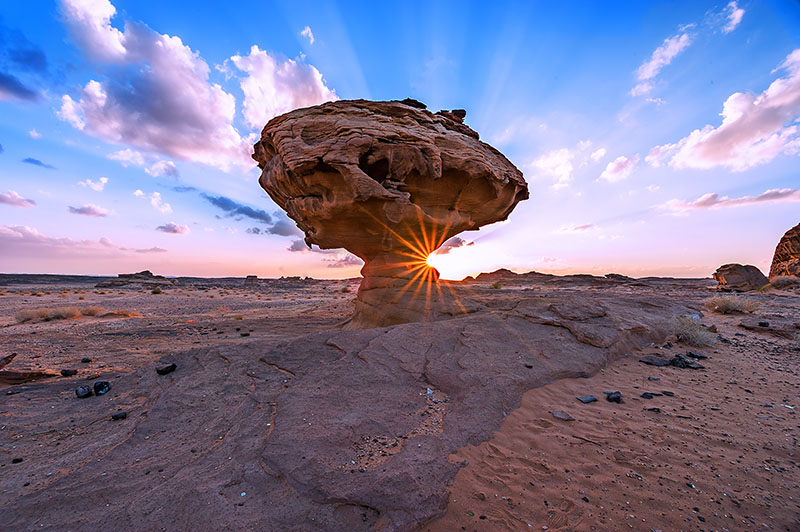
ADVENTURE EXCURSION IN ARABIA OVERNIGHT AT THE JABAL AL-LAWZ!
Looking to take a more adventurous route in the wilderness? Our Saudi Arabia Adventure Extensions offer an alternative path designed for more active tour participants!
Living Passages adventure excursion options highlight Moses’ time in the land of Midian and the Exodus crossing sites. Explore the real Mount Sinai by hiking and camping along the same route Moses may have taken.
Partake in classic fellowship and learning at the main sites throughout the tour but with extra activities added in as desired! If you enjoy an activity level that is different from your spouse or travel companion, you can select different activities. Choose the adventure that’s perfect for you! The overnight includes a special breakfast, dinner, and one climbing guide for 3-5 climbers (per guide).
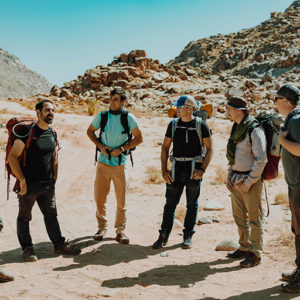
Hiking & Climbing
- Hike to Elijah’s Cave & the 70 Elders' Plateau.
- Climb to the blackened peak of Jabel al-Lawz.
- Overnight camping on the summit plateau of Jabel al-Lawz.
Diving & Snorkeling
- Explore the beautiful Red Sea by diving or snorkeling.
- Dive at the mouth of Wadi Tayyib which leads to the Nuweiba crossing.
- Dive and explore the Straits of Tiran near Egypt.
Available Tours of Saudi Arabia:
Saudi arabia and petra jordan 2024 | mount sinai in arabia with the mysteries of petra’s exodus secrets | joel richardson.

Israel, Saudi Arabia & Jordan 2024 | Archaeological & Bible Study | Tim Remington & Eli Shukron

Saudi Arabia 2024 | Mount Sinai in Arabia Expedition | Joel Richardson
Saudi arabia 2024 | archaeological evidence discovery tour of saudi arabia’s exodus route | dr. tommy colie & pam laurion.

Egypt & Saudi Arabia 2024 | Biblical Egypt Study Expedition with Saudi Arabia and Mount Sinai | Dr. Frank Turek

Saudi Arabia 2025 | Exodus Route | Dr. Miles Jones & Monte Judah

Available Cruises of Saudi Arabia:
Exodus 2025 | red sea biblical yacht cruise | joel richardson & eli shukron, saudi arabia, egypt, & jordan 2025 | biblical exodus route red sea cruise & tour | dr. miles jones & monte judah, featured travel destinations.
Learn more about the sites and locations you can visit and explore on our Saudi Arabia tours!
Al-Bad' is a small town in north-west Saudi Arabia destination located between Jabal al-Lawz and the Gulf of Aqaba on the Red Sea. It is famous for the Caves of Jethro (Magha'ir Shu'ayb), who is thought to me the father-in-law of Moses.
MADAIN SALEH / AL HIJIR
Mada'in Saleh is a UNESCO World Heritage Site on the Nabatean trade route of Hegra located in northwest Saudi Arabia near Al-'Ula. It is famous for the Nabatean tombs and kingdom remains at Al-Hijir, similar to Petra in size and preservation quality.
SPLIT ROCK OF HOREB
The Split Rock of Horeb is a massive stone found near Jabal al-Lawz and is theorized to be the rock Moses struck from which water flowed out for the thirsty Israelite people.
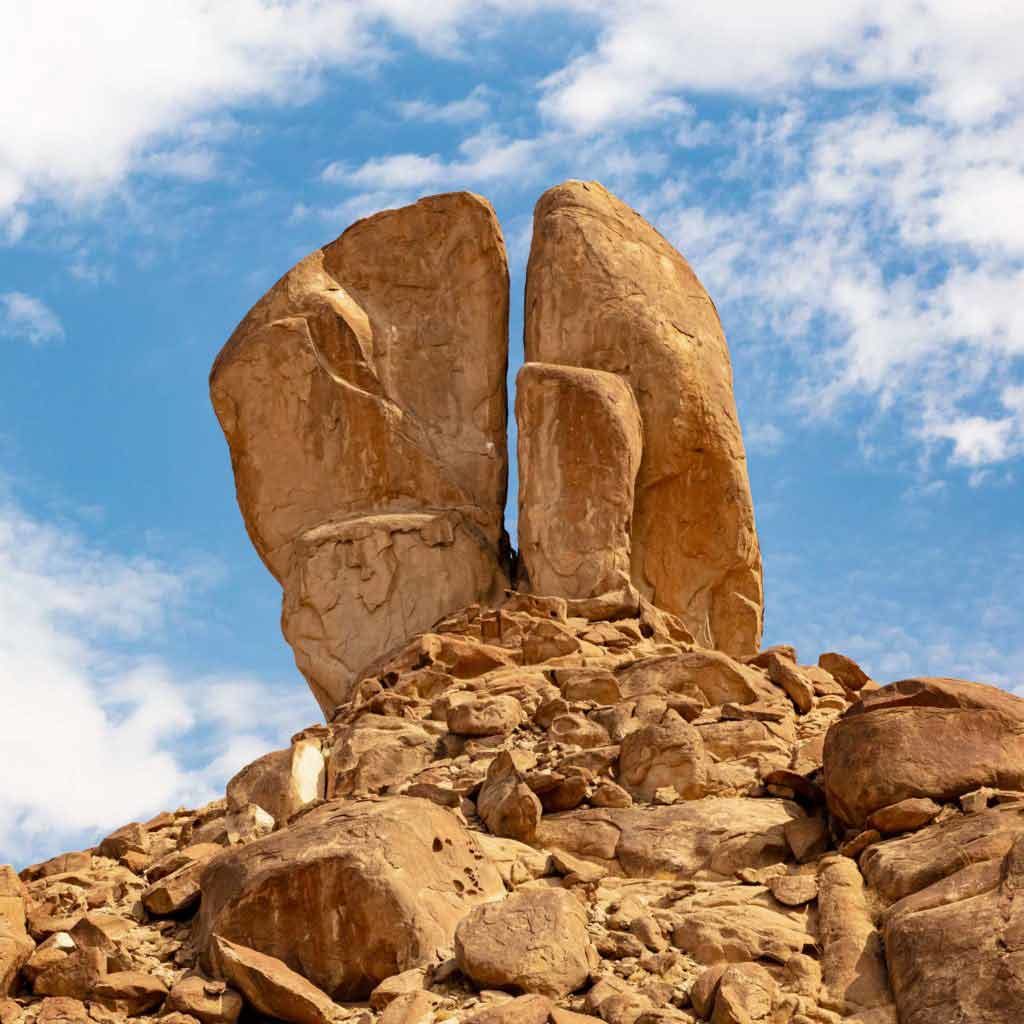
Al-Ula is a north-western Arabian city located between Tayma and Medina. It is famous for the Nabatean ruins and borders the famous site of Madain Saleh. The country of Saudi Arabia is busy building an entire tourism base around the compact area.
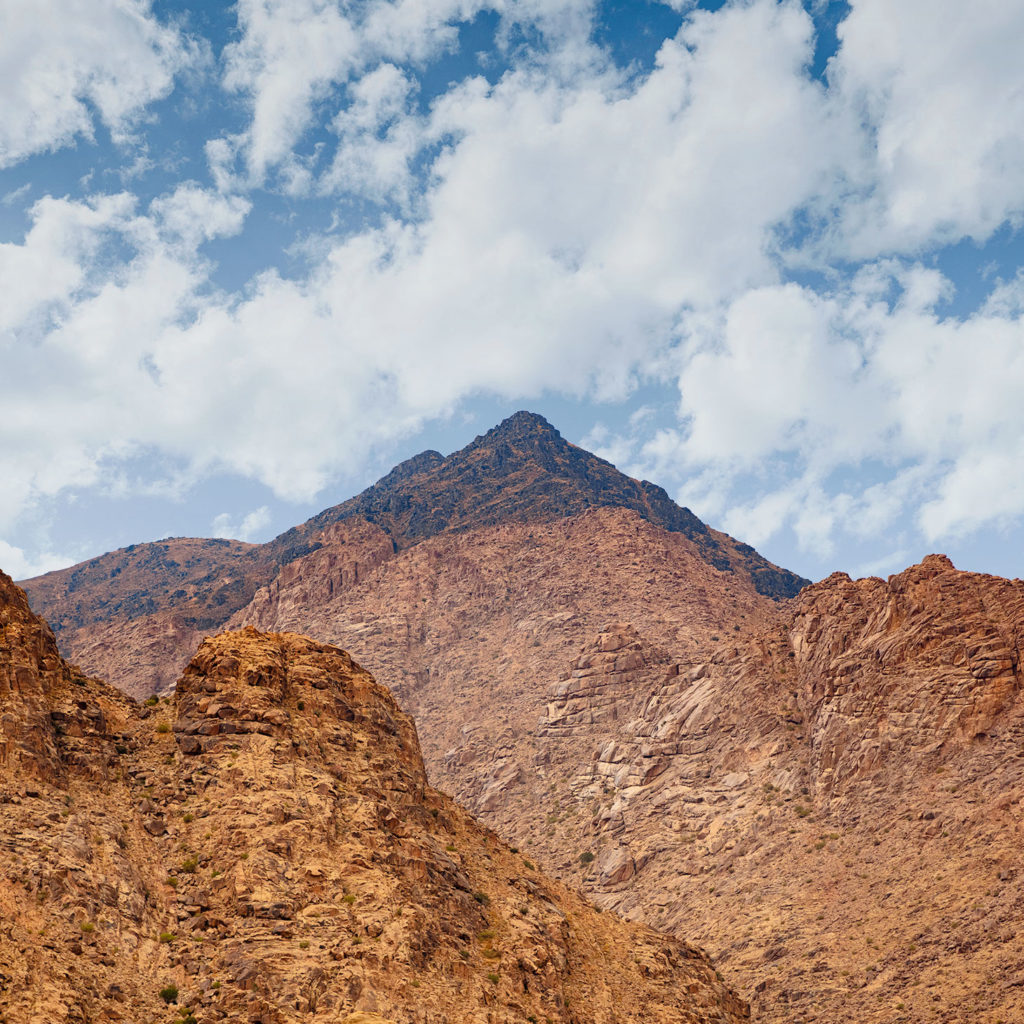
JABAL AL LAWZ
Jabal al-Lawz is a mountain in northwest Arabia theorized to be the real Mount Sinai. It is famous for it's charred blackened peak and overwhelming amounts of archaeological evidence around it's base.
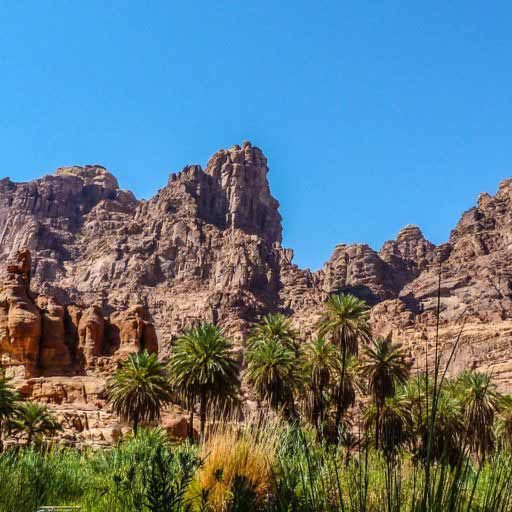
Tayma is a northwestern Arabian destination located between Medina and Tabuk in the area of ancient Edom. It is famous for the Oasis of Tayma and is mentioned several times in the Bible (referenced as "Tema" by Isaiah, Jeremiah, and Job).
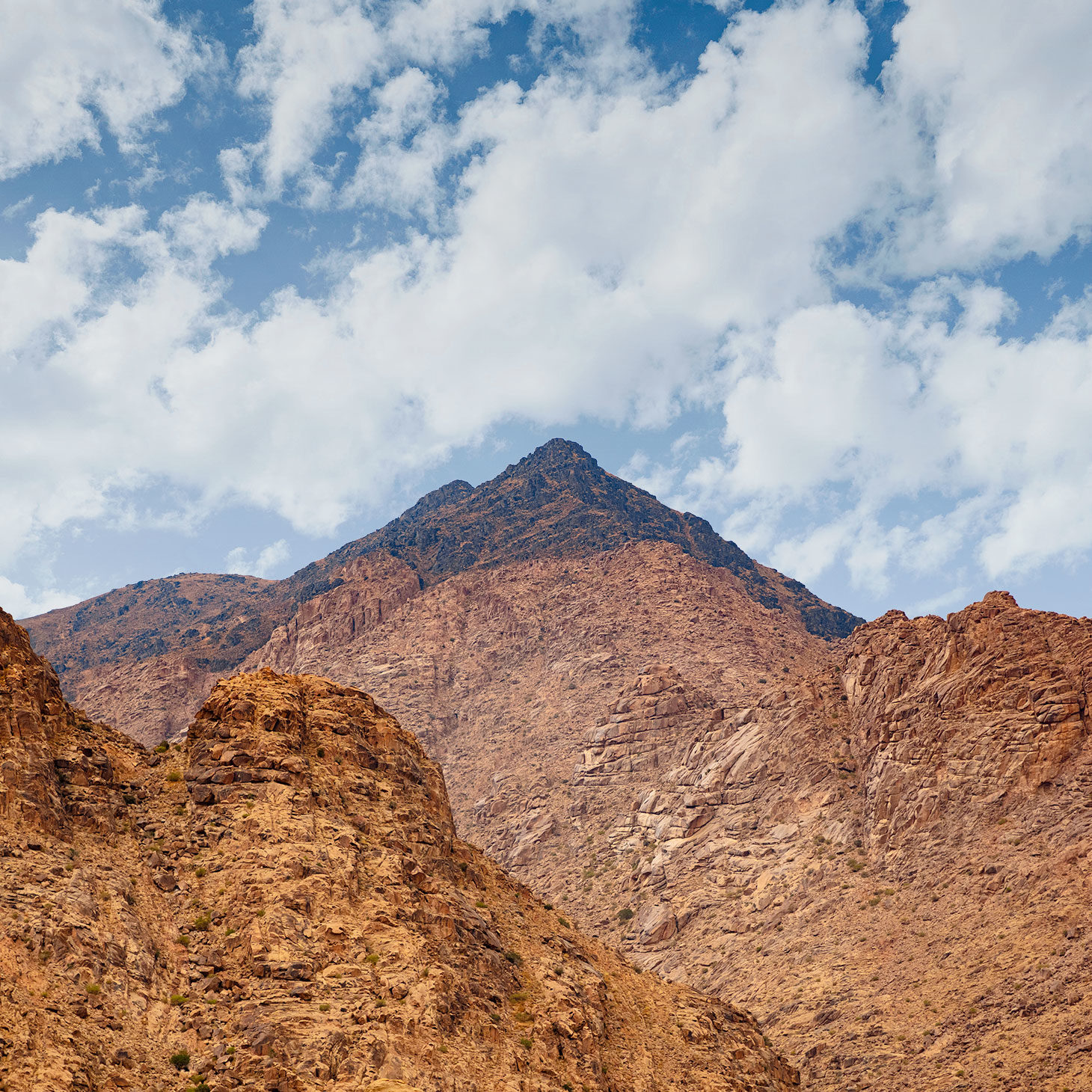
Honoring our Hosts in the Kingdom of Saudi Arabia
Living Passages is committed to the safety of our travelers. To do this we strive to follow all guidelines and requests of both our hosts and the government.
There has been a history of Western travelers who have gone to these historic sites without proper approvals. In doing so they endanger the safety of those traveling with them by illegally visiting areas where signs have been posted and fences are up. The Saudi government has protected certain sites and we respect their authority.
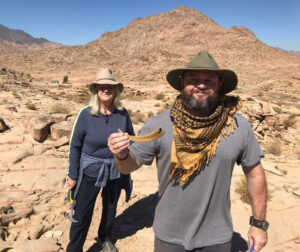
Deciphering History in Stone
Biblical archaeology & history , christian tours , saudi arabia.
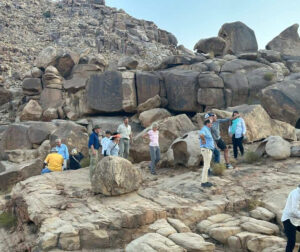
Sinai in Arabia: Unveiling the Giants of Amalek?
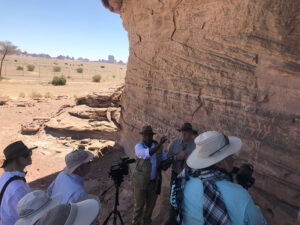
Documentation of Midian – How do we know Moses was Here?
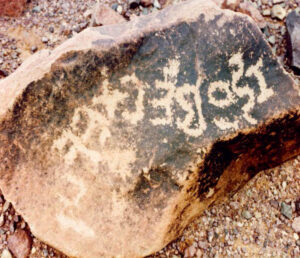
The Great Secret – God Gave us the Alphabet at Mount Sinai
Biblical archaeology & history , christian cruises , christian tours , saudi arabia.
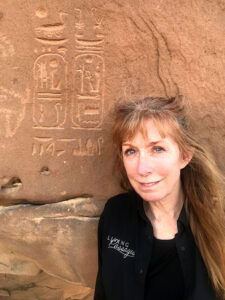
The Cartouche of Rameses III in the Saudi Arabian Desert
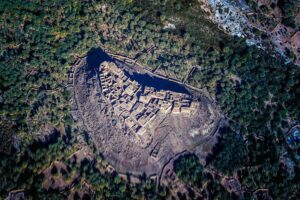
Saudi Arabia is Softly Releasing Sites of the Ancient Jewish Tribes
Christian cruises , christian tours , egypt , saudi arabia.
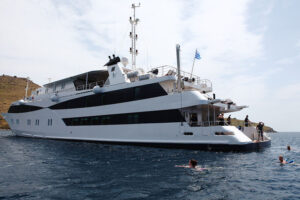
See the Earliest Alphabetic Inscriptions Discovered in Egypt aboard a Christian Cruise on the Red Sea
Christian cruises , egypt , israel & jordan (holy land) , saudi arabia.

Living Passages in The New York Times!
In the news , saudi arabia.
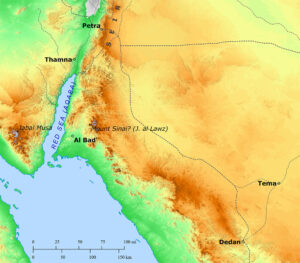
Jethro, Priest of Midian – Saudi Arabia Tour Destination
Biblical archaeology & history , christian cruises , christian tours , egypt , saudi arabia.
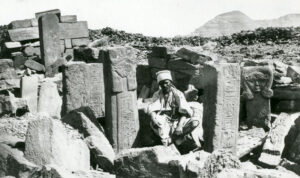
Serabit el-Khadim Sinai Peninsula, Egypt Tour – Rare Site
Biblical archaeology & history , christian cruises , christian tours , egypt , saudi arabia , uncategorized, what can you expect on our saudi arabia tours.
WHERE DO YOU WANT TO TRAVEL?
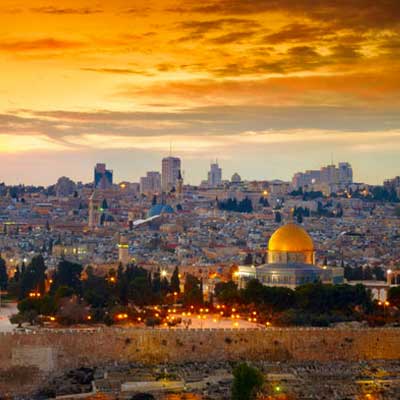
ISRAEL & JORDAN
CHRISTIAN CRUISES
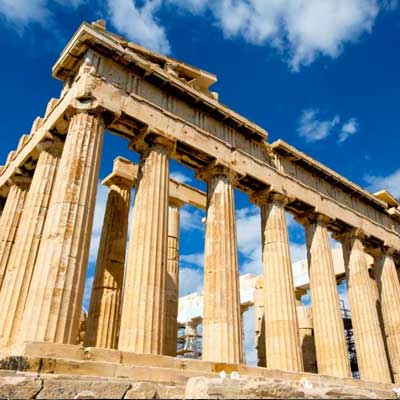
FOOTSTEPS OF PAUL
SAUDI ARABIA
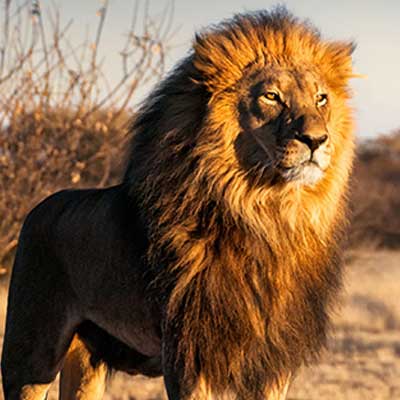
SOUTH AFRICA
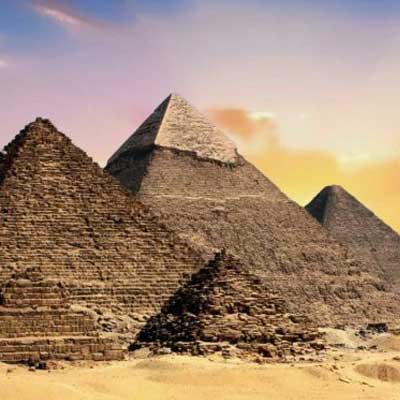
FIND A TRIP
Leaders & Churches
Upcoming Tours
Upcoming Cruises
Request Travel Brochure
Travel Blog & Updates
Travel Videos & Media
HELPFUL INFO
Living passages.
Work Opportunities
1-888-771-8717
[email protected]
212 W. Ironwood Drive, #D551 Coeur d'Alene, ID 83814
© 2024 Living Passages. All Rights Reserved. | Privacy Policy | Sitemap
Pin It on Pinterest
The Federal Register
The daily journal of the united states government, request access.
Due to aggressive automated scraping of FederalRegister.gov and eCFR.gov, programmatic access to these sites is limited to access to our extensive developer APIs.
If you are human user receiving this message, we can add your IP address to a set of IPs that can access FederalRegister.gov & eCFR.gov; complete the CAPTCHA (bot test) below and click "Request Access". This process will be necessary for each IP address you wish to access the site from, requests are valid for approximately one quarter (three months) after which the process may need to be repeated.
An official website of the United States government.
If you want to request a wider IP range, first request access for your current IP, and then use the "Site Feedback" button found in the lower left-hand side to make the request.

‘Wild, beautiful, untrodden:’ The epic hiking trails emerging in Saudi Arabia
E ditor’s Note: This CNN Travel series is, or was, sponsored by the country it highlights. CNN retains full editorial control over subject matter, reporting and frequency of the articles and videos within the sponsorship, in compliance with our policy .
Ben Hoffler always sleeps out in the open when he is hiking in the desert and describes it as “one of the great pleasures of being out on the trails, sleeping under the big, starry desert skies with the breeze on your face.”
“It’s very liberating, it opens your mind,” says Hoffler, a hiking consultant who is helping to develop new trails in Saudi Arabia.
“It really makes you dream and it’s the best sleep I’ve ever had. I sleep better in the desert than anywhere else in the world.”
But one night in the vast Hisma desert in northwest Saudi he says he had bedded down in a wadi, a dried-up riverbed , when he awoke to a lot of “hustle and bustle” nearby.
Dozing off again, he opened his eyes in the morning to the sight of four camels snuggled around him.
Rising quietly, he saw six more and then realized a herd of 20 camels had descended into the wadi to sleep.
“I guess they felt safe sleeping next to a human being in the desert,” he says.
Hoffler has spent 15 years developing trails in Egypt’s Sinai Peninsula and Jordan and is now working with local guides, including Bedouin scouts, to develop Saudi’s ancient ways for local and international hikers.
And he insists the notion of Saudi Arabia as just sand, desert and heat is just a mirage.
“Saudi Arabia is absolutely vast in scale, that is the first thing that strikes me,” he says.
Year-round destination
“It’s also incredibly diverse, you get everything from jet black volcanic lava fields to red sandstone deserts like you might see in Wadi Rum (in Jordan), to high granite ranges like you’d see in the Sinai (in Egypt), to green forested rolling mountains in the south.
“The natural beauty of it is extraordinary, it’s one of the most visually spectacular places, if not the most spectacular, that I have ever seen in the Middle East.
“Saudi Arabia feels very wild, very beautiful, it feels untrodden, perhaps more than other destinations it feels new.”
Hiking is a new but increasingly popular weekend pastime for some Saudi city dwellers from the west coast or the capital Riyadh, with a number of accessible short walks.
About an hour’s drive from the capital, hikers can easily reach the sandstone escarpment of the Tuwaiq Mountains where there are numerous clifftop viewpoints, including one dubbed “Edge of the World.”
Al Wahbah, a four-hour drive northeast of Jeddah, is a volcanic crater 250 meters (820 feet) deep and about 2 kilometers (1.2 miles) across on the western edge of a barren plateau. It’s about a 45-minute walk from the rim down to the white center, which is composed of sodium phosphate crystals.
Wadi Al Disah is a green, spring-fed valley, known as “valley of the palm trees,” surrounded by towering sandstone cliffs in the mountains of southwest Tabuk province noted for its serene atmosphere, rock carvings and remains of ancient fortresses.
Another well-known but less-travelled hike is to Jabal Abyad, which means White Mountain in Arabic, named for its ash coating. Jabal Abyad is Saudi’s tallest volcano at 2,093 meters (6,867 feet), situated in the huge Harrat Khaybar lava field north of Medina. The mountains outside Mecca and Taif, such as Al Hada, also offer hiking trails.
But while there are standard tourist trails available, with licensed guides and tour companies, the infrastructure and breadth of trails is “embryonic,” according to Hoffler, although “the potential is there” to develop Saudi Arabia into “one of the most outstanding hiking destinations in the world.”
And with cooler temperatures in the highlands, it makes for a year-round destination.
“That’s what we’re working on for the next couple of years, proper trails for tourists from outside Saudi to come and experience the scenery and nature that Saudi offers,” says Yasmin Gahtani, a rock-climbing instructor and managing director of the Saudi Climbing and Hiking Federation (SCHF), whose role is to promote healthy activity, tourism and competitive sport.
“It still needs to be more properly developed for people to go independently. There are still no guidebooks, it’s all word of mouth or through hiking guides, of both genders, to take people out. The country is safe, of course, but you’ll have a better experience if you have a map of the trails, and we’re still not there.”
Hoffler is based in the Hejaz mountains – which he says is “one of the most fabled ranges of Arabia” – the long chain that runs from midway up the Red Sea coast north to the Gulf of Aqaba and Jordan. The highest point is Jabal Al-Lawz in the far north at more than 2,500 meters above sea level and one of the only places in Saudi Arabia to receive regular snowfall.
“When I’m up on the high peaks of the Hejaz you can look out over the Red Sea and on a clear day you can see the high jagged peaks of the Sinai and on a very clear day you can even see the highlands of Africa, which is absolutely spectacular,” says Hoffler.
The mountains inland of Umluj in the northwest Tabuk region offer another unique landscape to explore, says Hoffler, made up of cinder cones (conical hills of volcanic material), lava fields, known as harrat in Arabic, and huge, gaping lava tubes “big enough to drive a bus into.”
The Briton also regularly adventures out into the huge Hisma desert, made up of red sand and huge sandstone rock formations, which stretches up into Jordan where it encompasses Wadi Rum.
“All of these landscapes are criss-crossed by paths that are very old, some hundreds, some many thousands of years old, passed down between different peoples and different generations,” he says.
The issue in the Saudi Hisma desert, he says, is that “drift” of the semi-nomadic Bedouin population to the towns means many paths have fallen into disuse.
“What we typically find is those paths are in quite a poor state of preservation, it’s like an archaeology of walking,” he says.
When he does meet Bedouin on the trails, Hoffler says he’s “only had the best experiences with them.”
“The Bedouin are famous around the world for their hospitality, and they offer a space that feels like a refuge wherever you are in the desert,” he says. “They’ll always make sure you’re well fed and have a cup of tea in your hand and have everything you need before you move on.”
‘Magical place’
Further south below Jeddah, the Sarawat mountain range stretches down to the southwest Asir region, which is home to Saudi’s highest mountain tops, including Jabal Sawda and Jabal Ferwa’, both more than 3,000 meters (9,840 feet) high. Al Soudah is a tourist hub with a cable car to the top of Jabal Sawda with government plans to develop a luxury destination with boutique hotels known as Soudah Peaks as part of Vision 2030.
It’s another area rich in potential for hiking and camping. It’s also where Saudi-Lebanese mountaineer Nelly Attar trains, including for both her ascent of Everest in 2019 and her record-setting feat when she claimed the title as the first Arab woman to climb K2, the world’s second-highest mountain, in 2022.
There are two wet seasons: one between February and April and another between July and August and temperatures rarely reach the soaring heights of the coast.
“Lower down you see a lot of juniper trees, lots of lush vegetation, cacti, fruits, animals,” she told CNN. “There’s some areas that look like you’re on Kilimanjaro and they look quite tropical.
“We see baboons here a lot of the times. It’s magical. I come to train, but I actually leave feeling at peace and feeling so calm because there’s no one else on the trail.
“I didn’t think I’d find a gem like this in the GCC [Gulf countries]. People perceive Saudi to be mainly a desert, but there’s so many diverse landscapes. I’ve been living here most of my life and I have not seen most of what Saudi can offer, and I’m so excited for this country to open up.”
The capital of Asir is Abha, the popular hilltop city at about 2,270 meters (7,450 feet) high, known for its mild climate, fortresses and mountain access and views. It is serviced by Abha international airport.
About 120 kilometers north of Abha lies the town of Tanomah, often shrouded in fog but popular for its waterfalls, juniper and pine forests and outdoor pursuits in Al Sharaf park.
“Tanomah has beautiful rock for climbing and beautiful trails to hike,” says Gahtani.
“I love this place. It’s very magical, I don’t know why, I can’t explain it, but it has this really nice energy and everyone who goes there feels the same way. It is surrounded by cliffs of rocks so you feel like you’re very disconnected from the world which is lovely.”
She adds: “Hiking in Saudi Arabia is very virgin, there are so many untouched locations and it’s very serene.”
For more CNN news and newsletters create an account at CNN.com
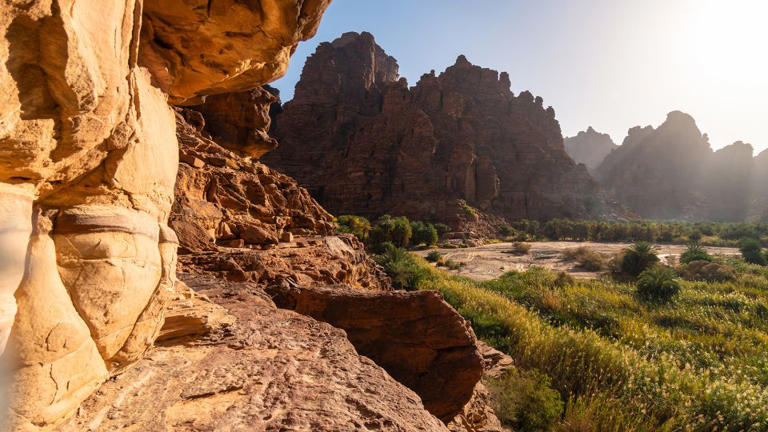

IMAGES
VIDEO
COMMENTS
Eid Events! Experience Eid joy in Saudi! Vibrant festivities, exclusive offers await in Jeddah, Riyadh, Aseer, and the Eastern Province. Eid Events! Rewards like no other! Explore Saudi Arabia's ancient heritage and culture, breathtaking outdoor activities and delicious local food. Plan your trip in Saudi today!
Find out more about why FCDO advises against travel. Arriving in Saudi Arabia from Sudan If you're arriving in Saudi Arabia from Sudan, contact the Saudi authorities for the latest entry clearance procedures. See the latest Sudan travel advice for information about how to leave Port Sudan. Before you travel No travel can be guaranteed safe.
Saudi Arabia. Middle East. If there is a final frontier of tourism left, it's Saudi Arabia. The birthplace and spiritual home of Islam, Saudi Arabia is rich in attractions and stirring symbolism. For Muslims, the cities of Mecca and Medina, rich in Prophetic significance, have no equal, while the carved temples of Madain Saleh, known as the ...
Saudi Arabia uses the Saudi Riyal (SAR). One Riyal is divided into 100 halalas. Saudi has banknotes and coins, although the coins are mostly useless. However, don't be surprised if you end up with a stack of one and two riyal coins (and a bunch of halalas to boot). At the time of writing, 1 riyal is $0.27 or €0.25.
The Embassy of The Kingdom of Saudi Arabia 601 New Hampshire Avenue, NW Washington, DC 20037. Regular Business Hours Monday - Friday 9:00am-5:00pm
Saudi Arabia expands its e-visa program to six additional countries, further opening its doors to the world. Saudi Arabia will grant visitor visas to travelers from six newly-eligible countries - Türkiye, Thailand, Panama, Saint Kitts and Nevis, Seychelles, and Mauritius - for leisure, business, and religious (Umrah only) travel.
The renovations come at an exciting time to be part of the hospitality industry in Saudi Arabia, with Four Seasons Hotel Riyadh's plans for expansion and the country prioritising the growth of ...
Saudi Arabia is a Muslim country. While non-Muslims are welcome and permitted to practice their religion in private spaces, preaching in public forums or on social media platforms is prohibited ...
In a matter of minutes, travelers can apply online and receive a multiple-entry eVisa, valid for one year, for about $142. In February 2022, Saudi Arabia started offering free 96-hour layover visas for international visitors arriving by air on Saudia or Flynas airlines. Tour operators such as U.K.-based Wild Frontiers host immersive trips that ...
Discover and explore Saudi Arabia Travel Guides and Travel Features from Outlook Travel Magazine. From towering sand dunes to gleaming skyscrapers, Saudi Arabia is an shimmering blend of the traditional and the contemporary. Explore the ancient tombs at Madain Saleh, or shop in Riyadh's ultra-modern malls. ...
Currency and cash in Saudi Arabia. The Saudi riyal is the currency of Saudi Arabia. At the time of our visit in July and August 2022 the exchange rate is as below: 1 SAR = 0.27 USD. 10 SAR = 2.67 USD. 100 SAR = 26.66 USD. 1000 SAR = 266.58 USD. Cash comes in notes of 1, 5, 10, 20, 50, 100 and 500 Rs.
The Saudi government, in line with Saudi Arabia's Vision 2030 program, urges people to start visiting AlUla. The efforts to revive AlUla's past role as a thriving hub of trade and cultural exchange target at offering visitors a unique travel experience, including a combination of outdoor adventures, wellness, heritage, and entertainment.
Call us in Washington, D.C. at 1-888-407-4747 (toll-free in the United States and Canada) or 1-202-501-4444 (from all other countries) from 8:00 a.m. to 8:00 p.m., Eastern Standard Time, Monday through Friday (except U.S. federal holidays). See the State Department's travel website for the Worldwide Caution and Travel Advisories.
Saudi Arabia Tour Highlights . AlUla - with the Nabatean ruins at Hegra, the ancient city of Dadan and the stunning desert scenery, this is one Saudia's must-see areas.; Al Ahsa Oasis - in Saudi Arabia's eastern province, this is an intriguing region and a UNESCO World Heritage Site. There are lagoons, date farms, sand dunes and numerous archaeological landmarks.
Plan a holiday in Saudi and discover its unique heritage and culture, enjoy extraordinary outdoor activities, and taste its delicious cuisine.
Riyadh , Madain Saleh & Jeddah Tour Package - 7 Days. Highly recommended As per usual, a solid trip from Saudi Arabia tours travel agent. Visiting all the major sites of Saudi Arabia. A little longer in Riyadh would probably have been better than some of the other stops, but generally worth visiting everywhere.
7. Respect for Culture. Saudi Arabia has become a favored destination for people from all over the world because of its stunning landscapes, ancient monuments, and unique culture. Described as the "Heritage Land" and a "Living Museum", Saudi Arabia has countless archaeological sites that are rich with historical significance and natural ...
Domestic Packages. Explore the beauty of Saudi Arabia and discover hidden gems across the country. From Abha's mountain peaks and Al Baha's exotic forests to Jeddah's impressive museums and Taif's gorgeous scenery, you will never run out of fun experiences and thrilling adventures. We can help you book one of our domestic holiday packages ...
Overview. Travel, Tourism, and Entertainment is a priority sector under Saudi Arabia's Vision 2030 economic diversification initiative. The Saudi Arabian government aims to increase domestic household spending related to entertainment and leisure activities, and to transform the country into a major global travel destination.
Create a fully customized day-by-day itinerary & explore the hidden gems of Saudi. Select your destinations, the date & the local attractions you want to see.
SAUDI ARABIA TOURS. Explore the ancient land of Midian, the Split Rock of Horeb, and Jabal al-Lawz - the real Mount Sinai. The foundational narrative of the Exodus in the Old Testament contains some of the most vital and momentous accounts in Christian history. The quest to uncover the archeological and geological evidence of Israel's ...
This PDF is the current document as it appeared on Public Inspection on 03/29/2024 at 4:15 pm. It was viewed 2178 times while on Public Inspection. If you are using public inspection listings for legal research, you should verify the contents of the documents against a final, official edition of the Federal Register.
Jabal Abyad is Saudi's tallest volcano at 2,093 meters (6,867 feet), situated in the huge Harrat Khaybar lava field north of Medina. The mountains outside Mecca and Taif, such as Al Hada, also ...